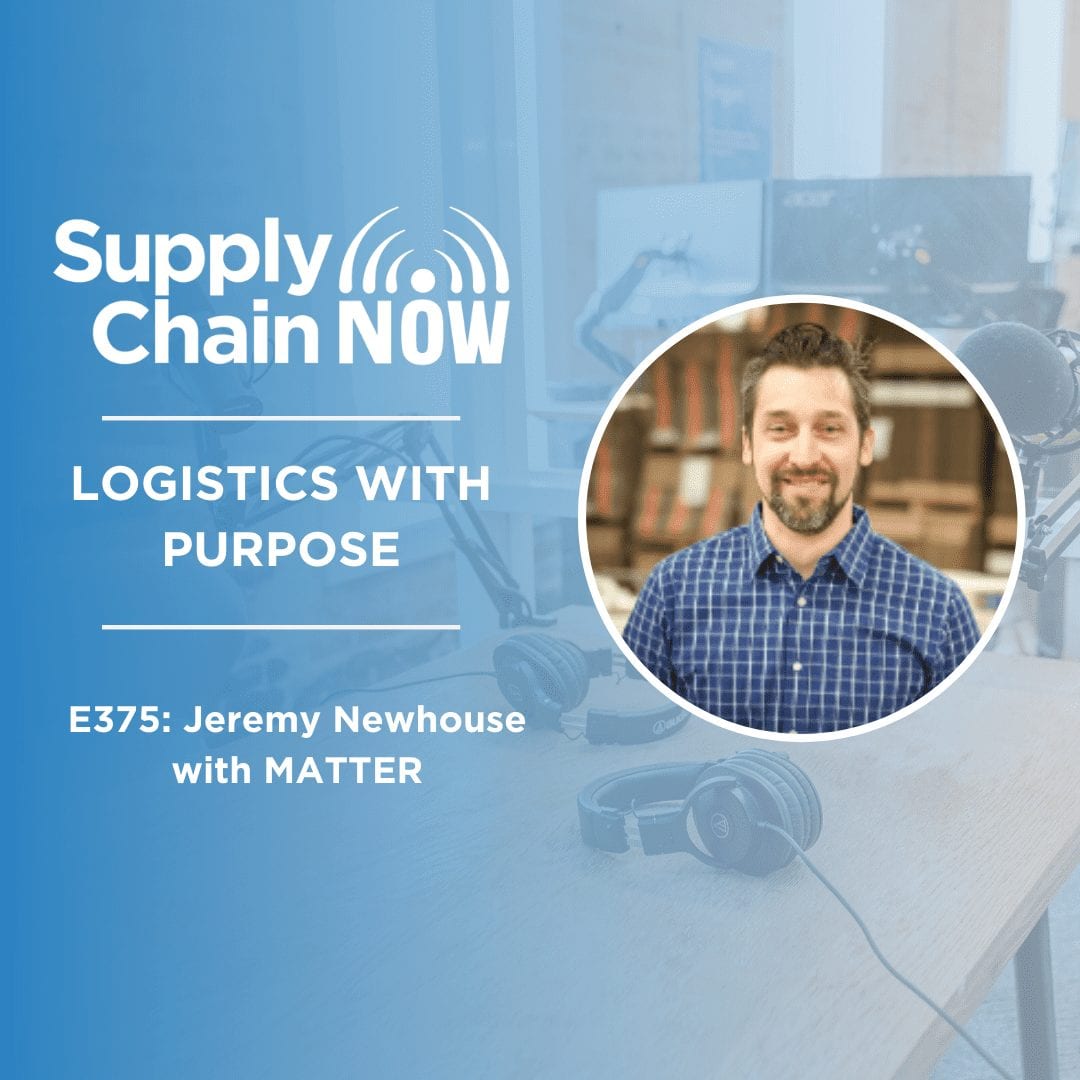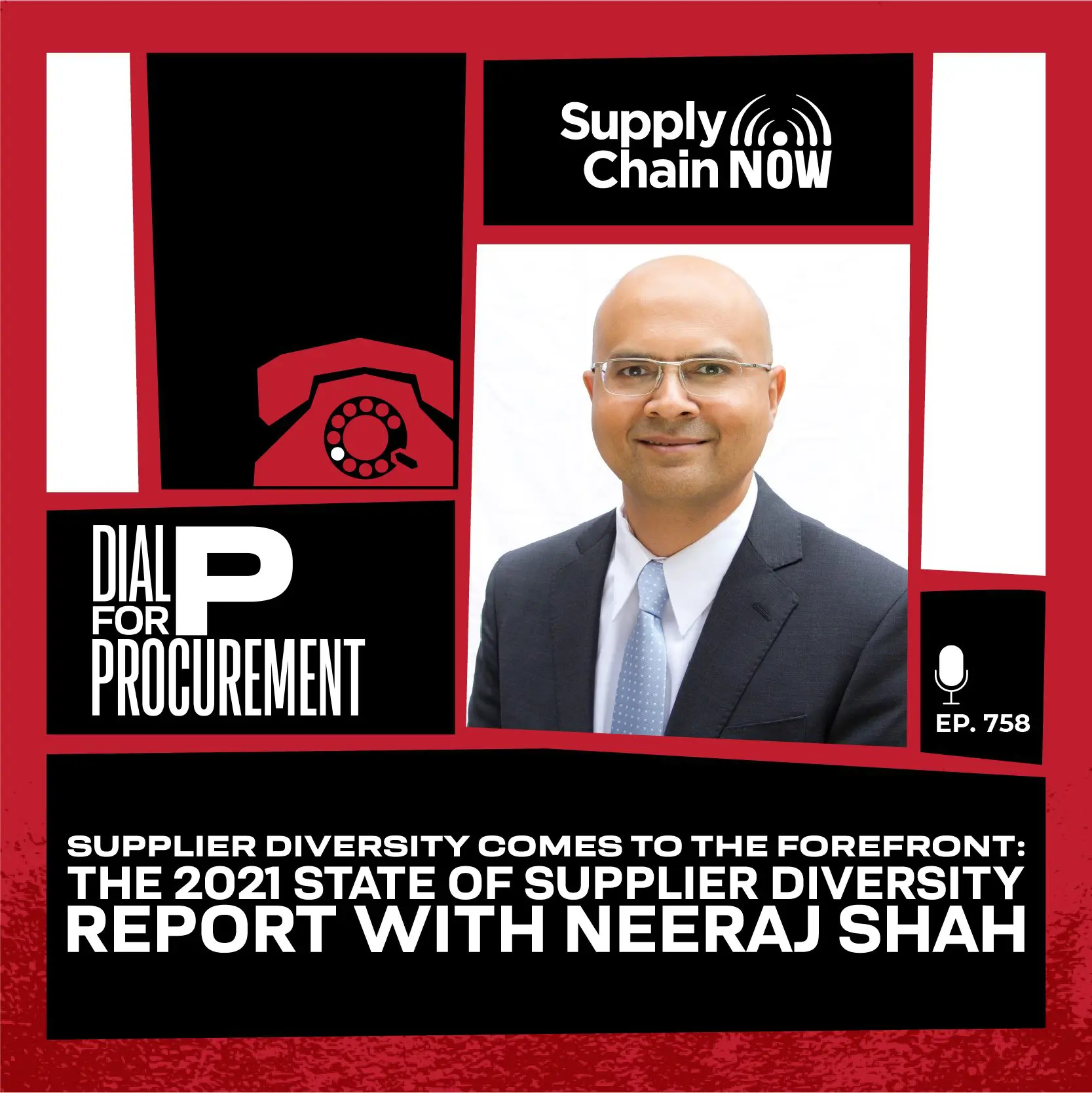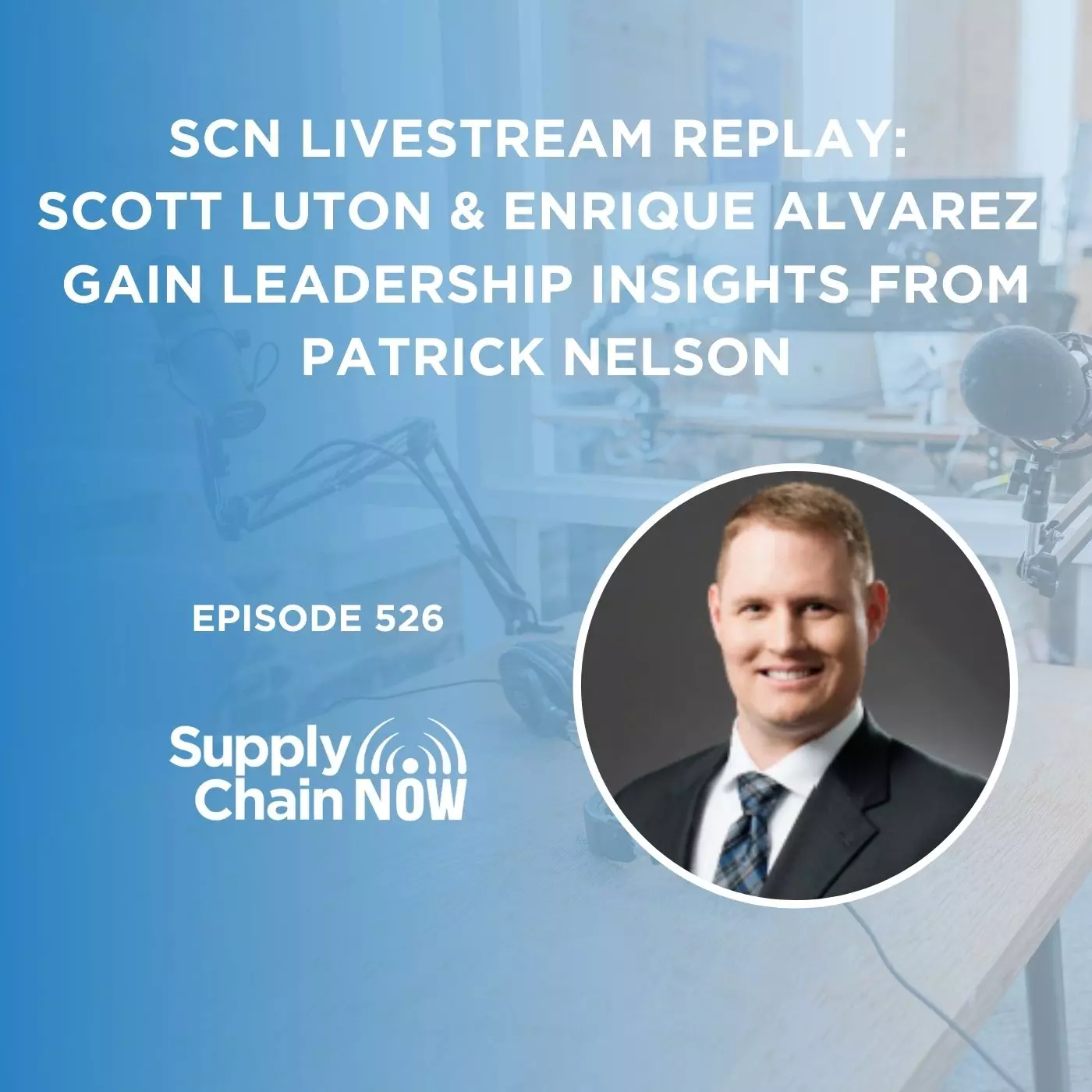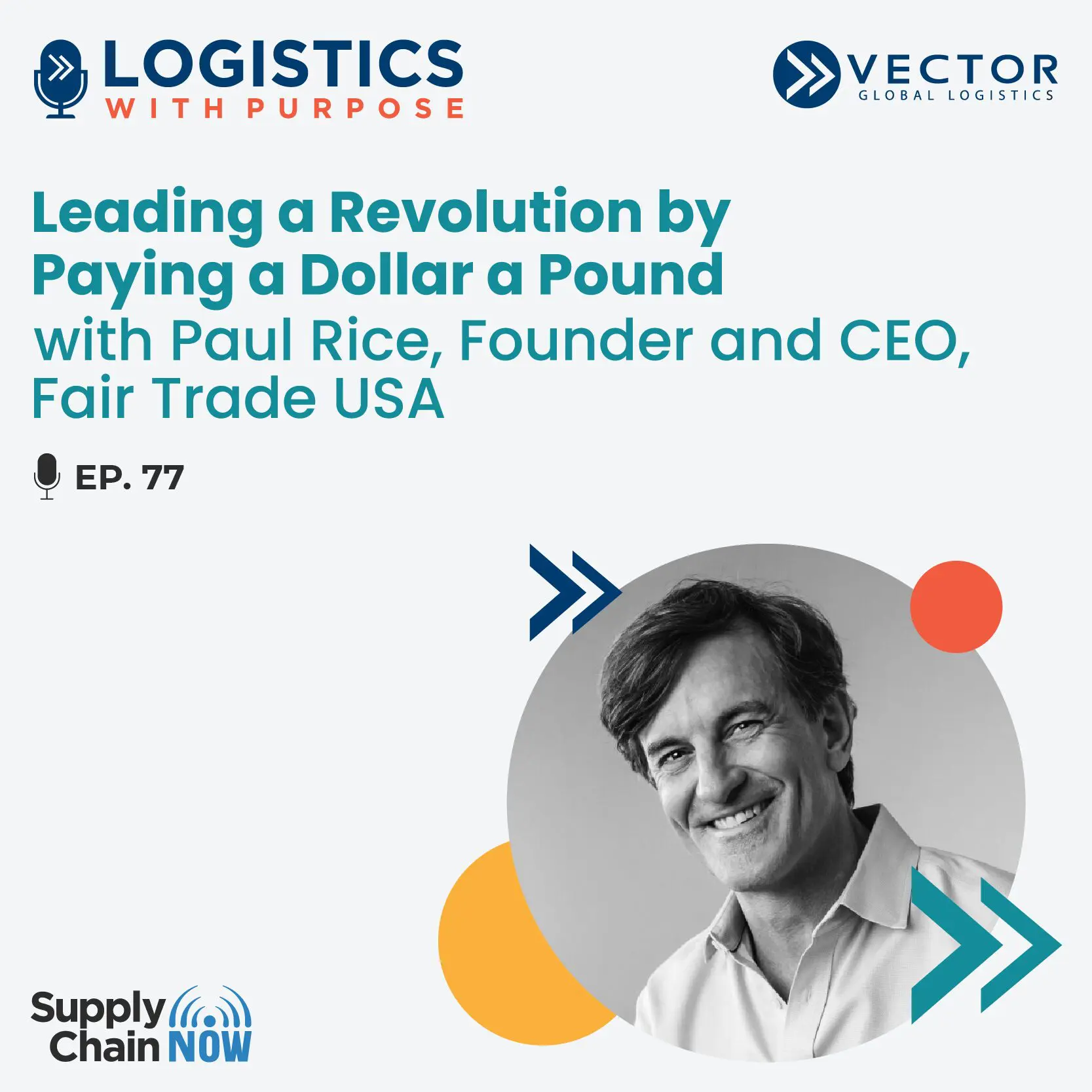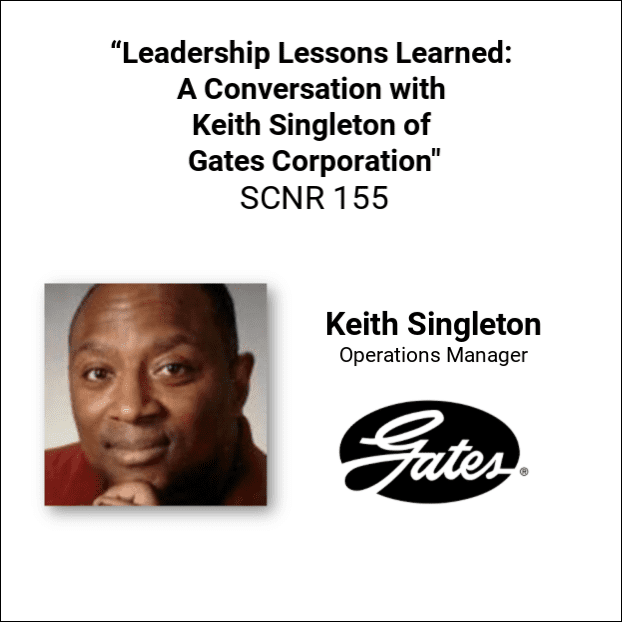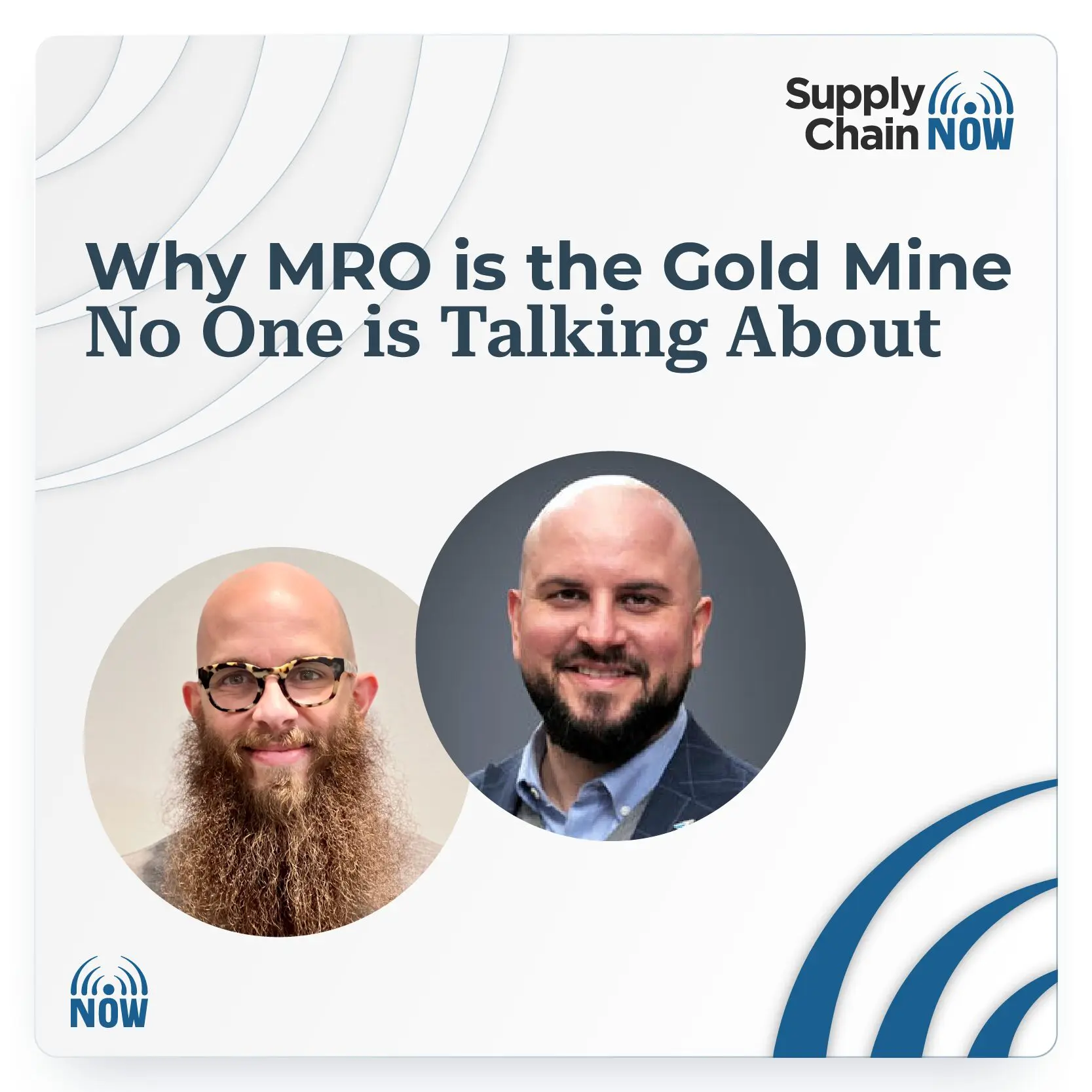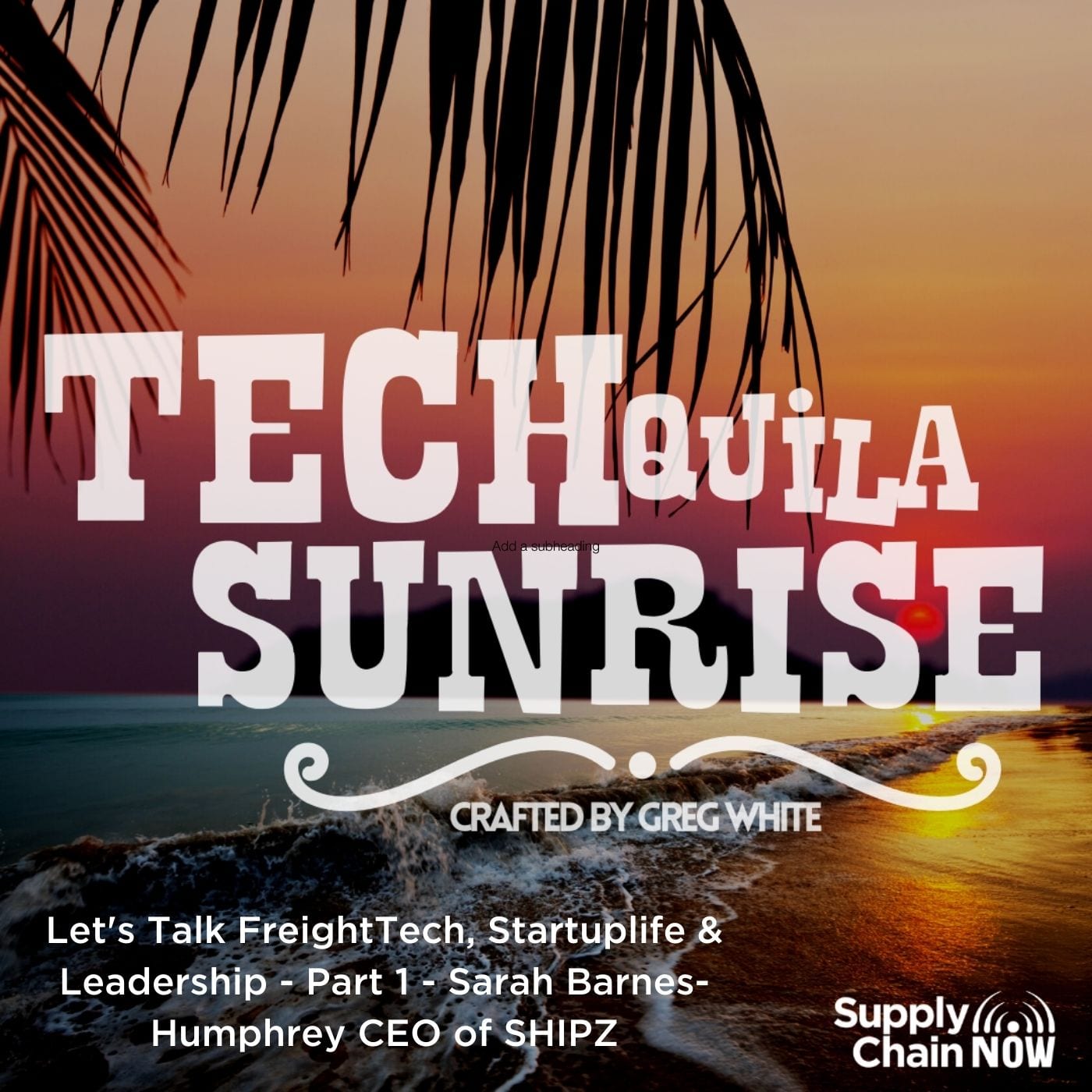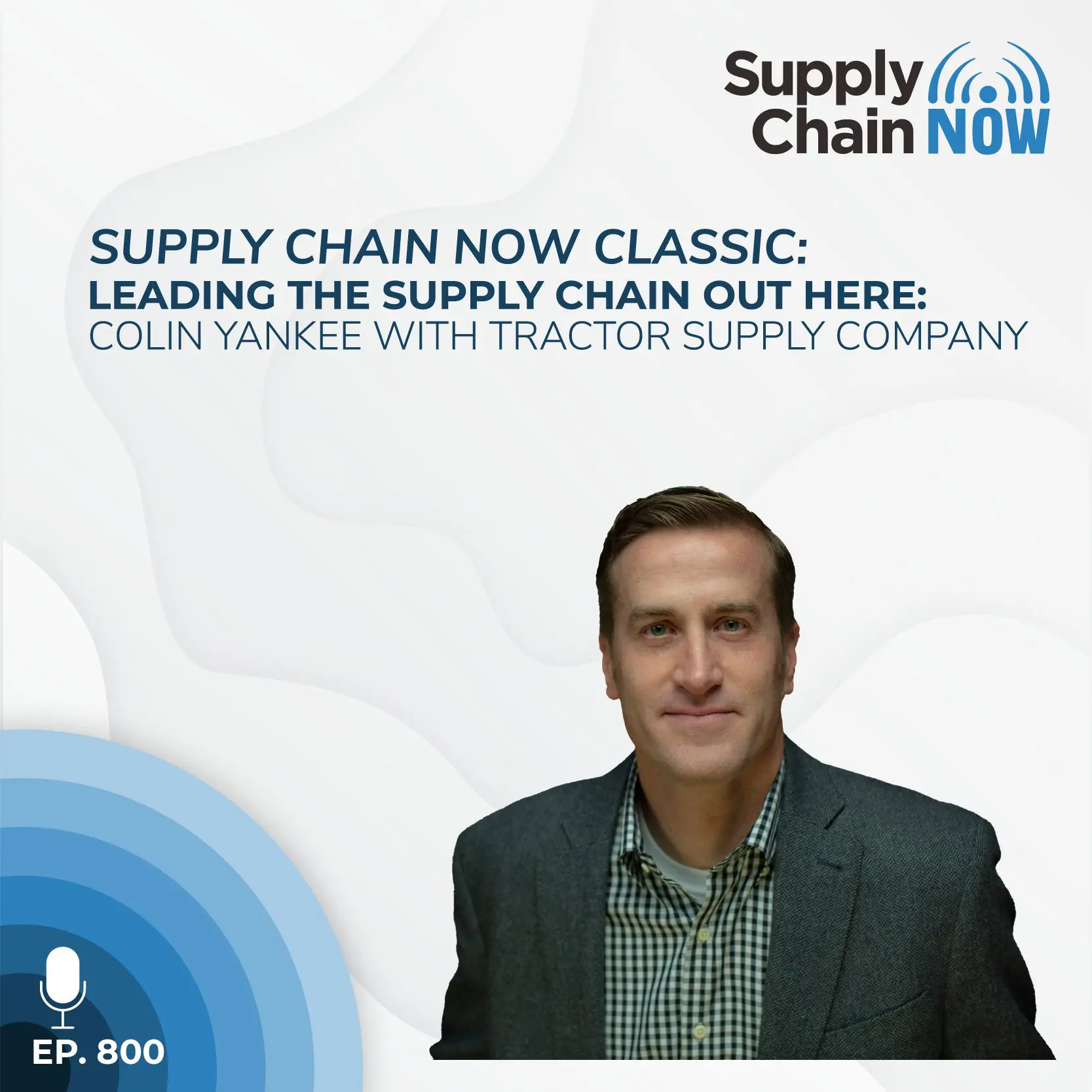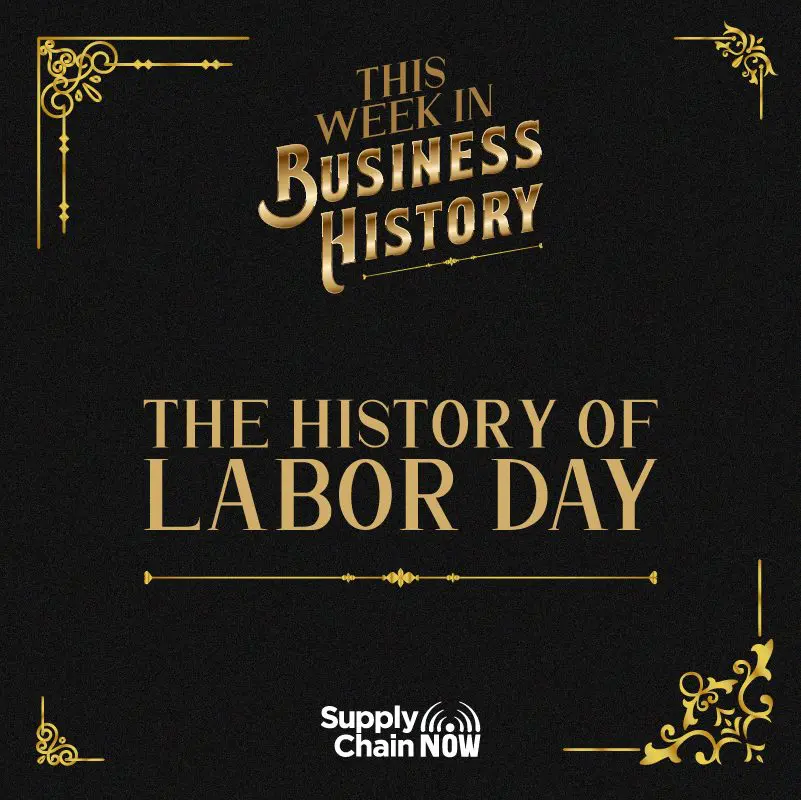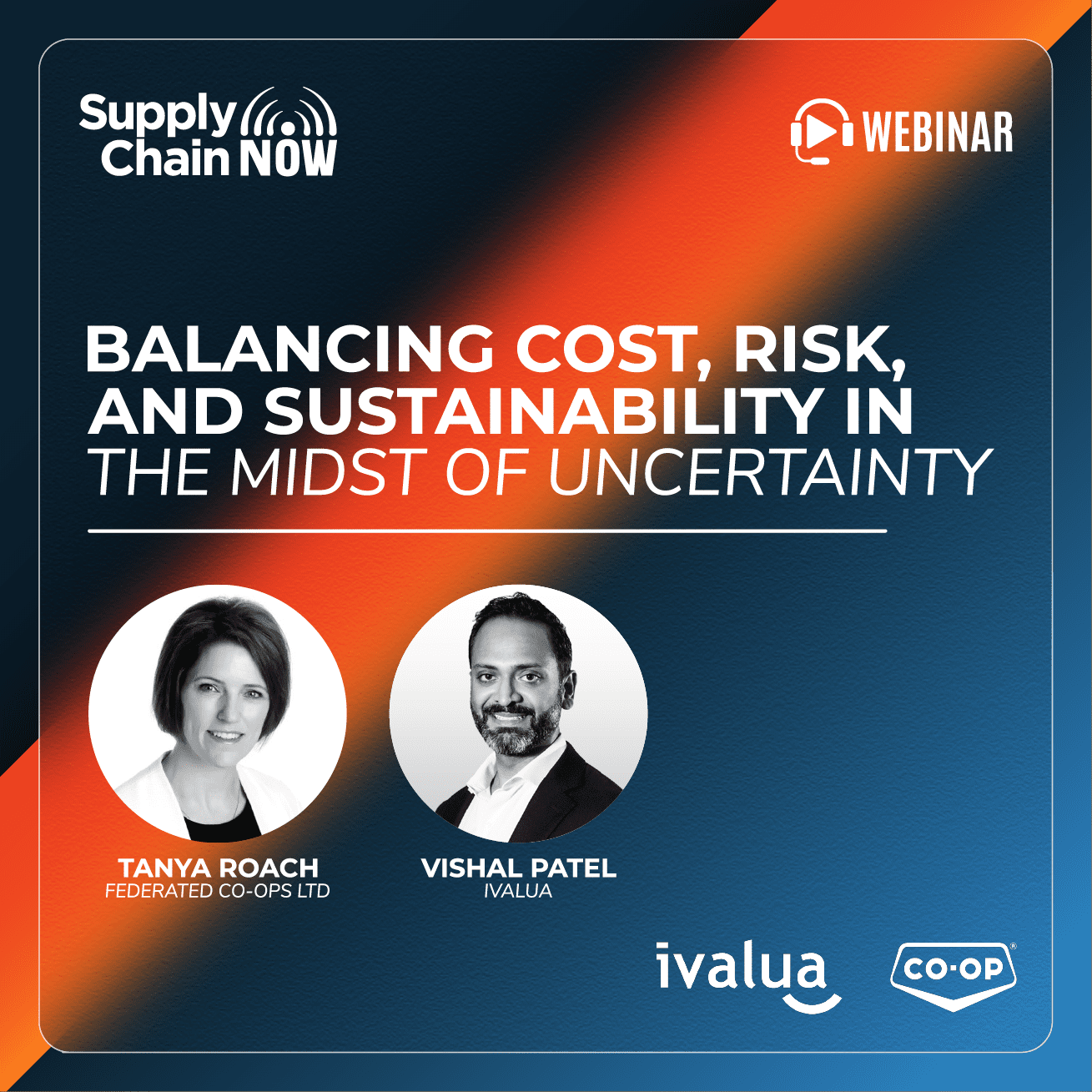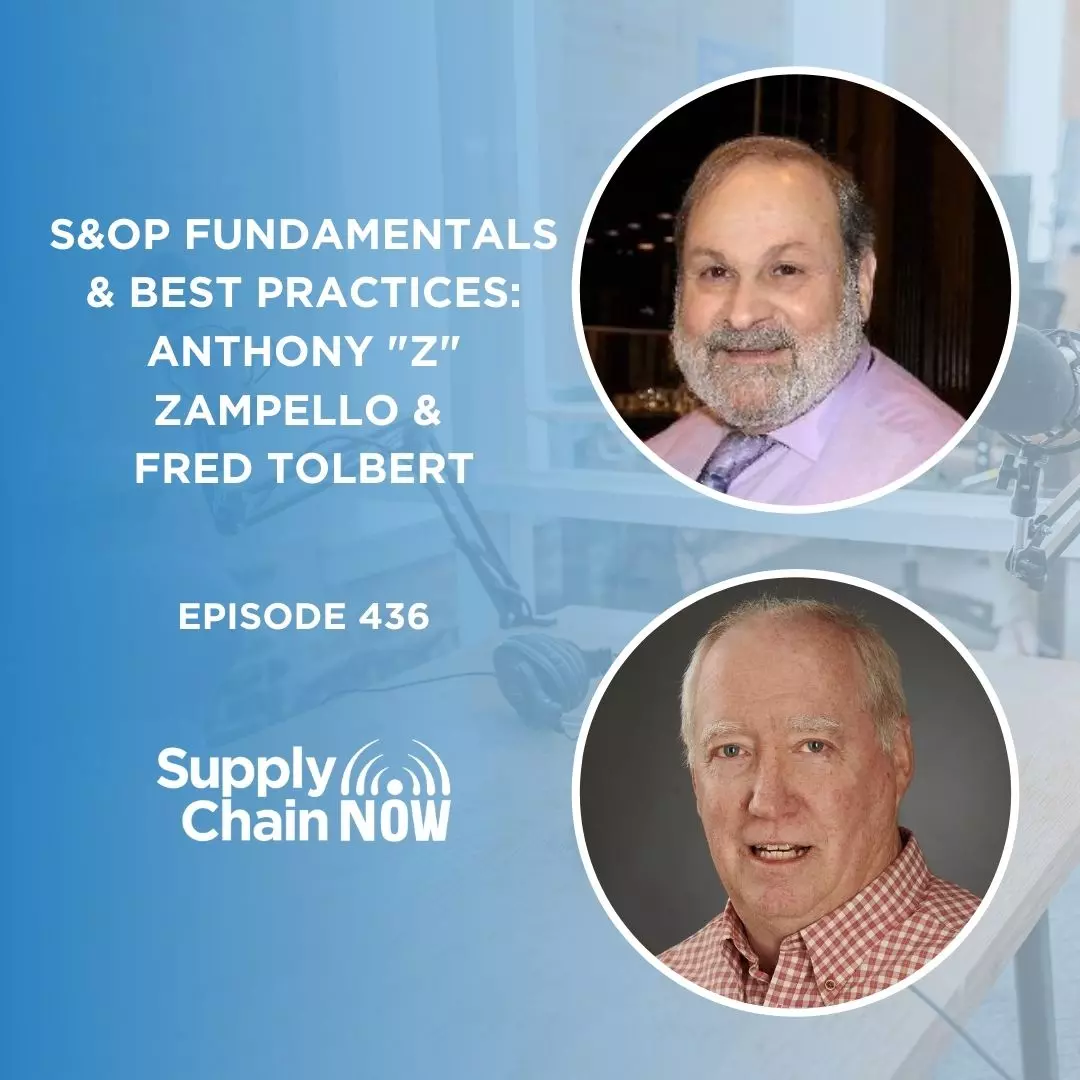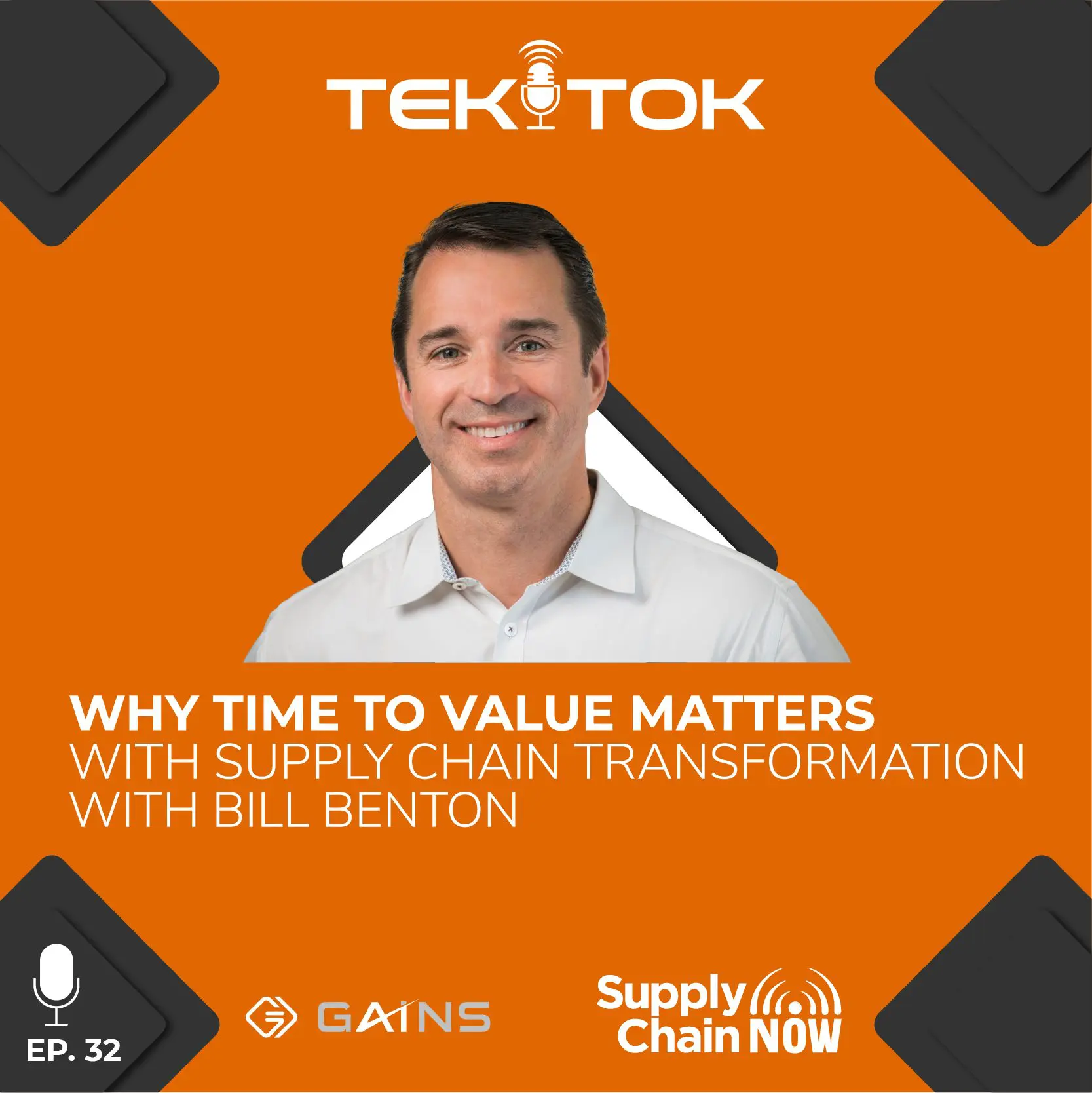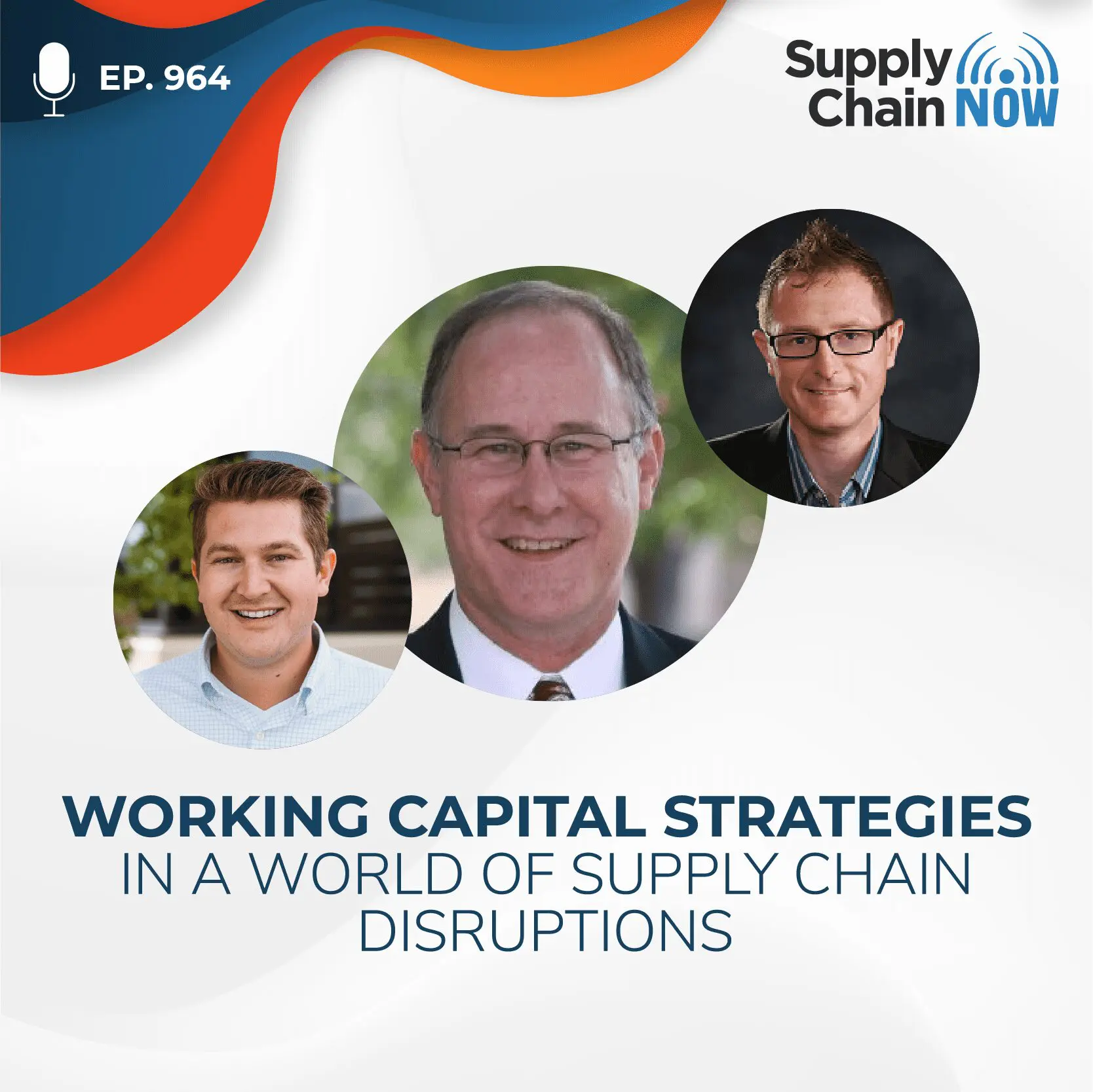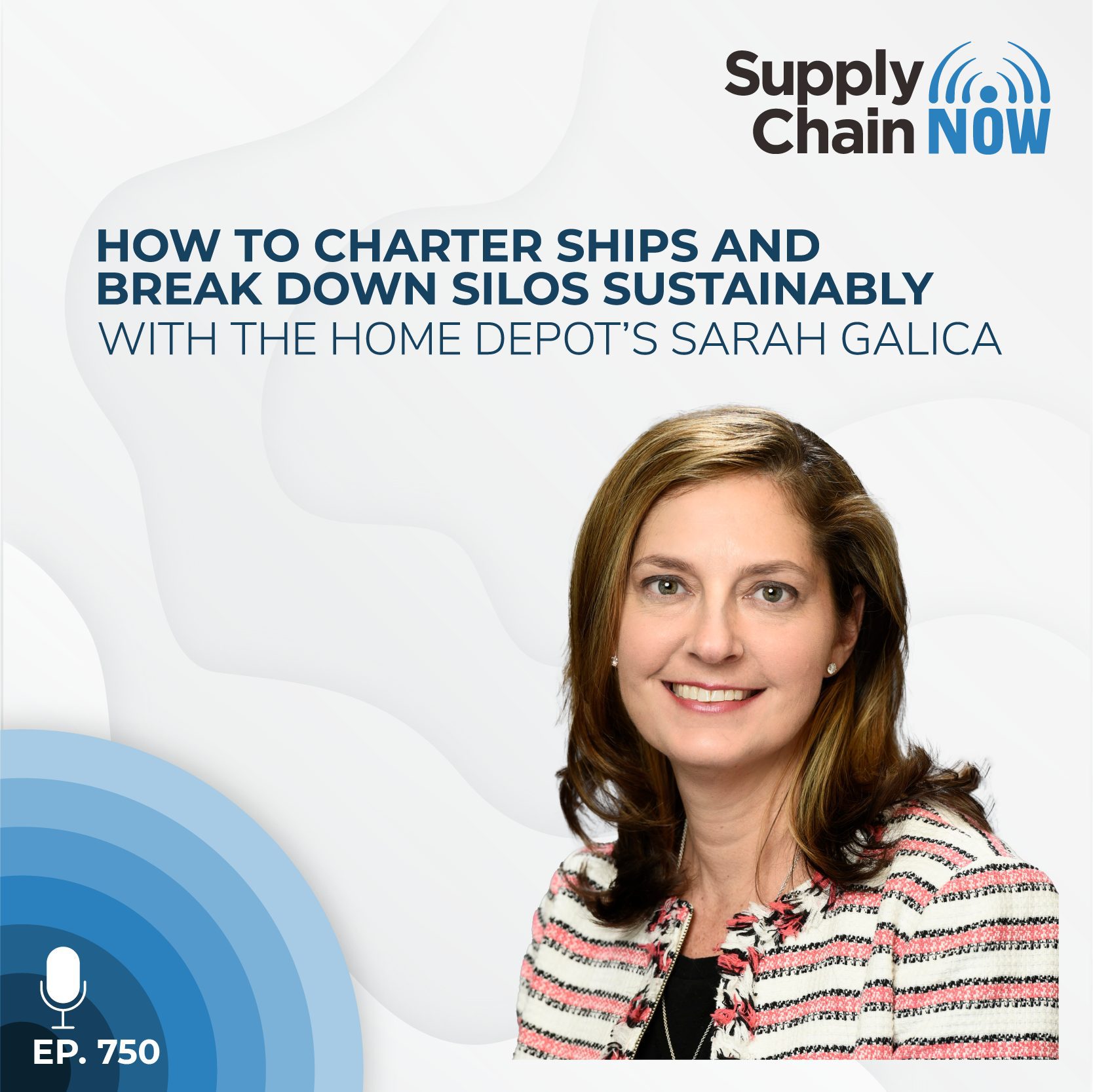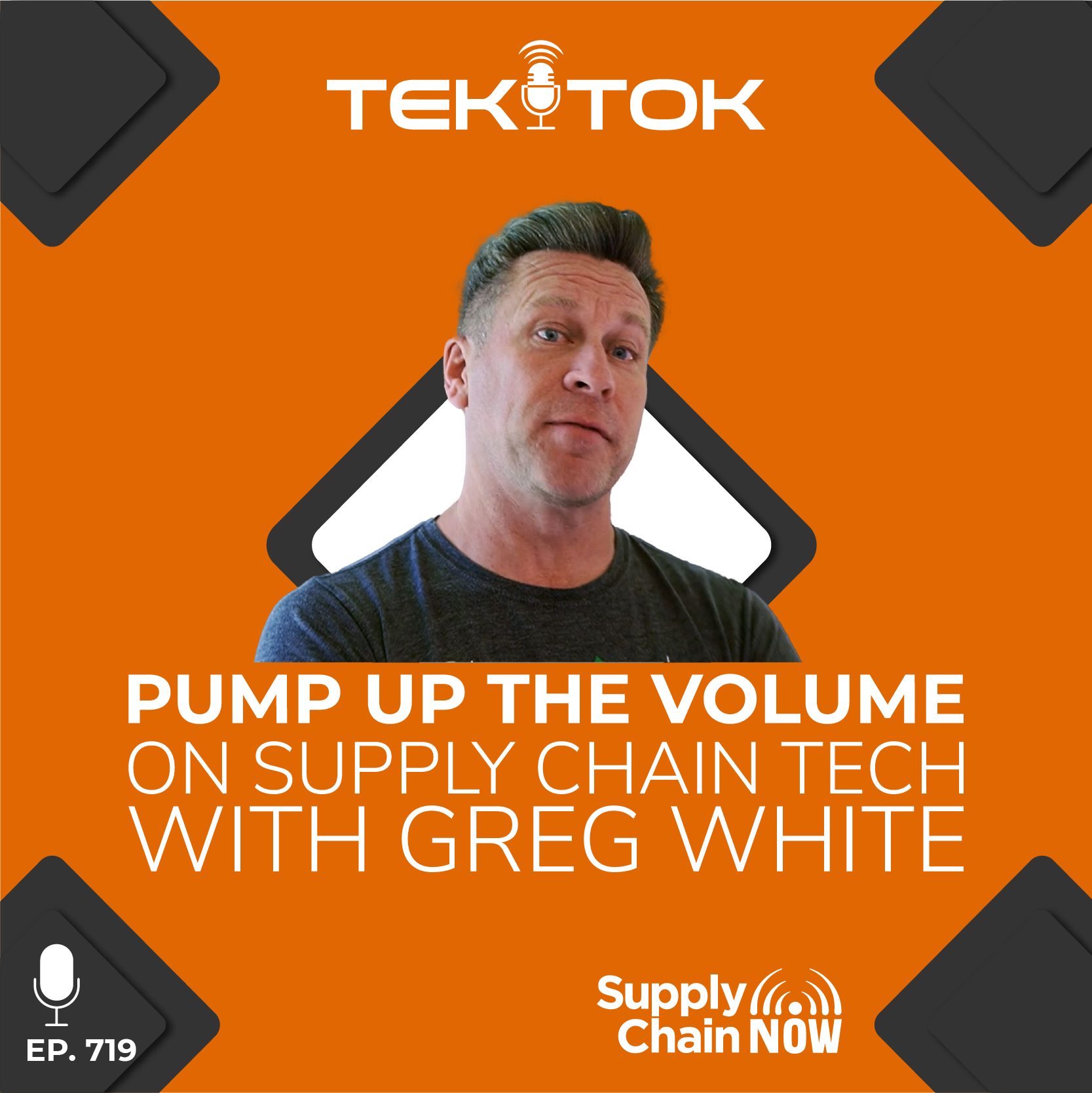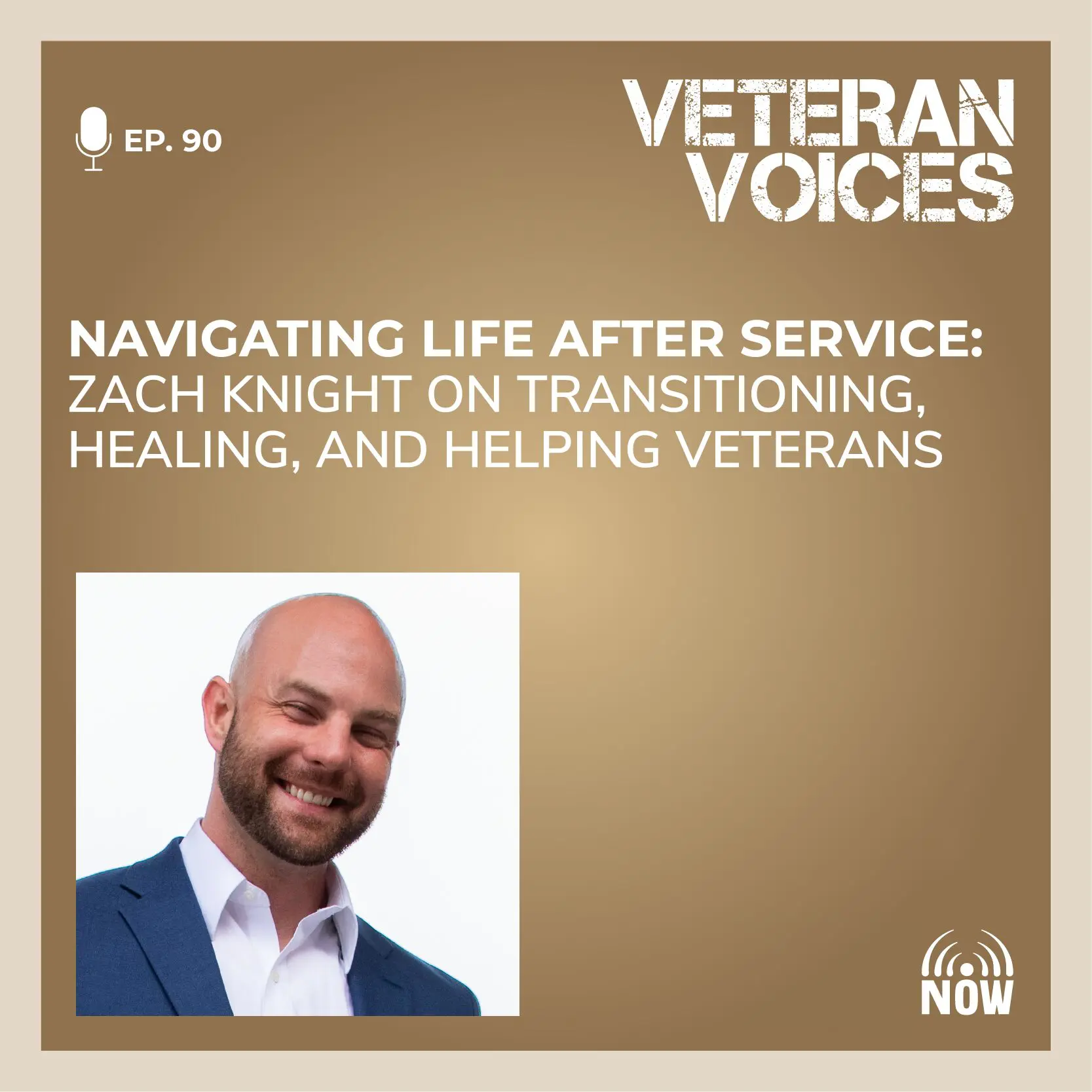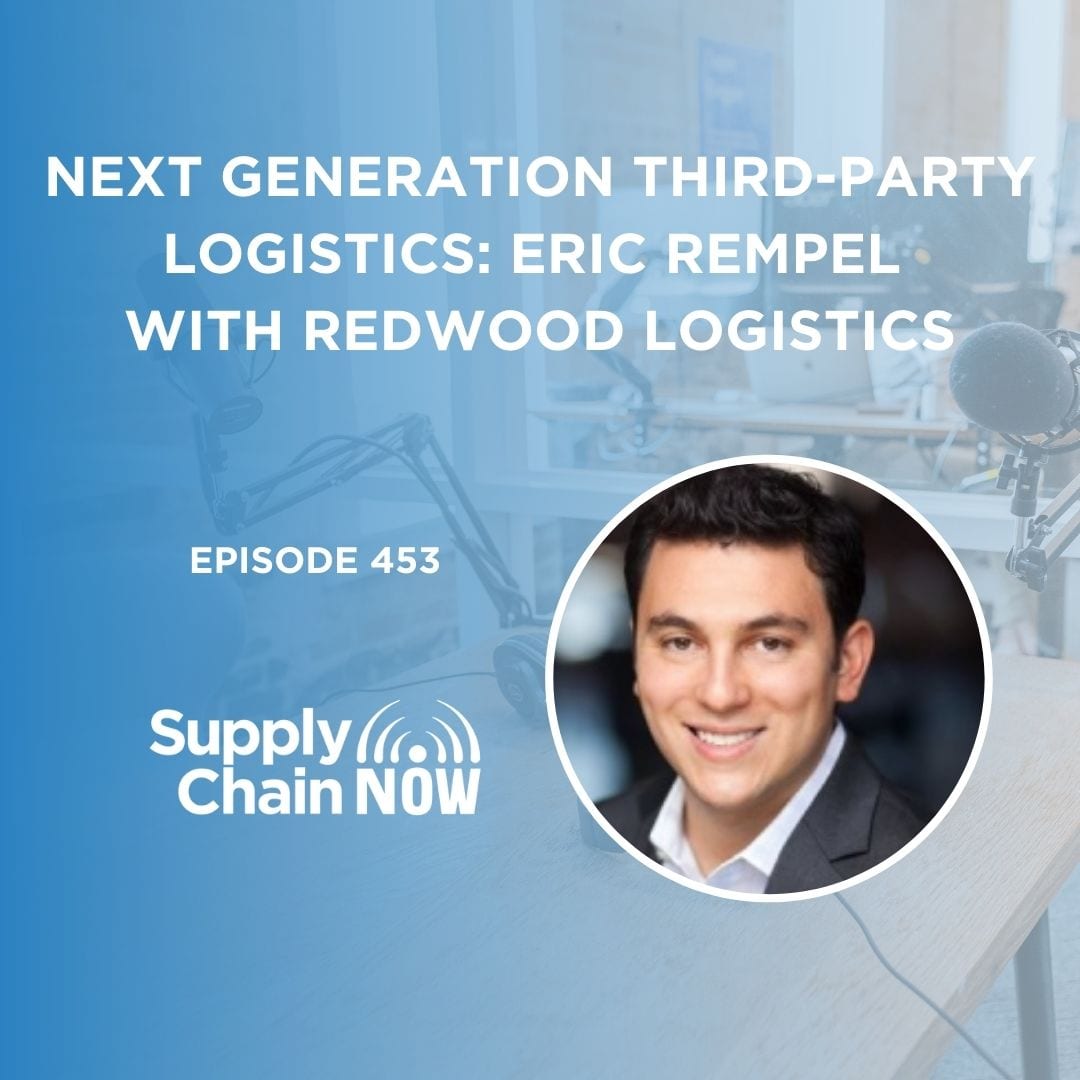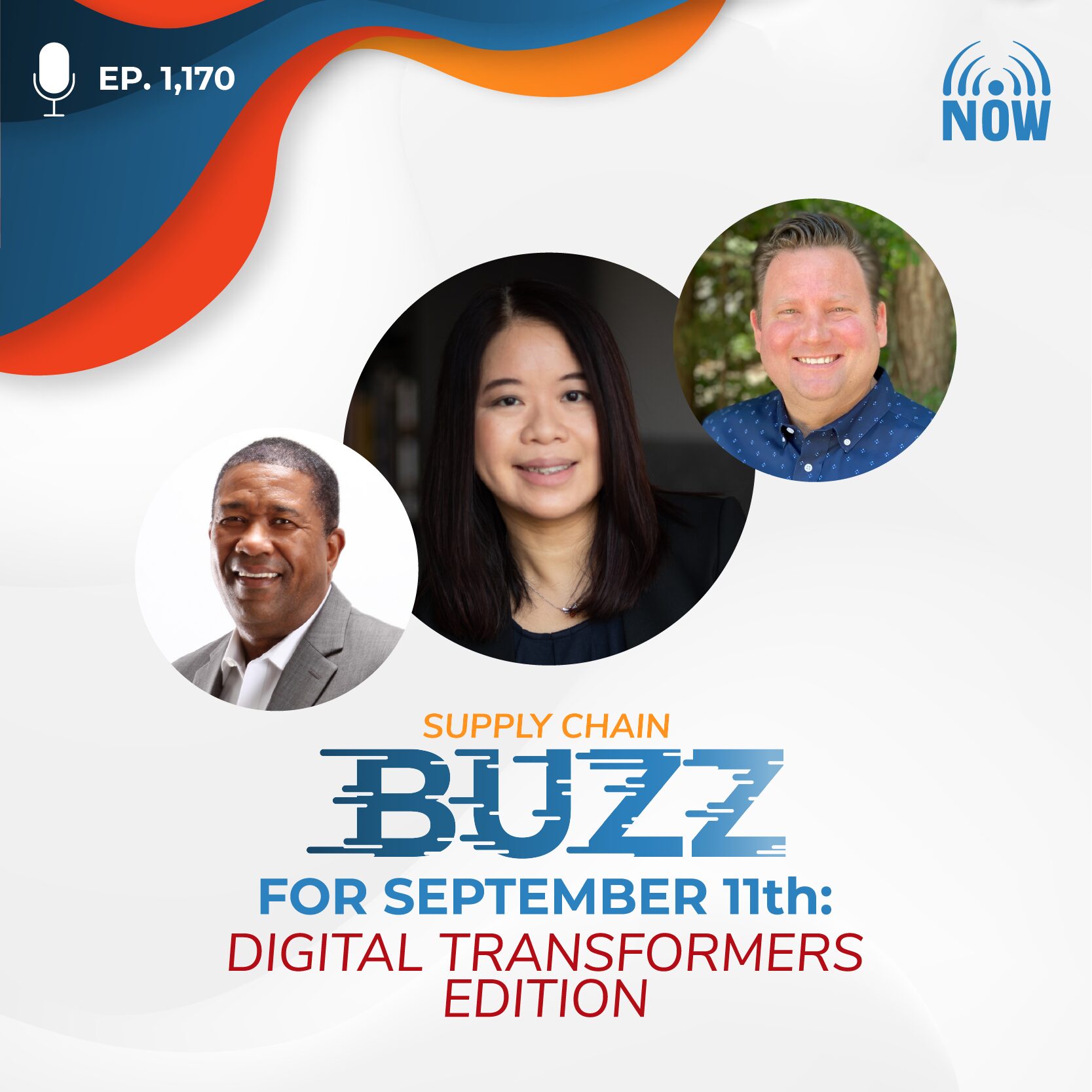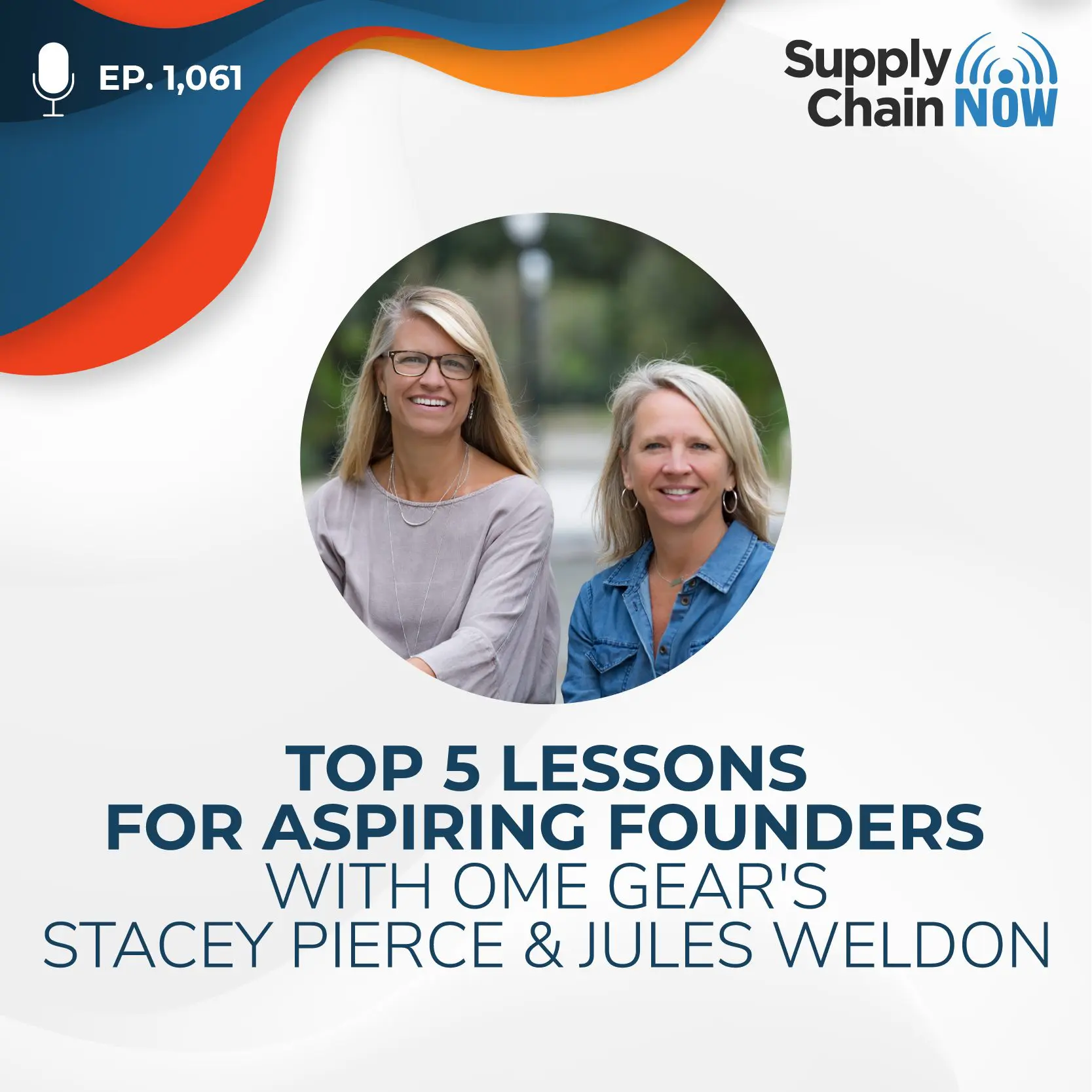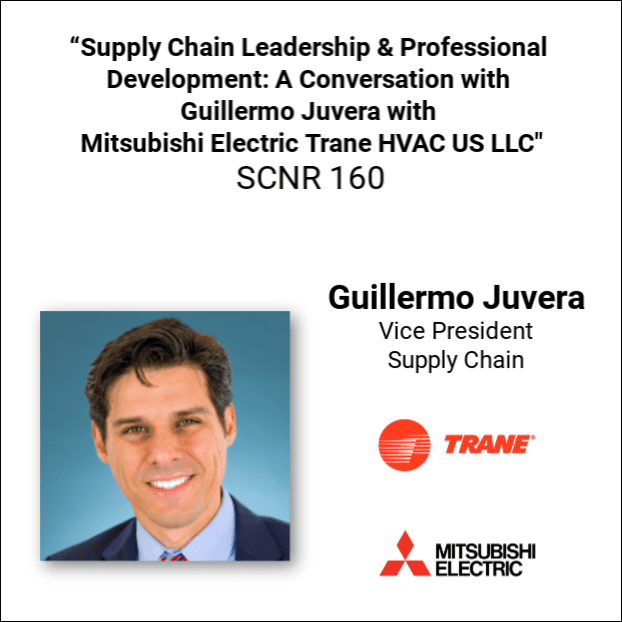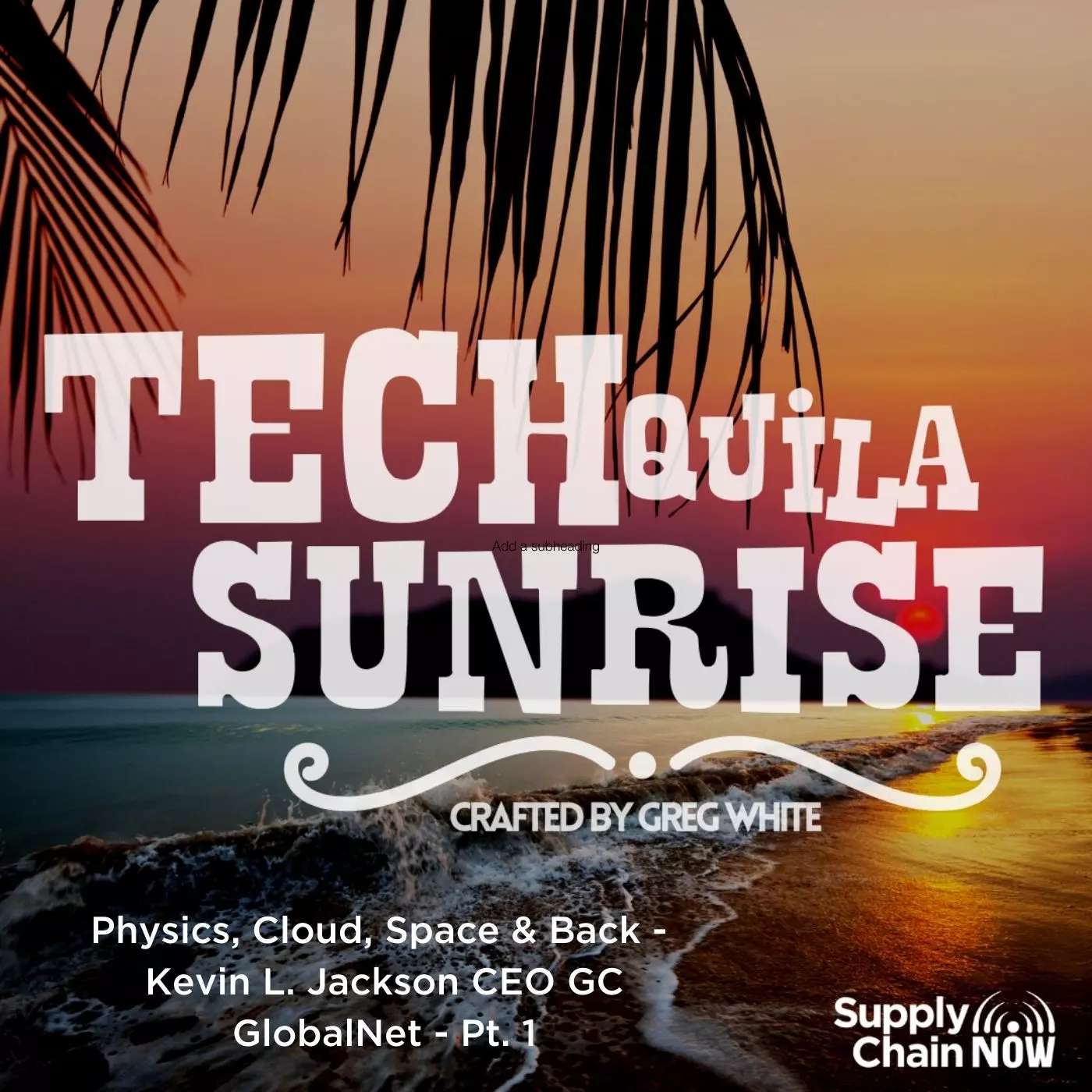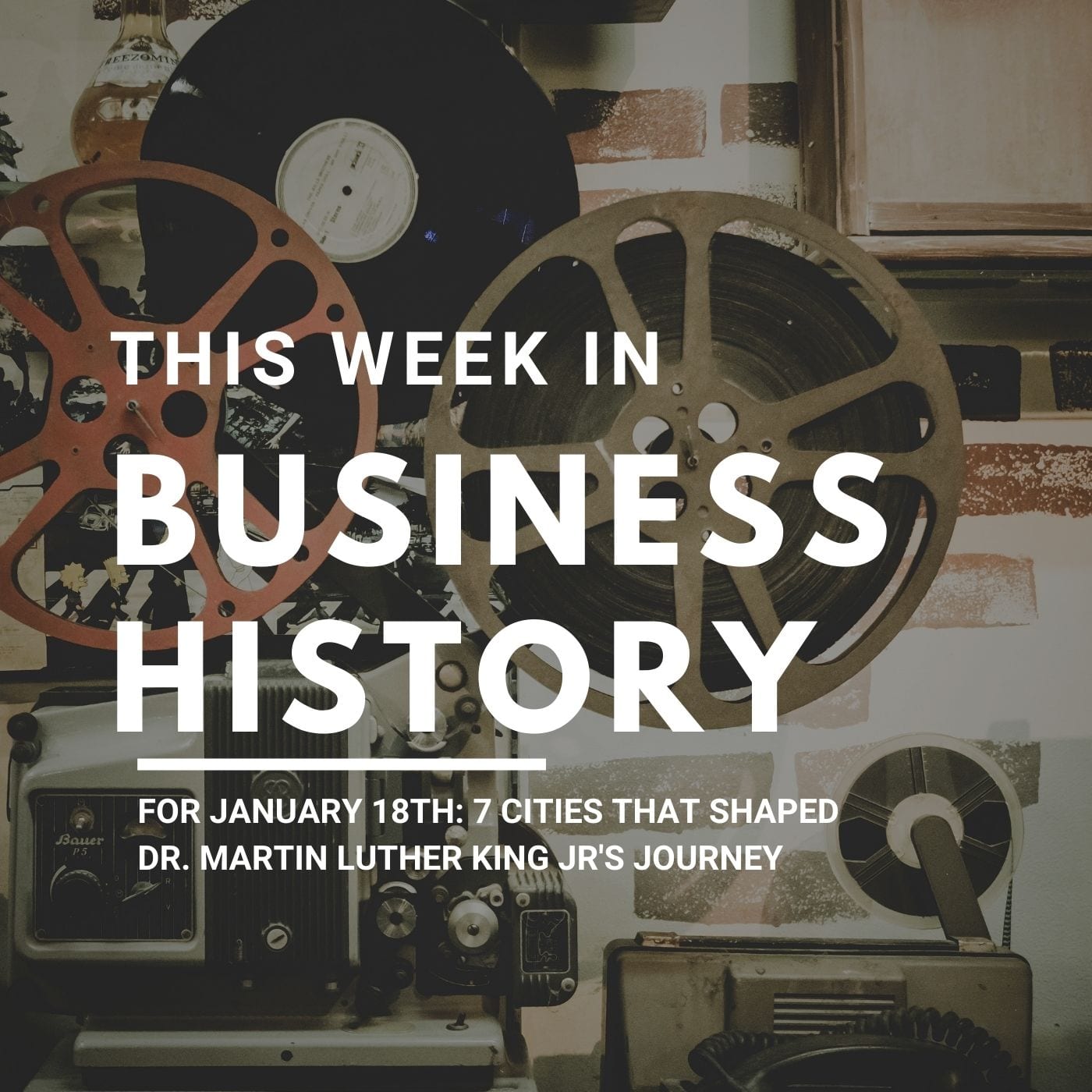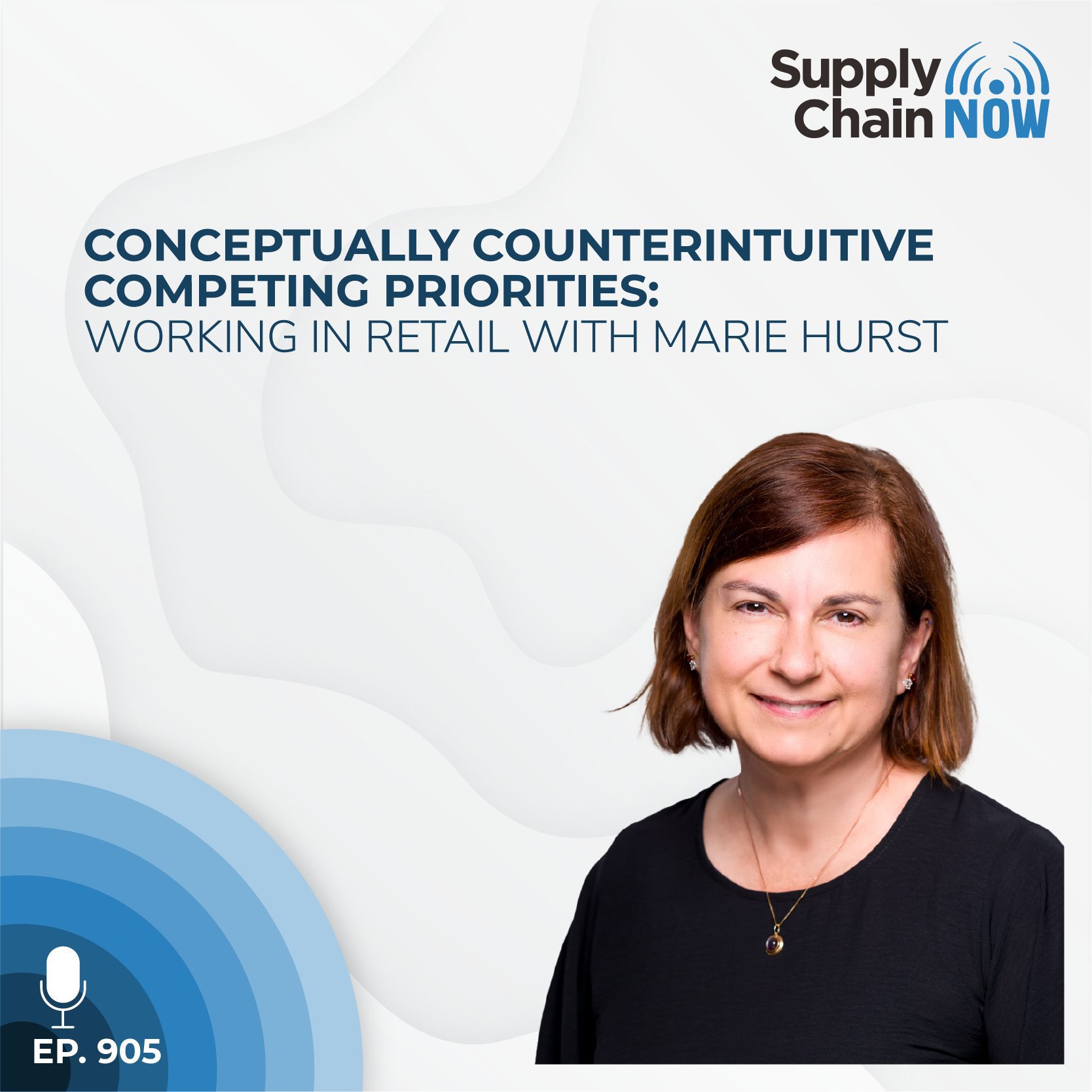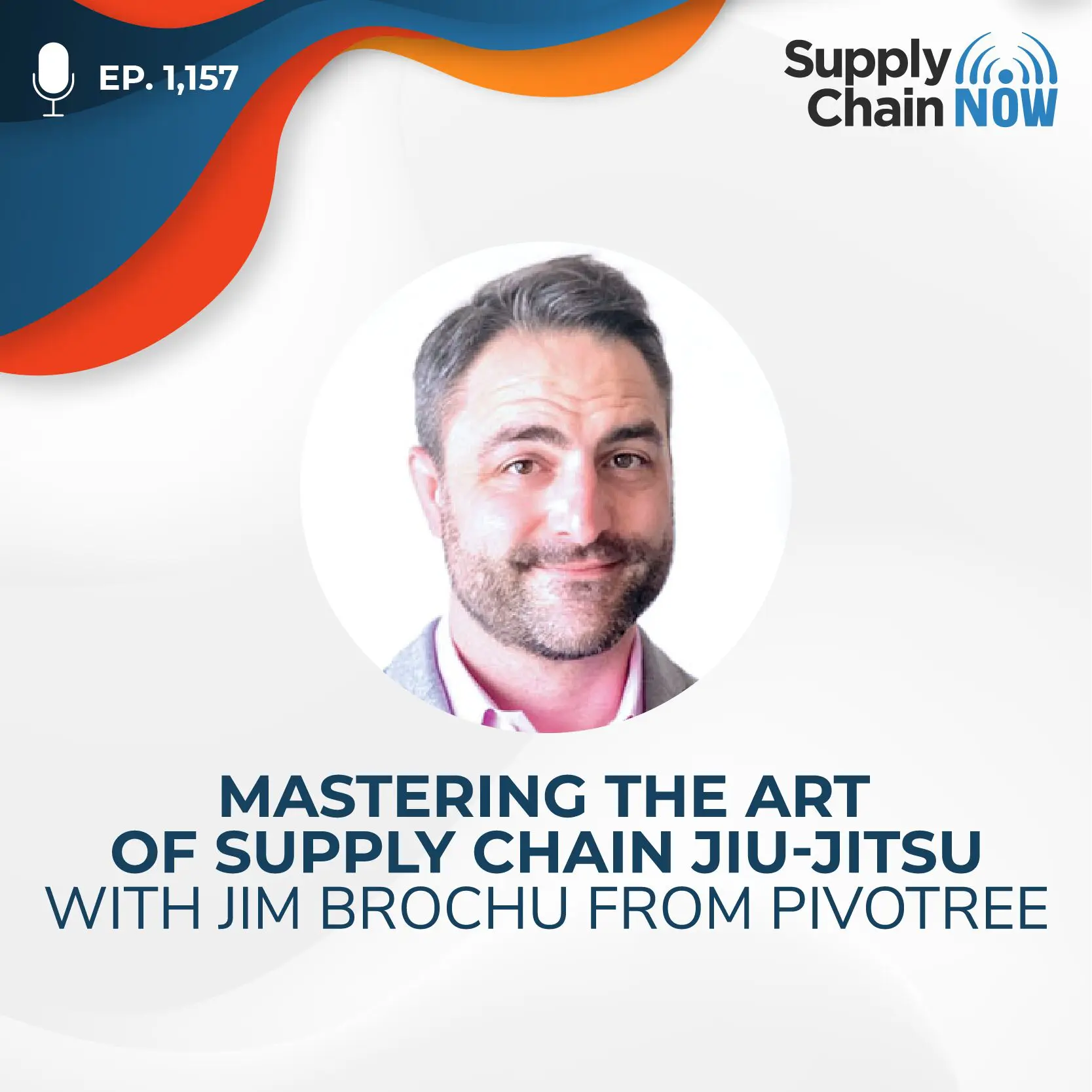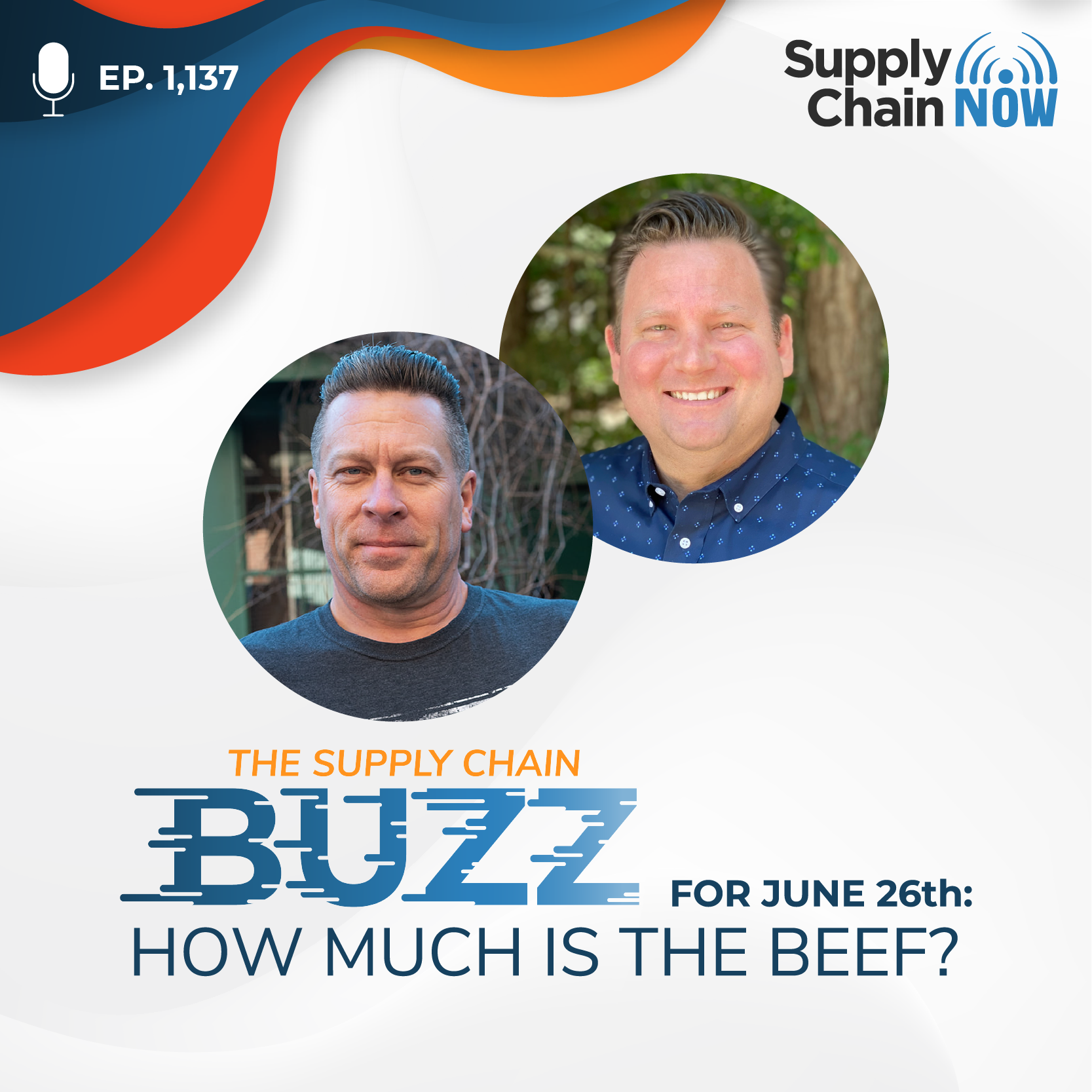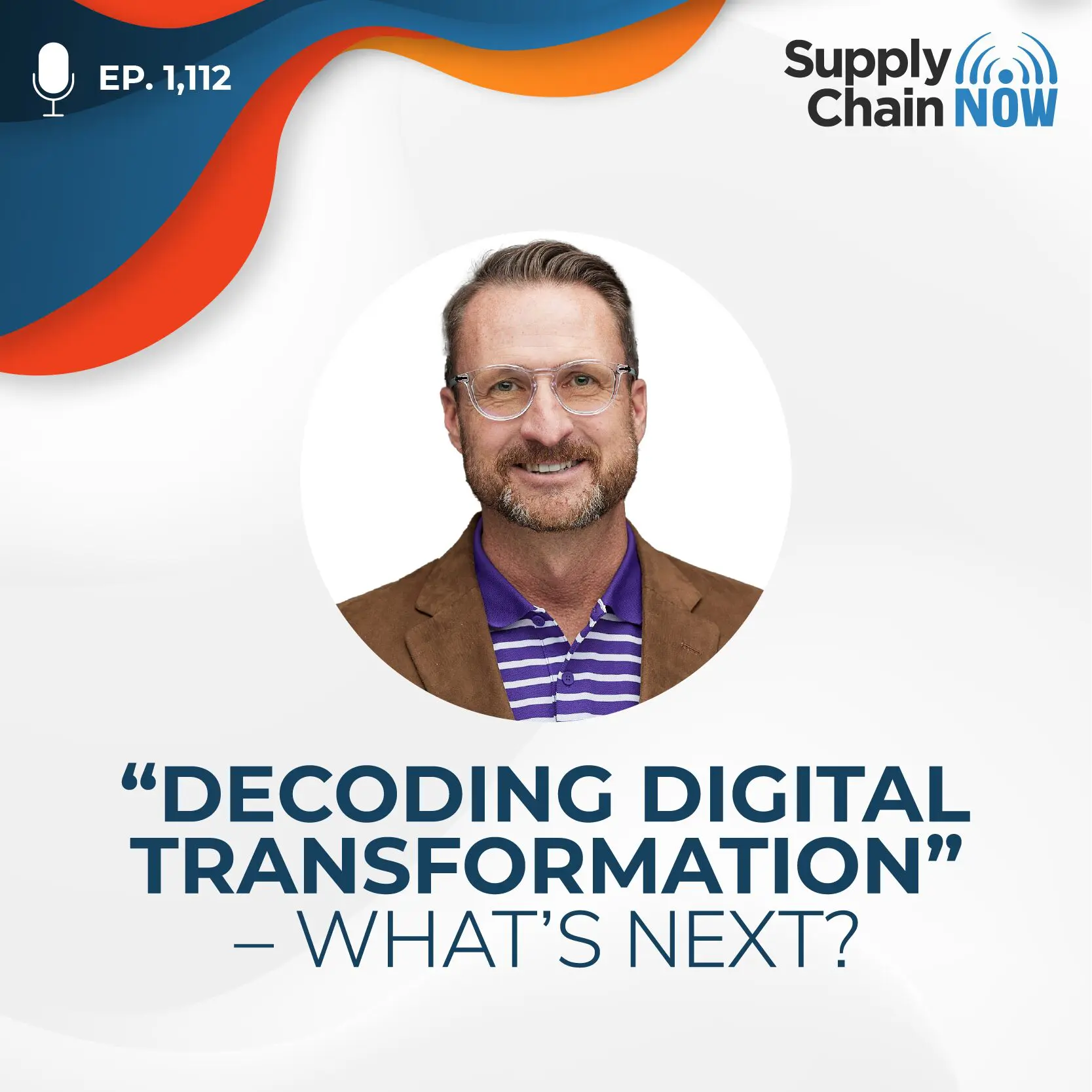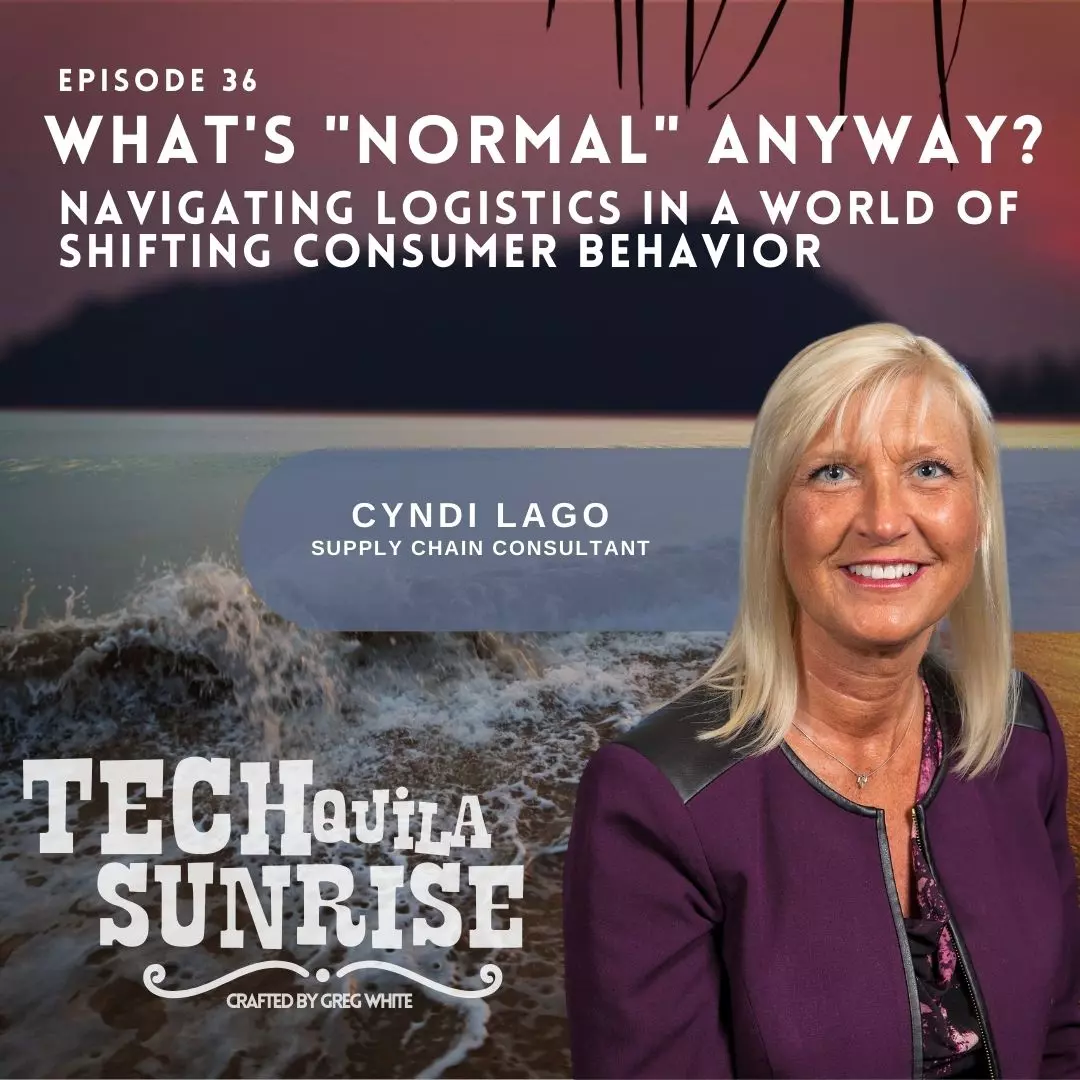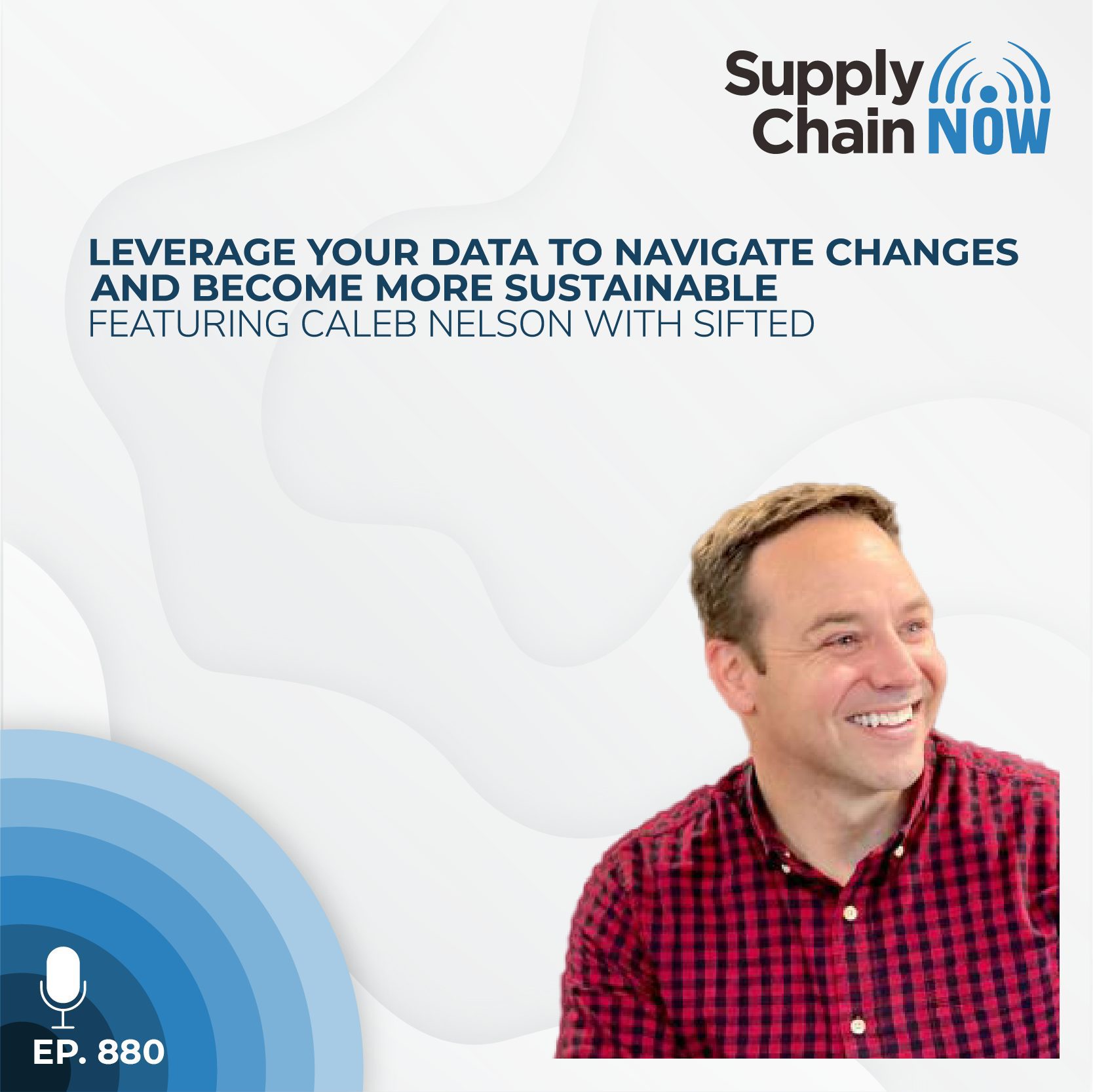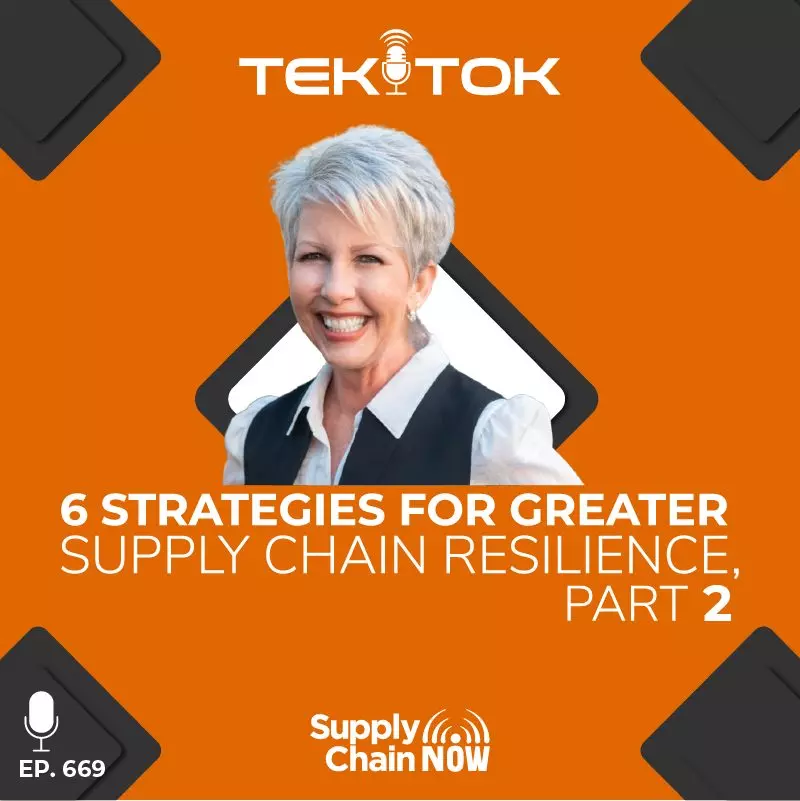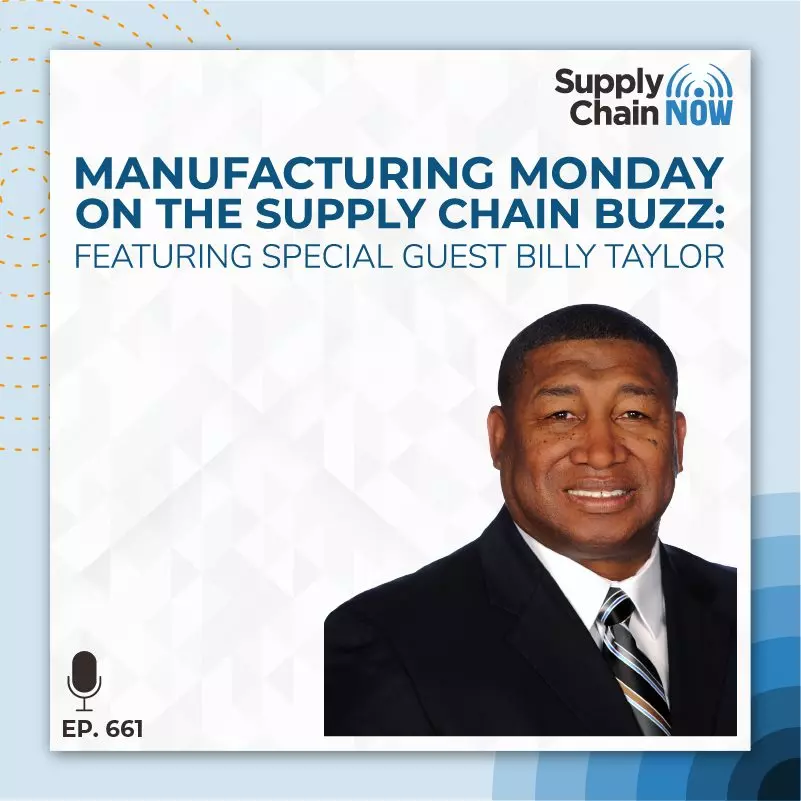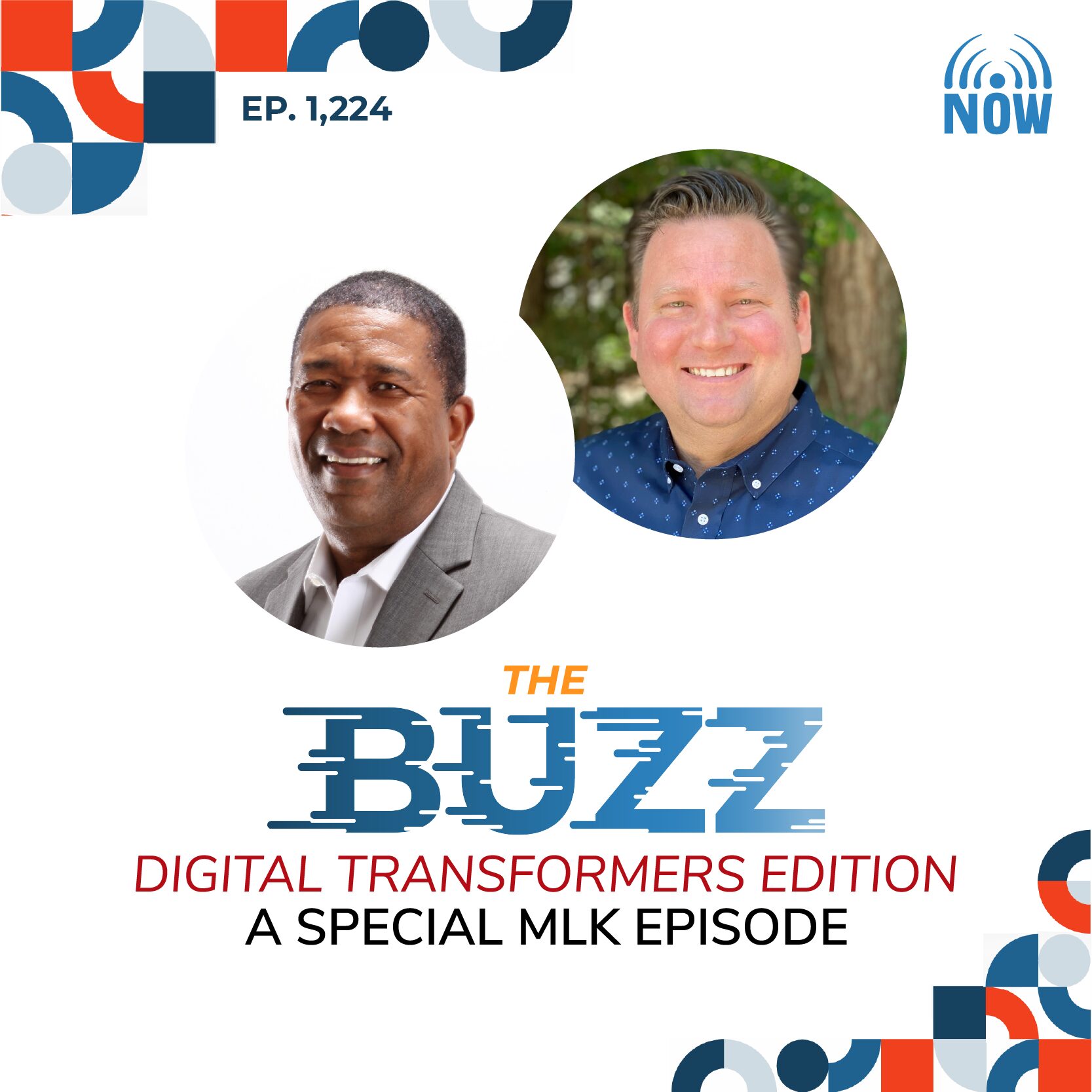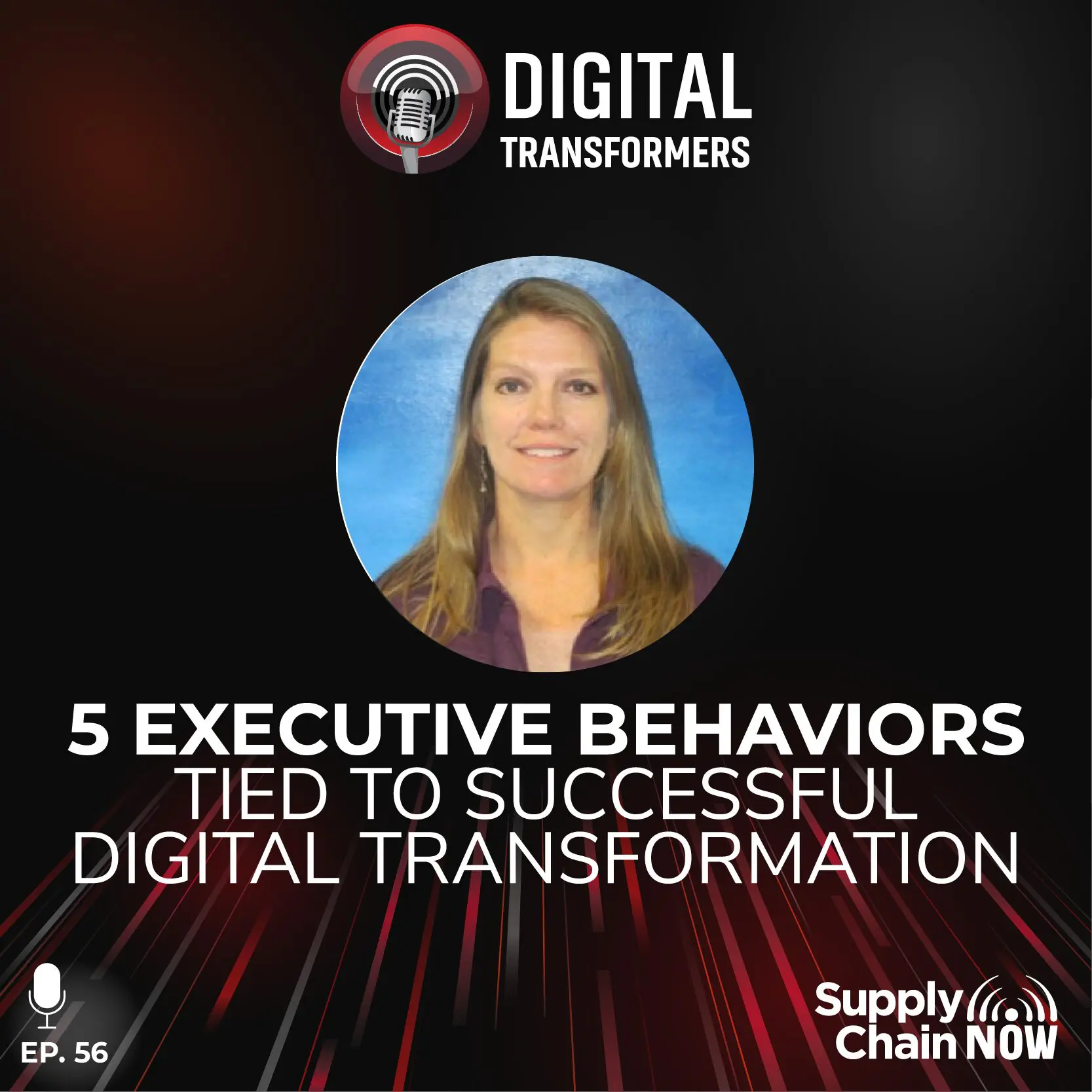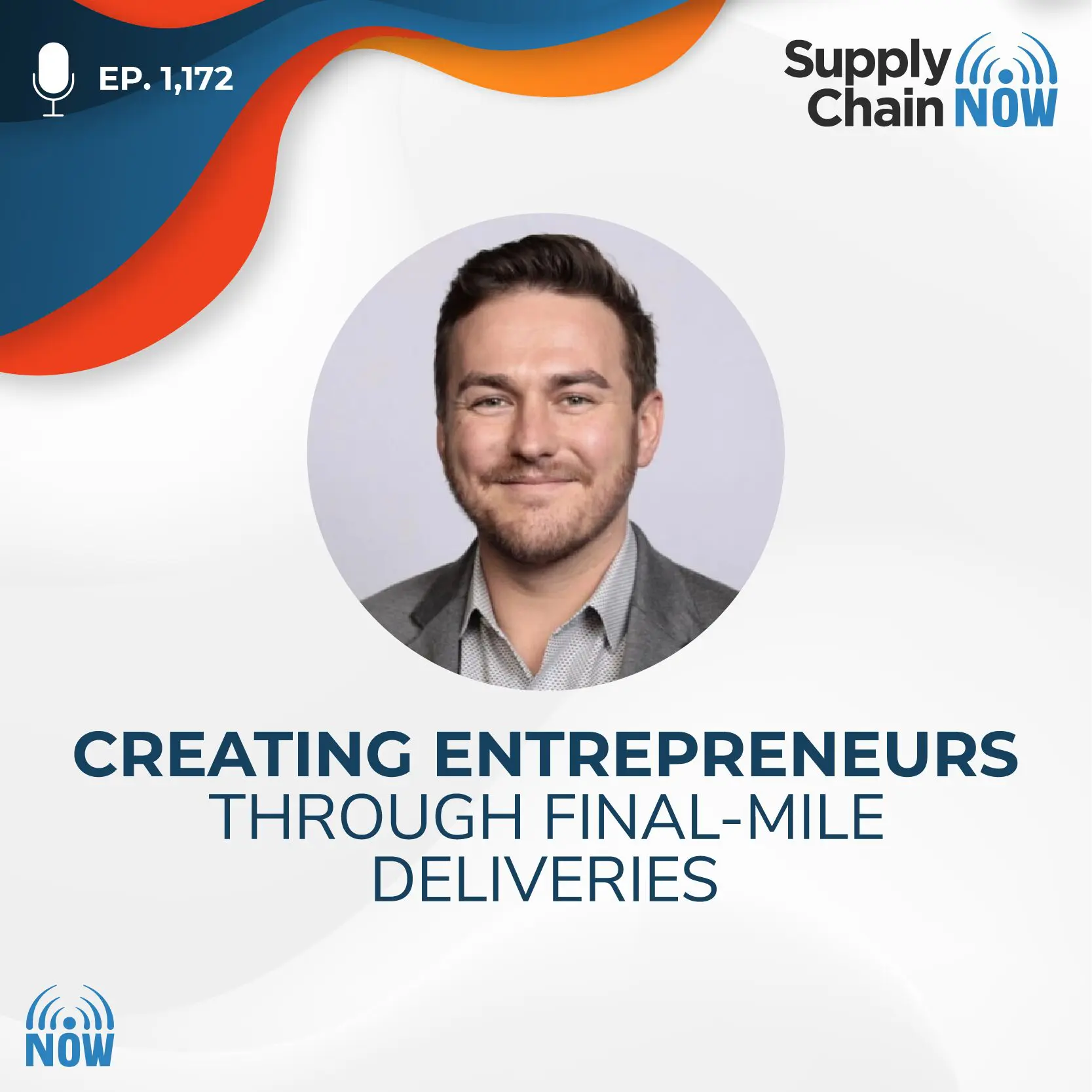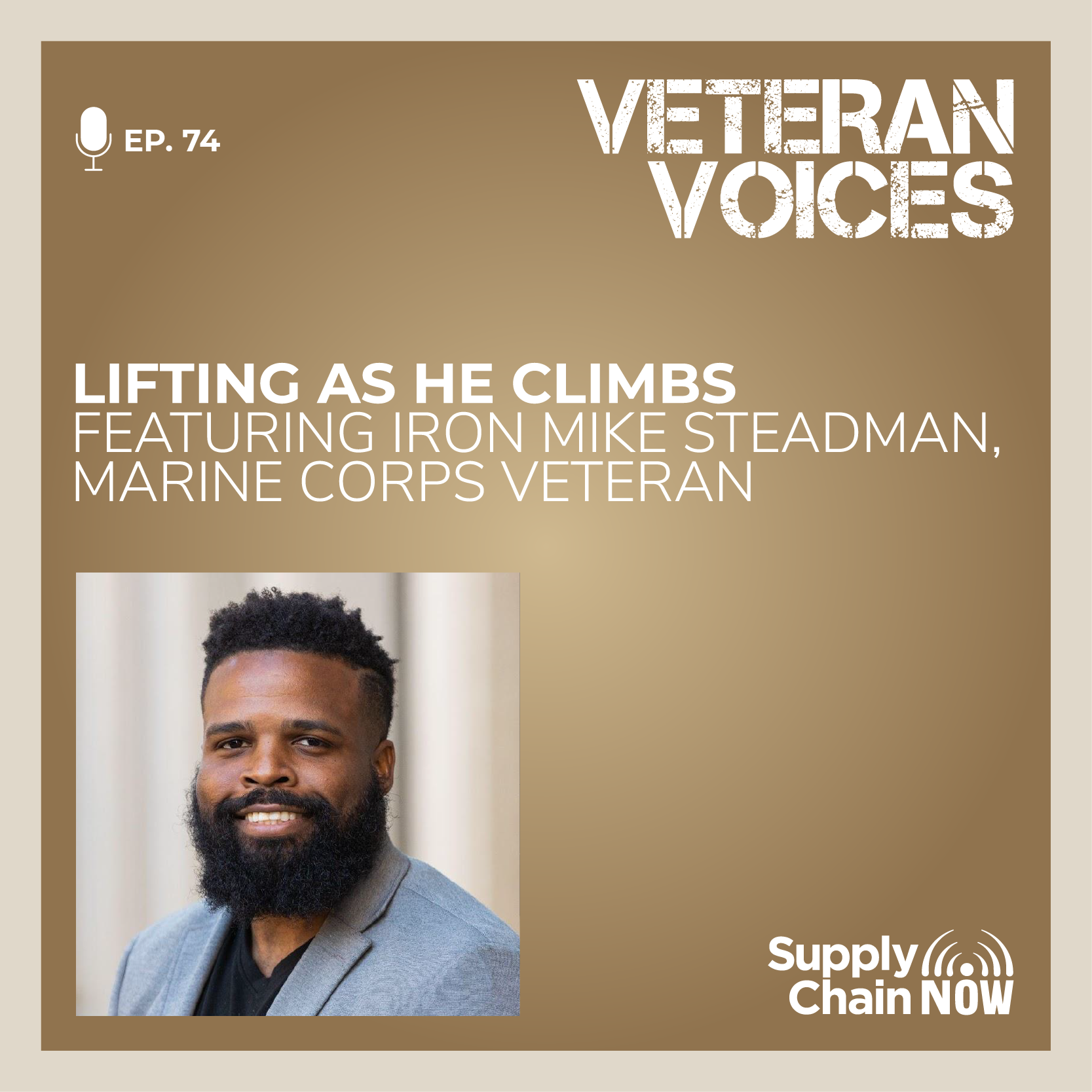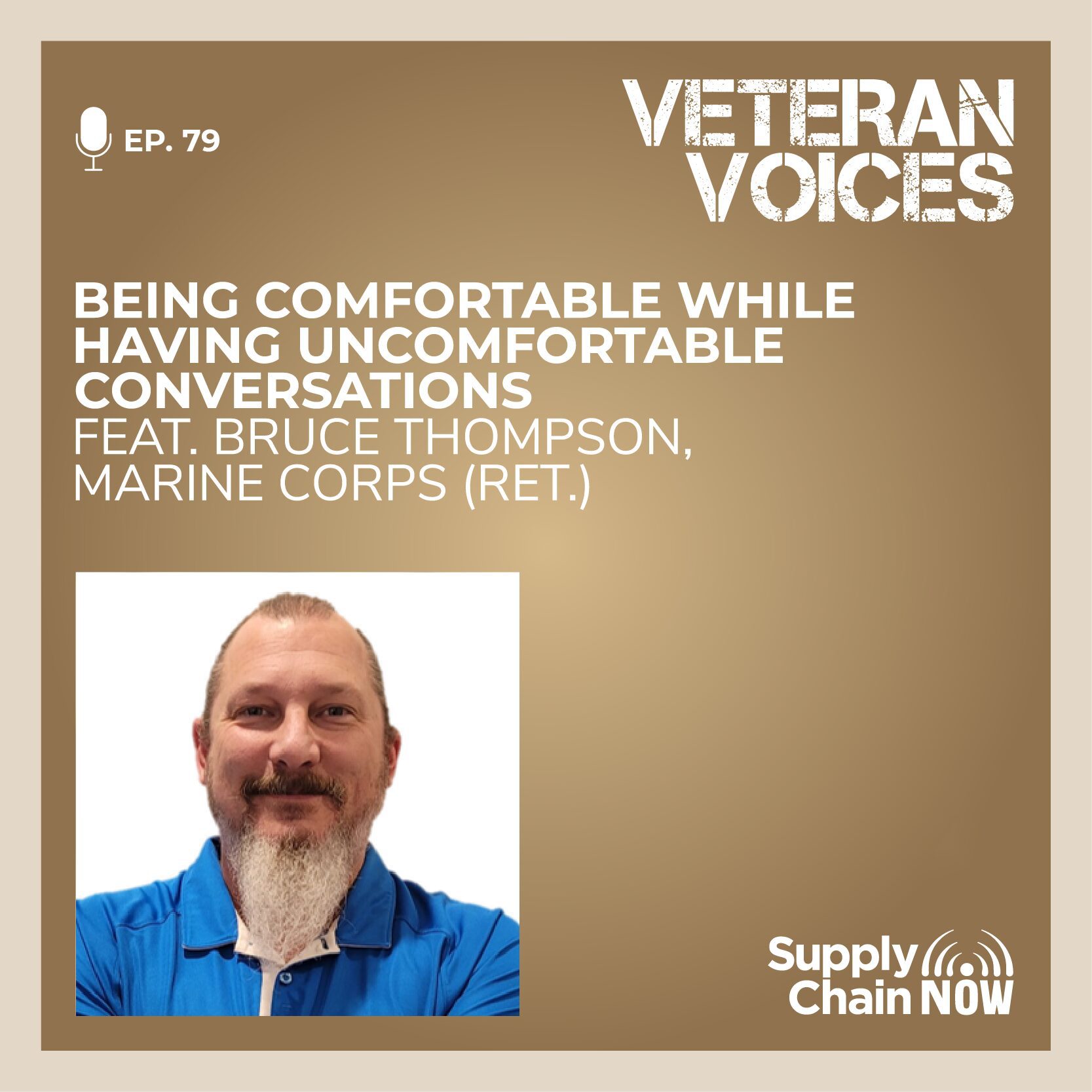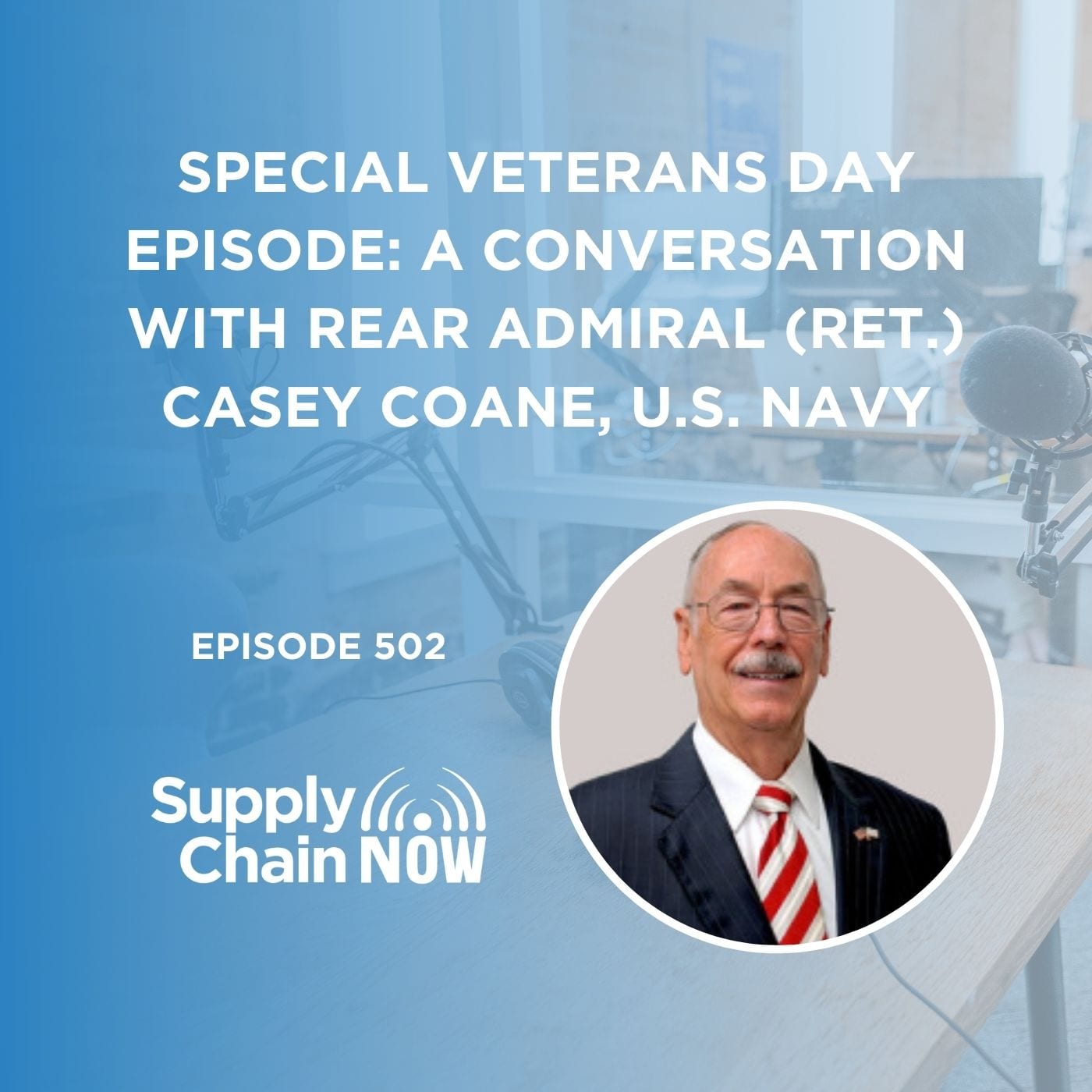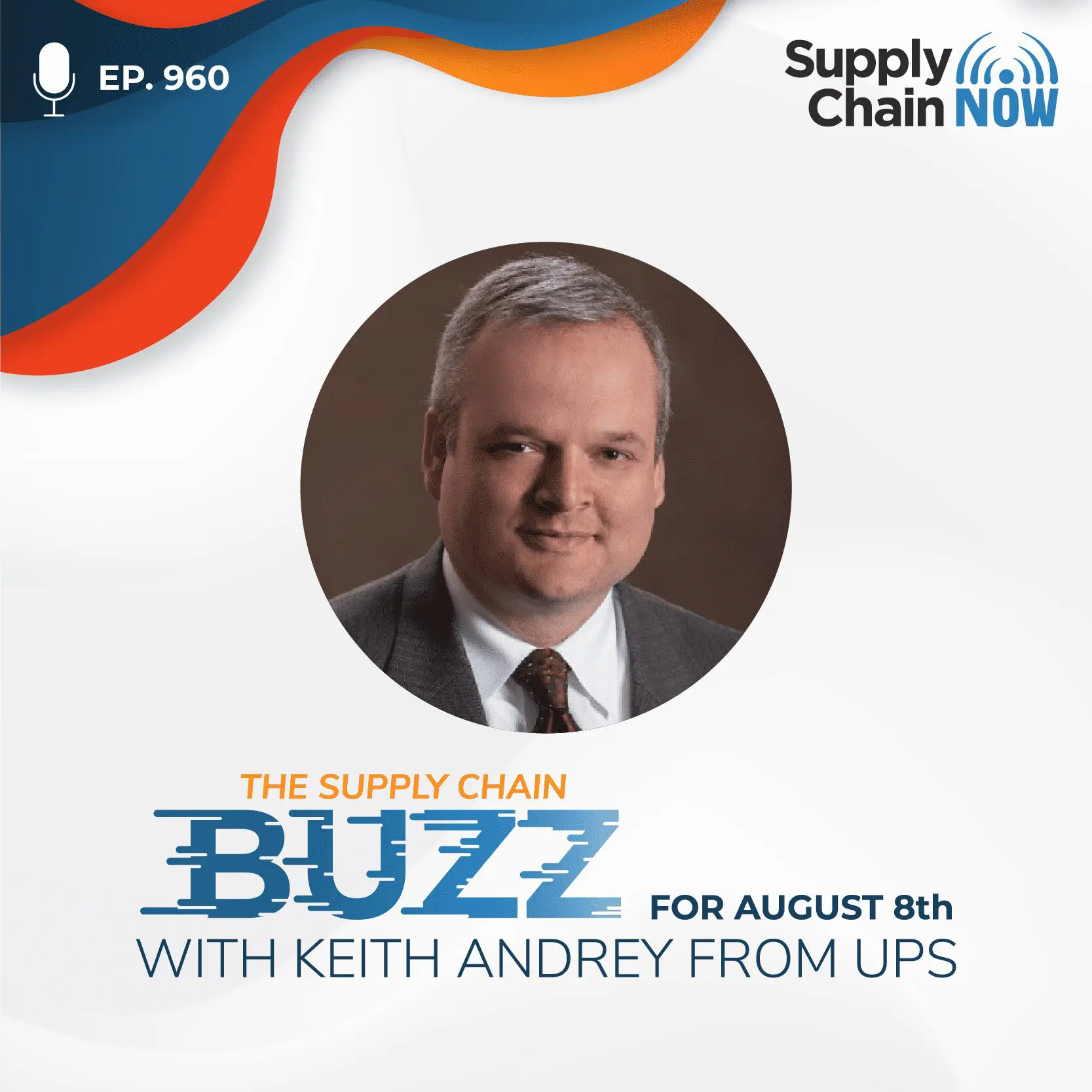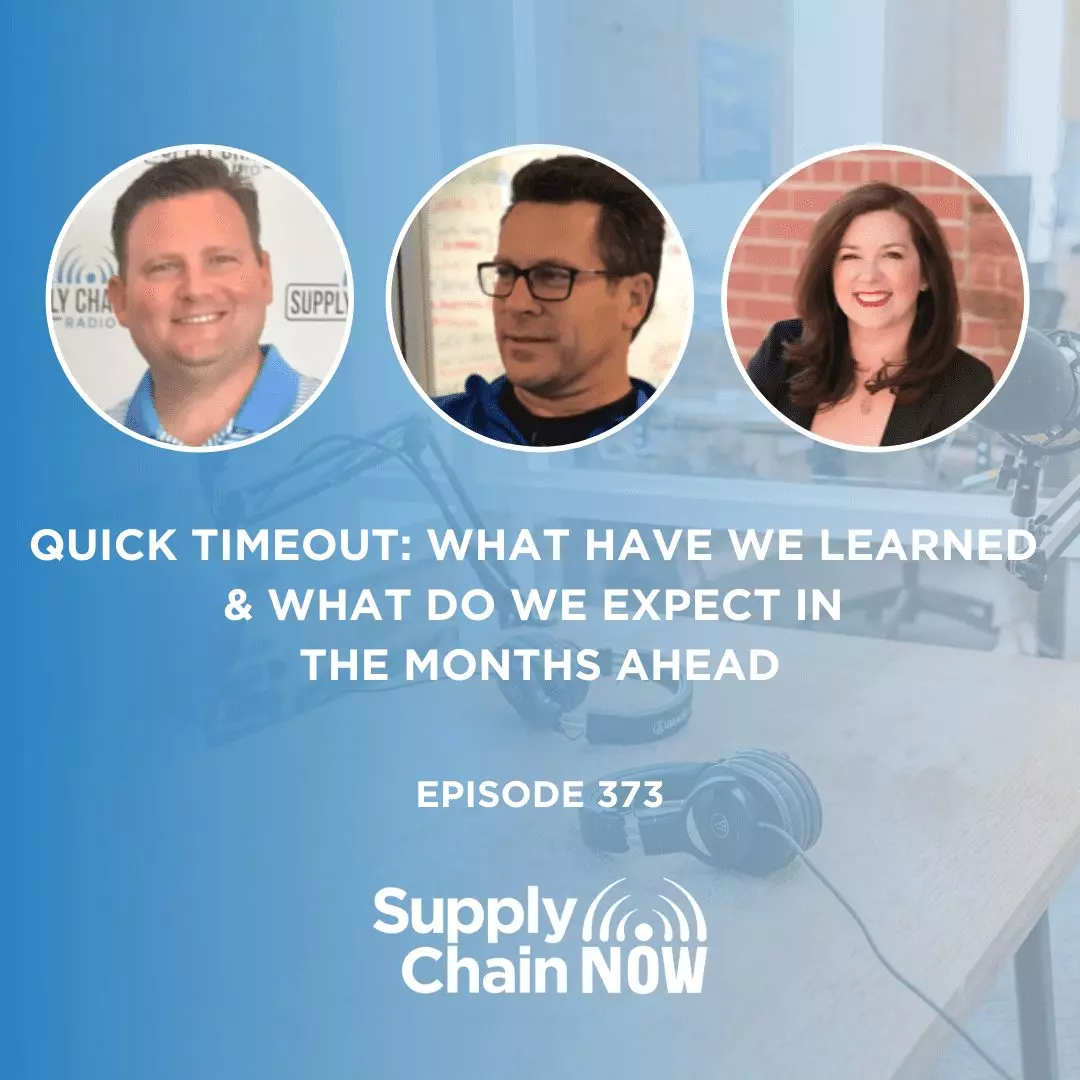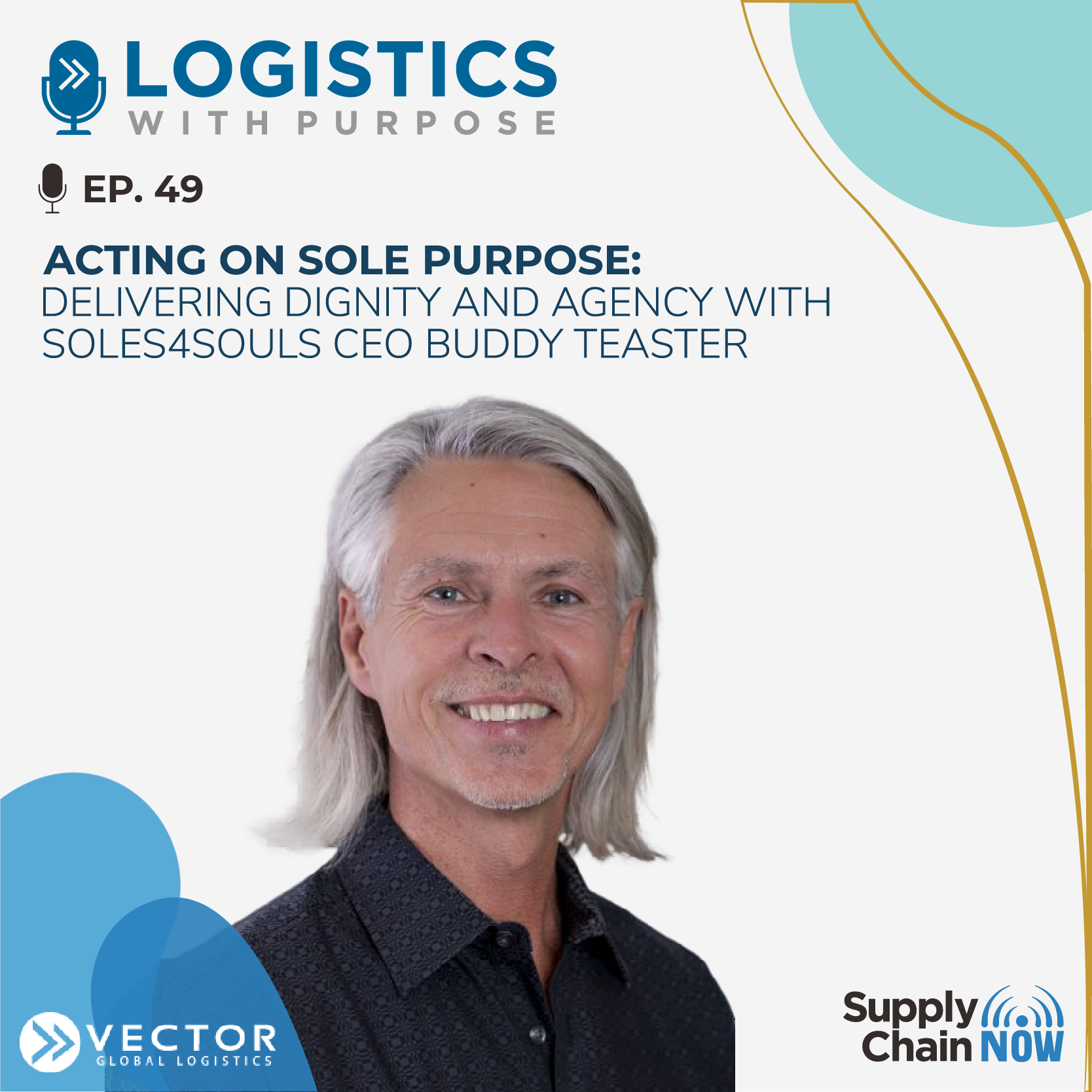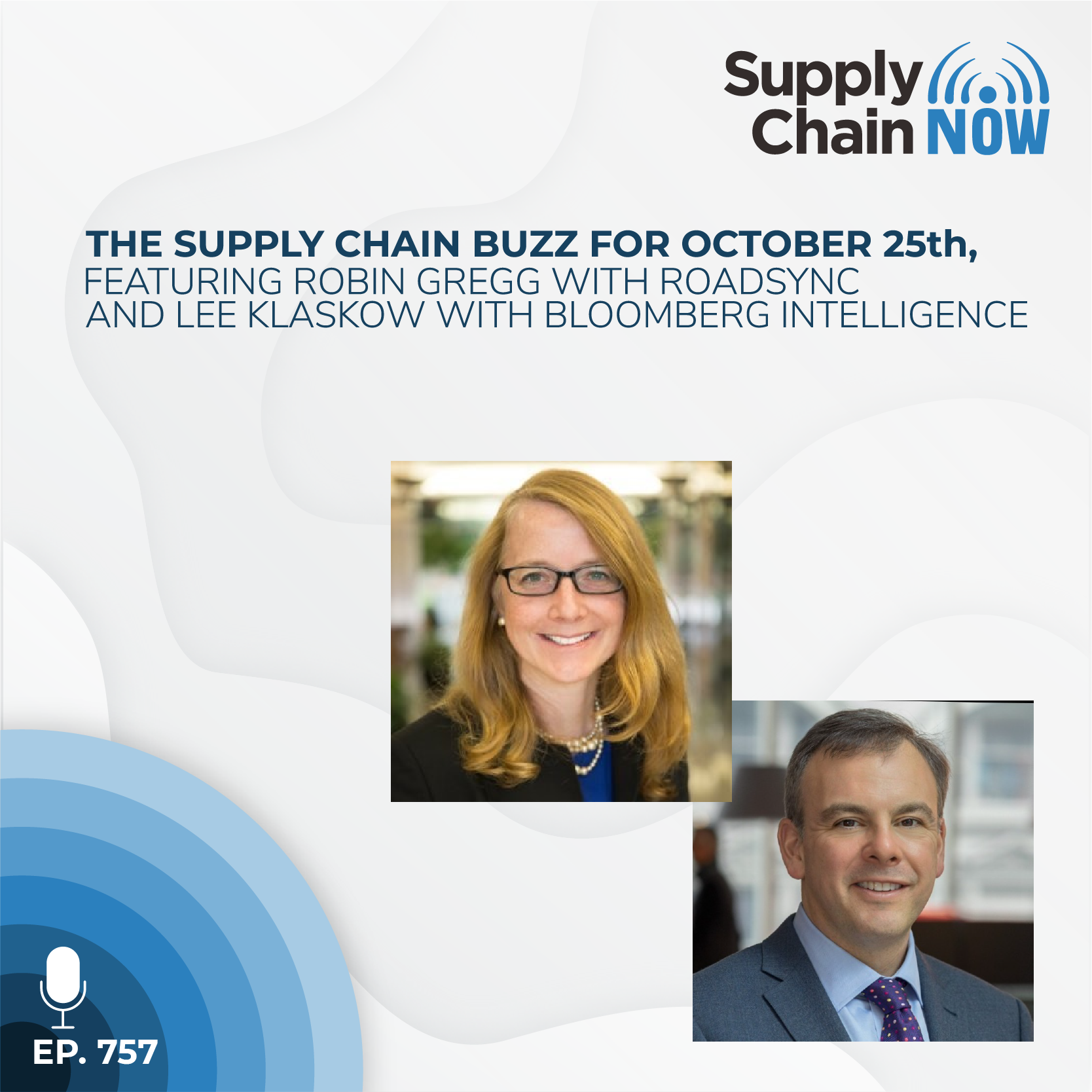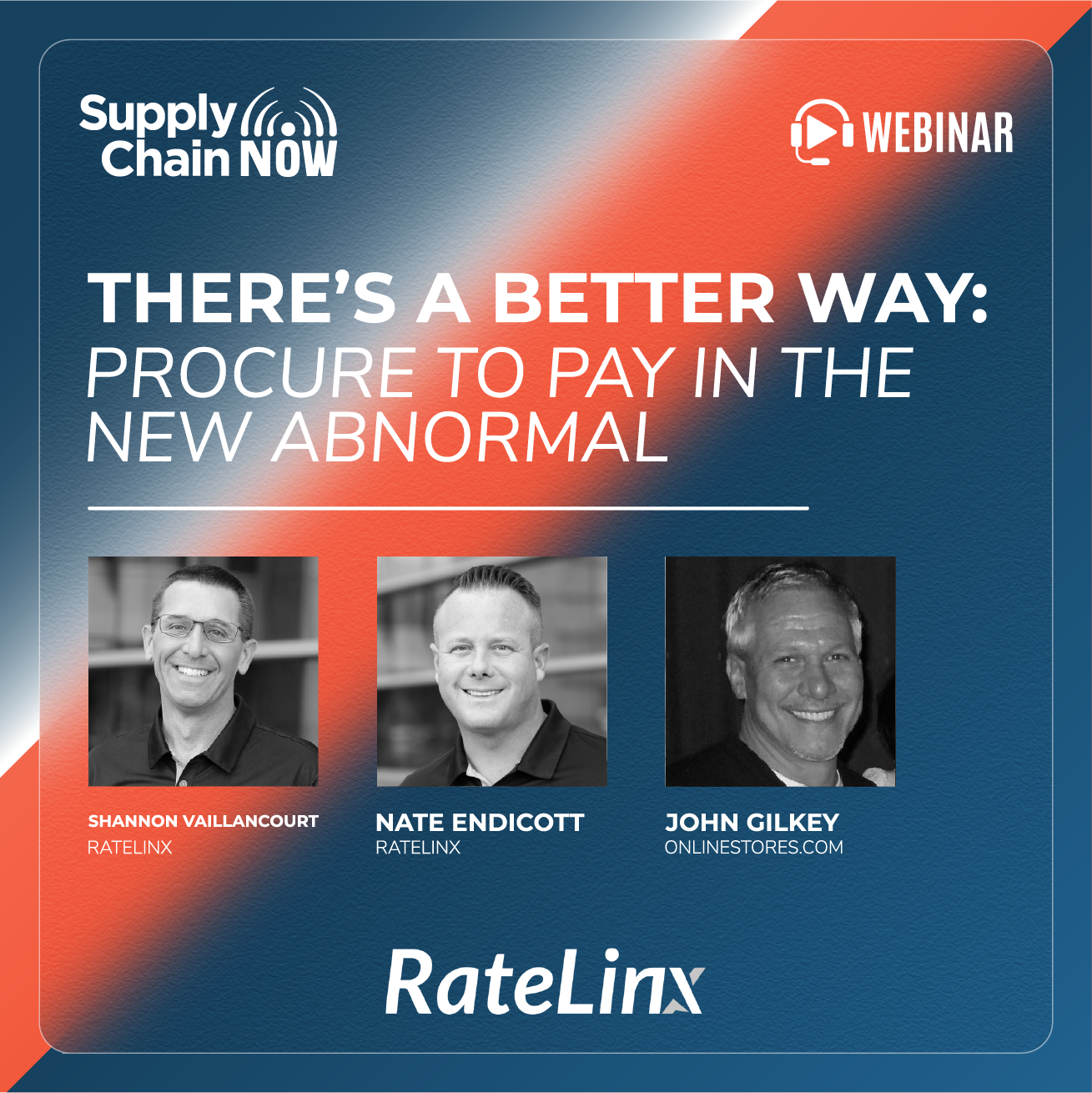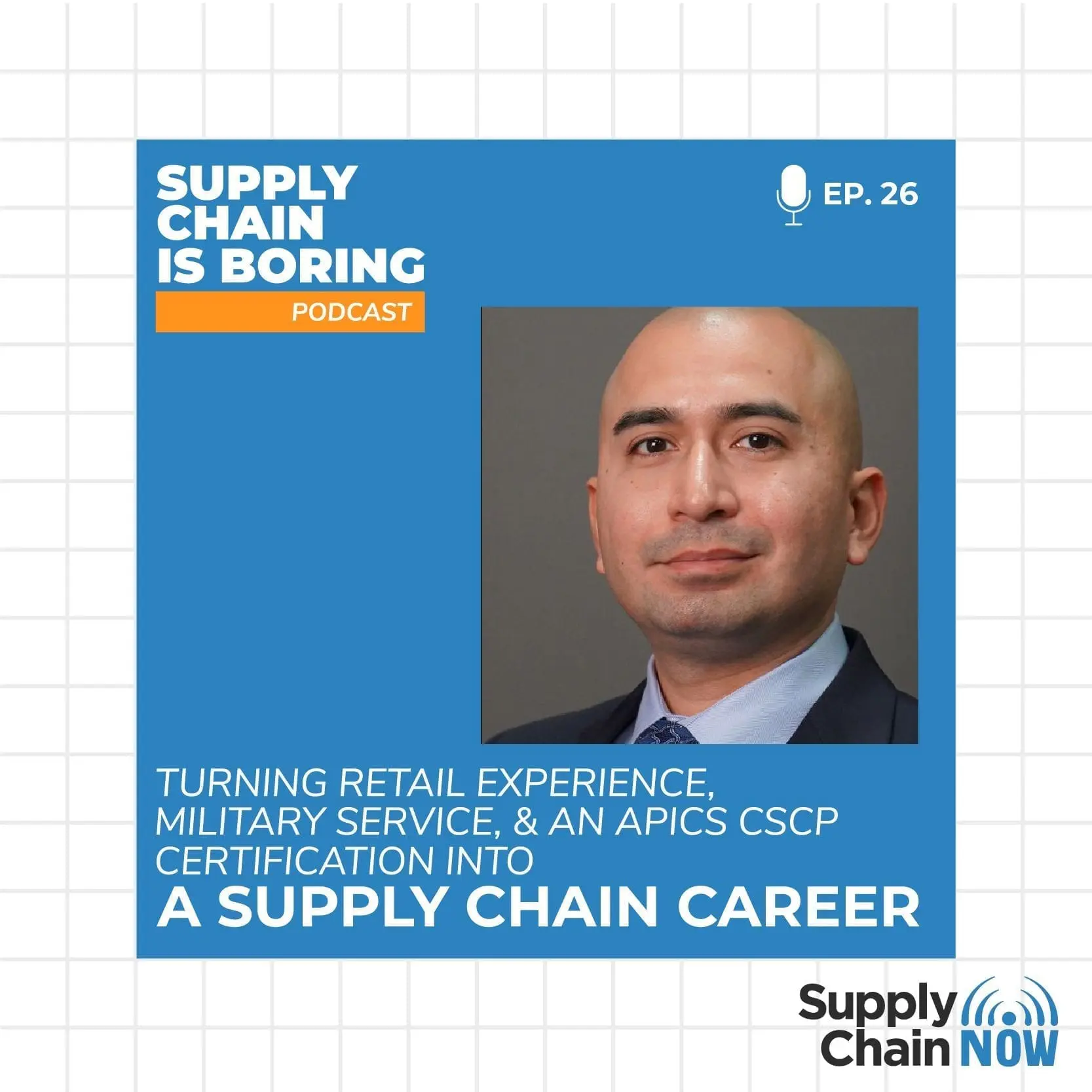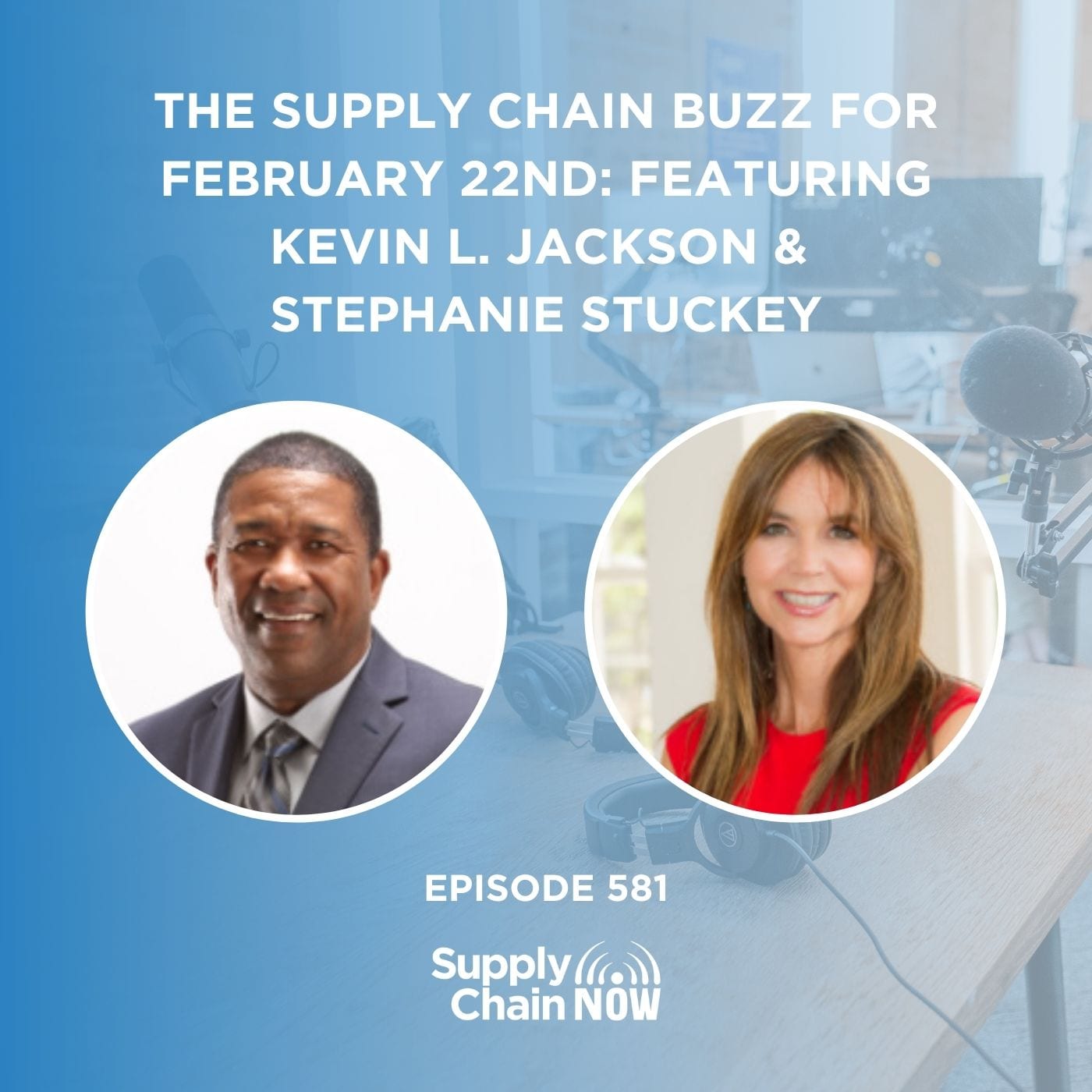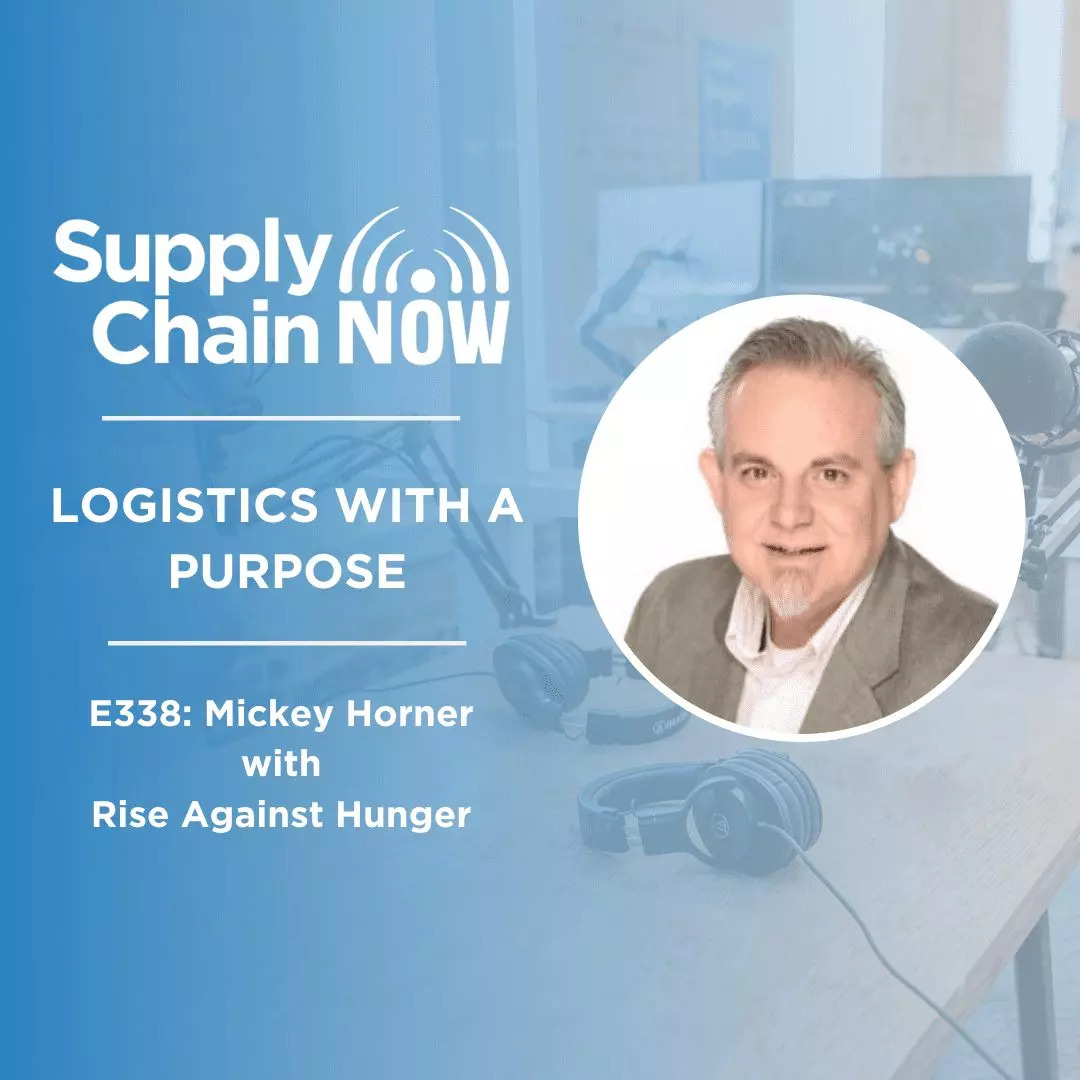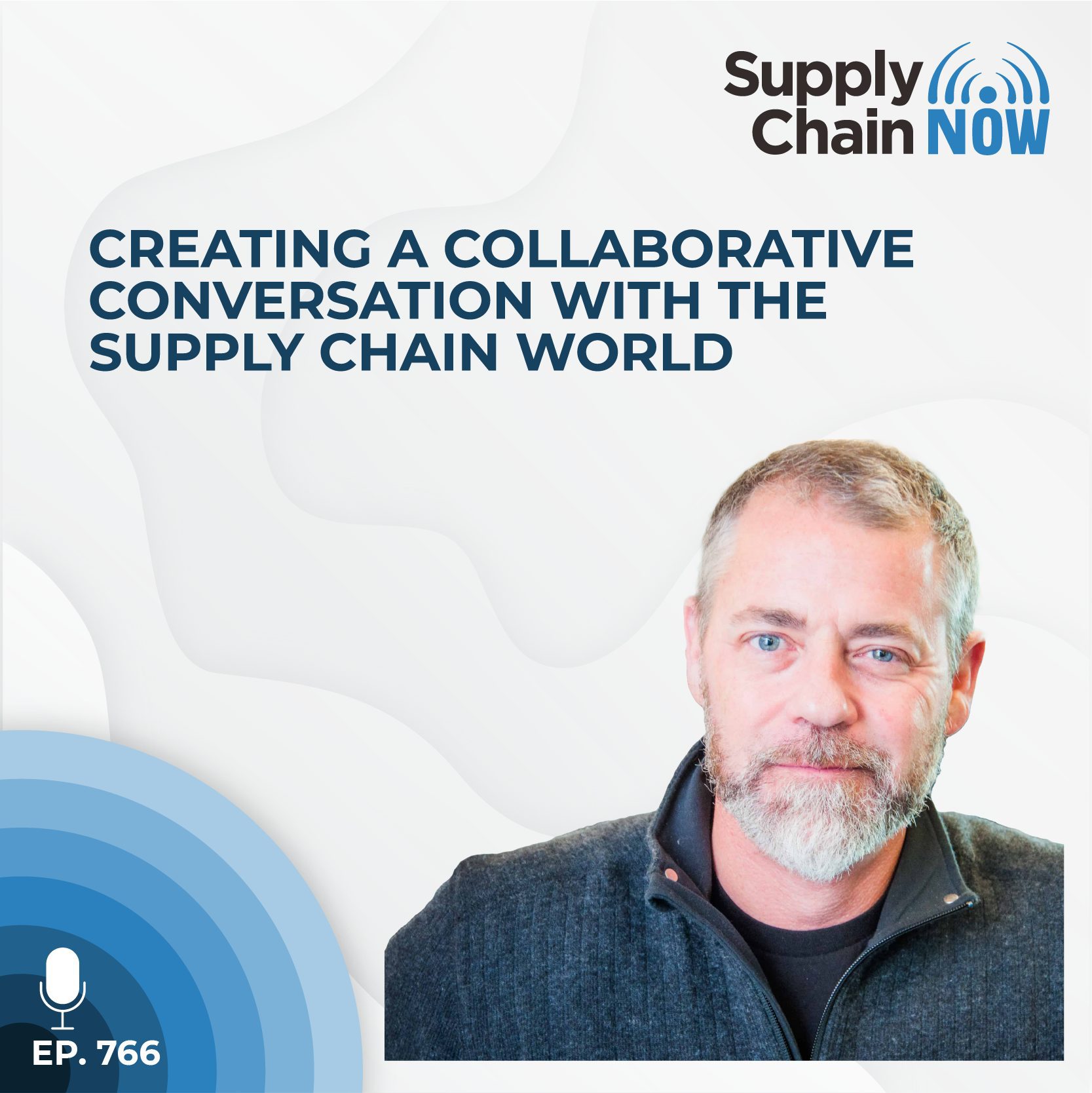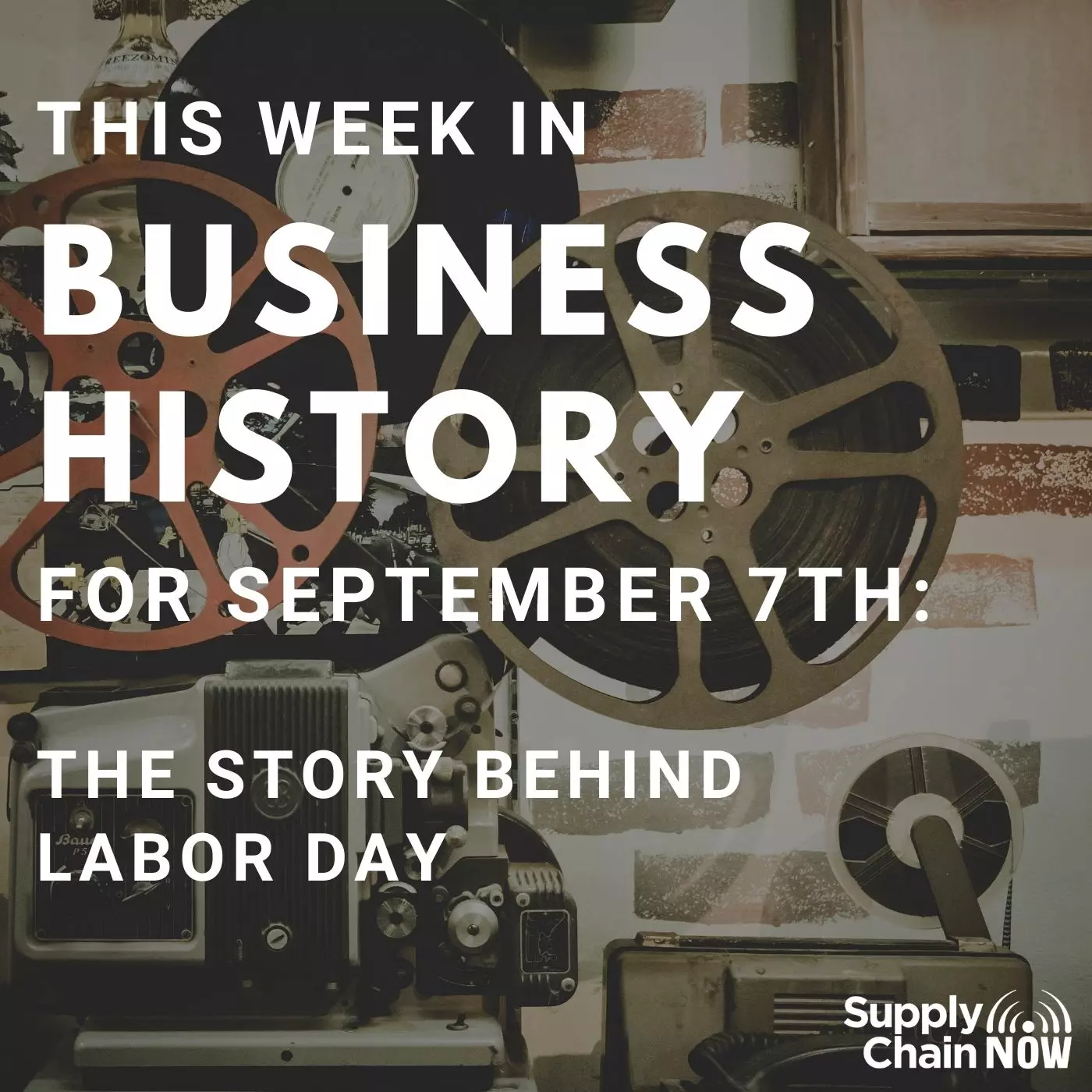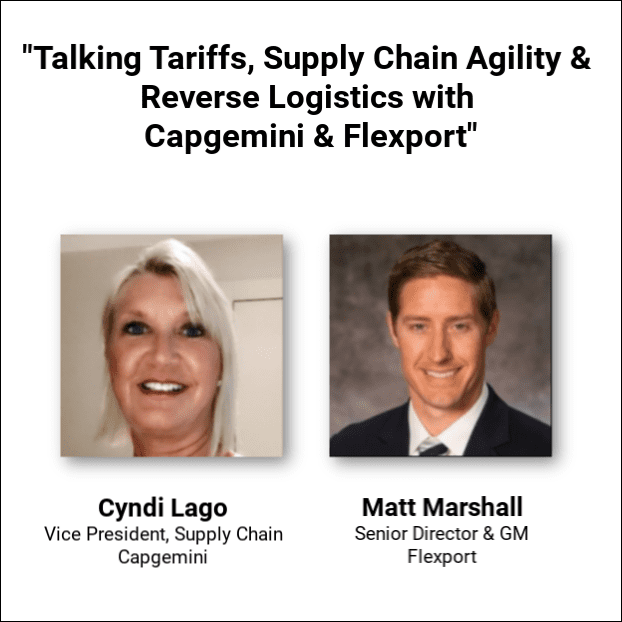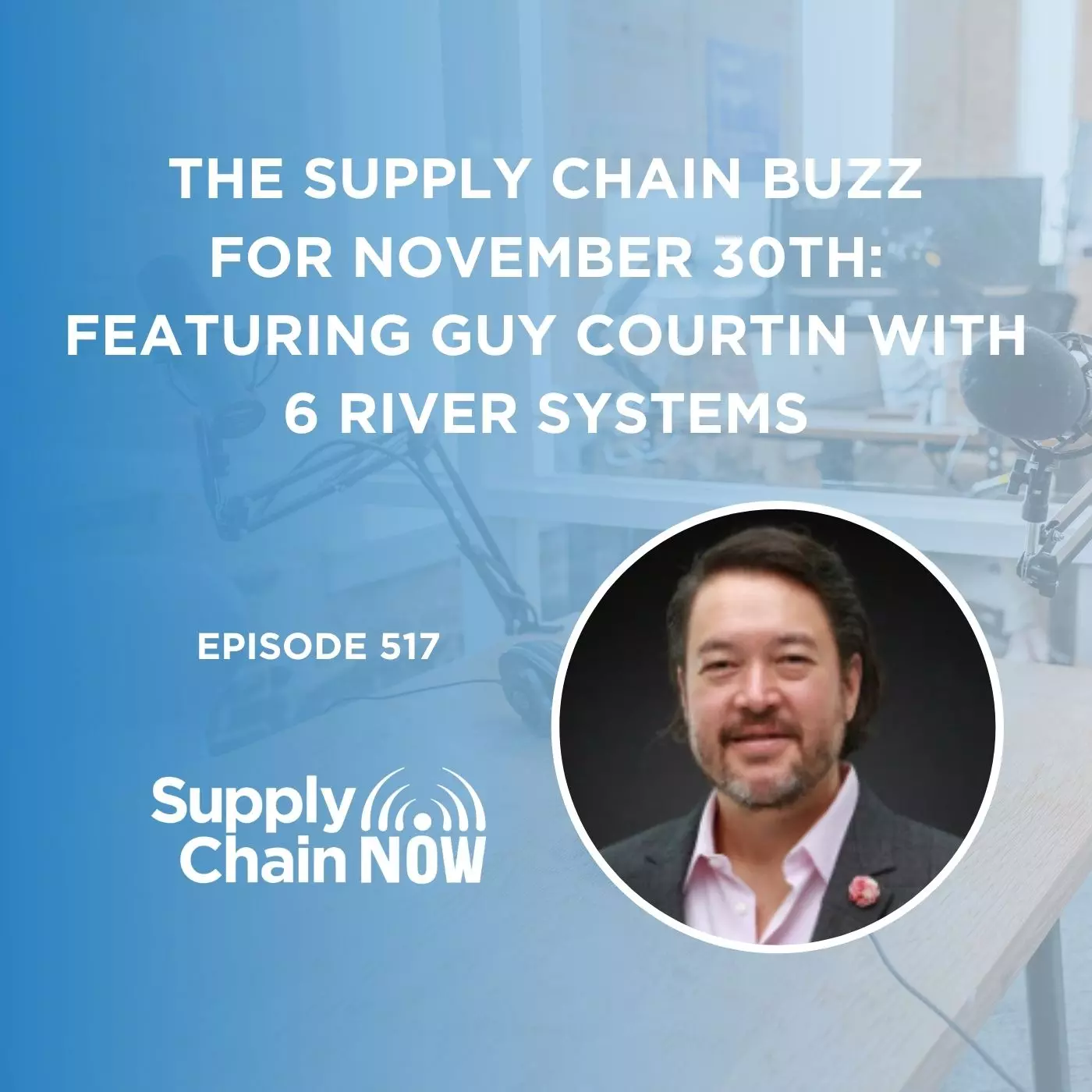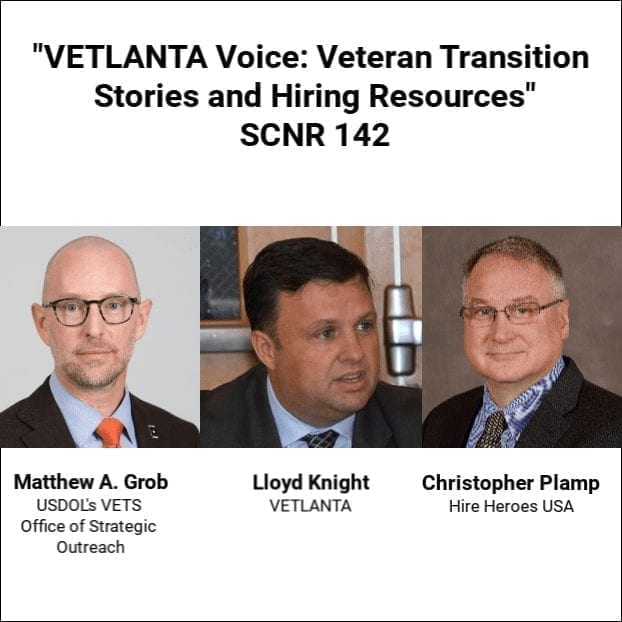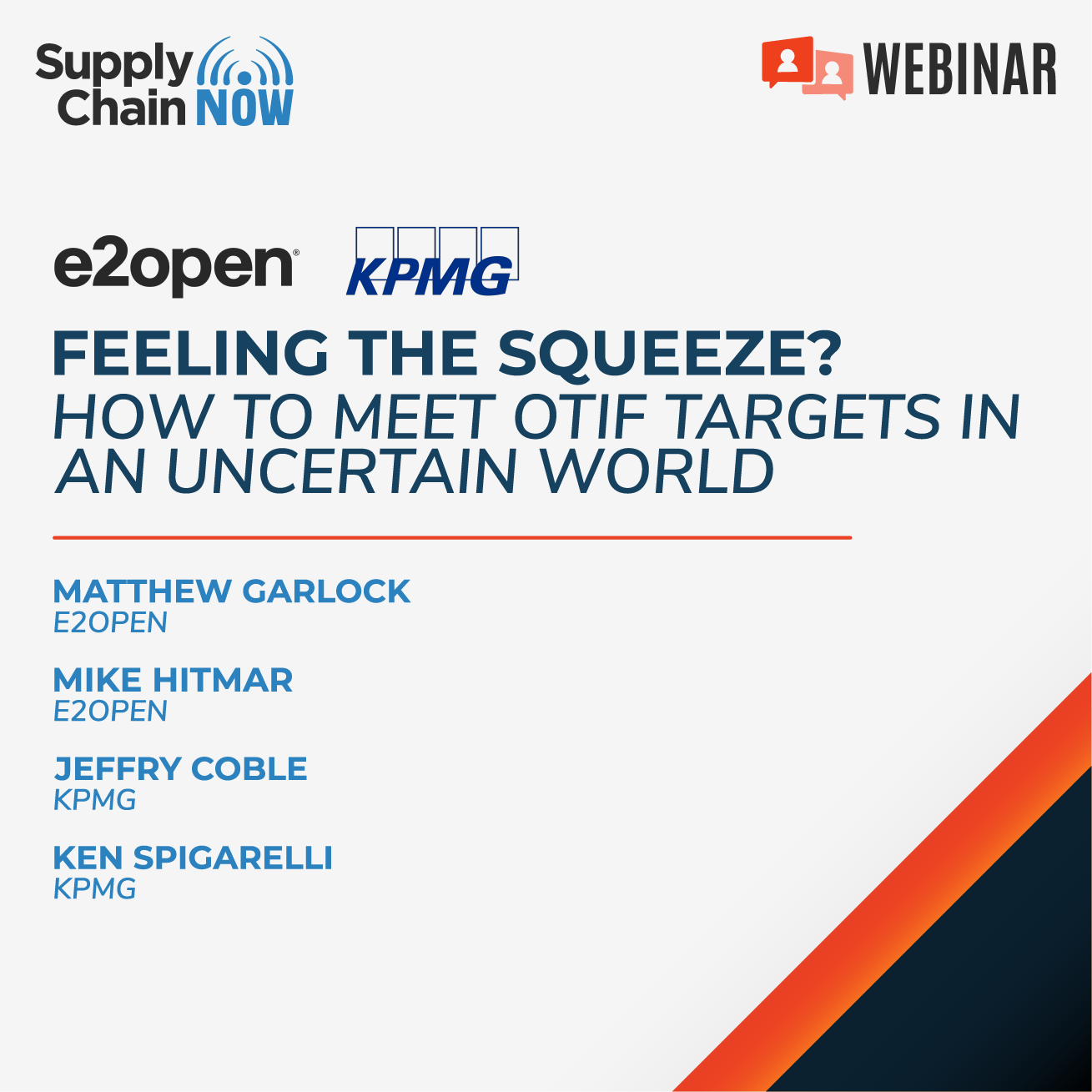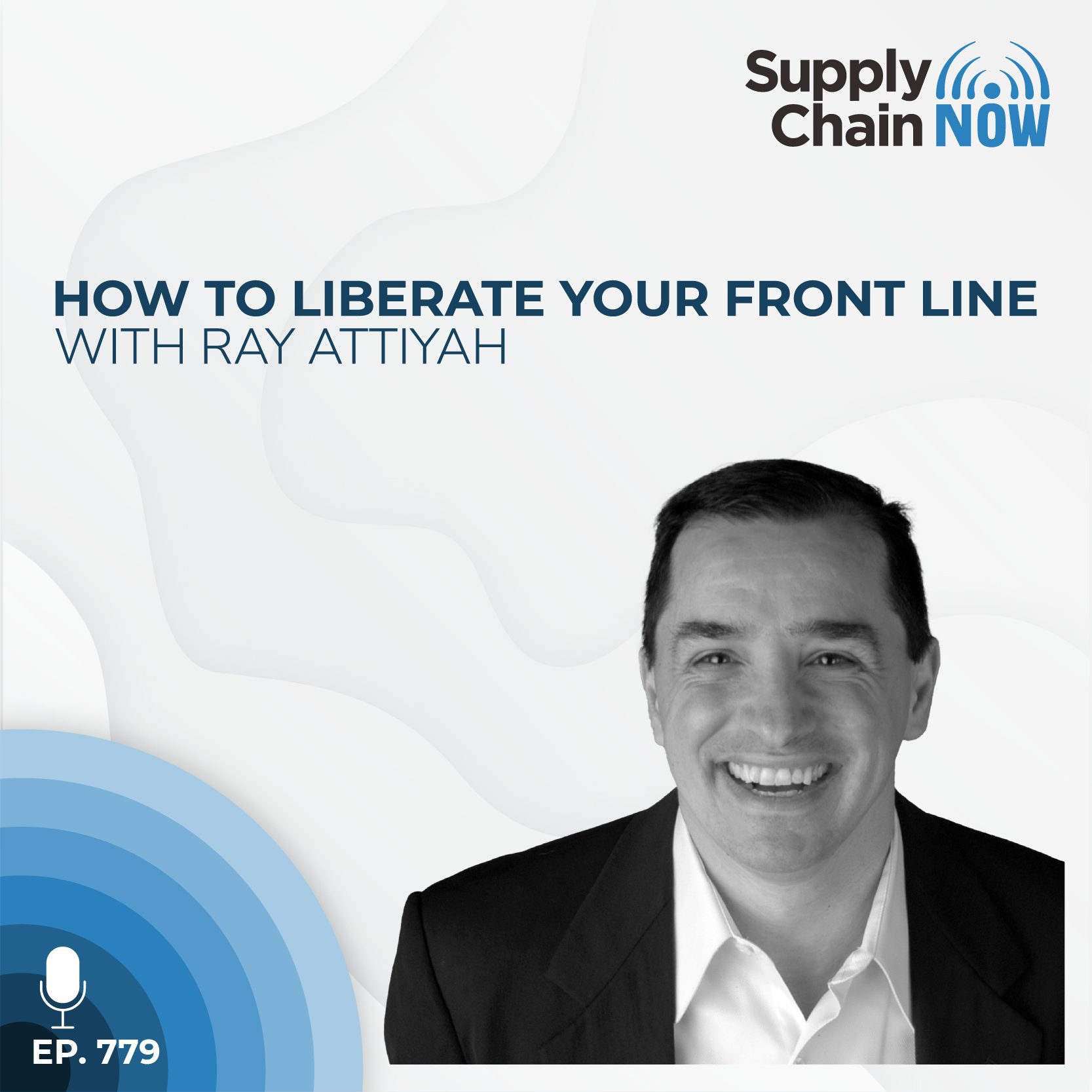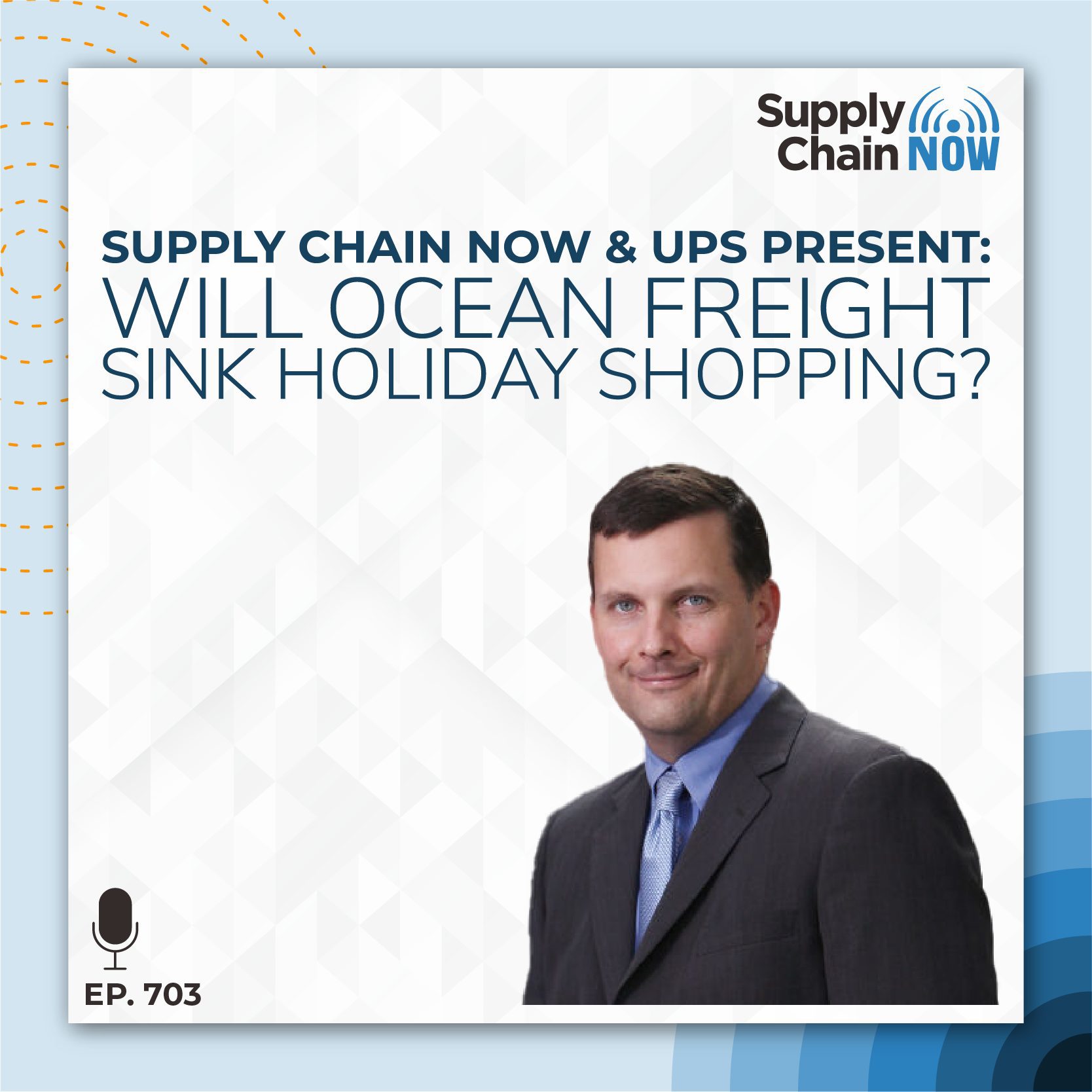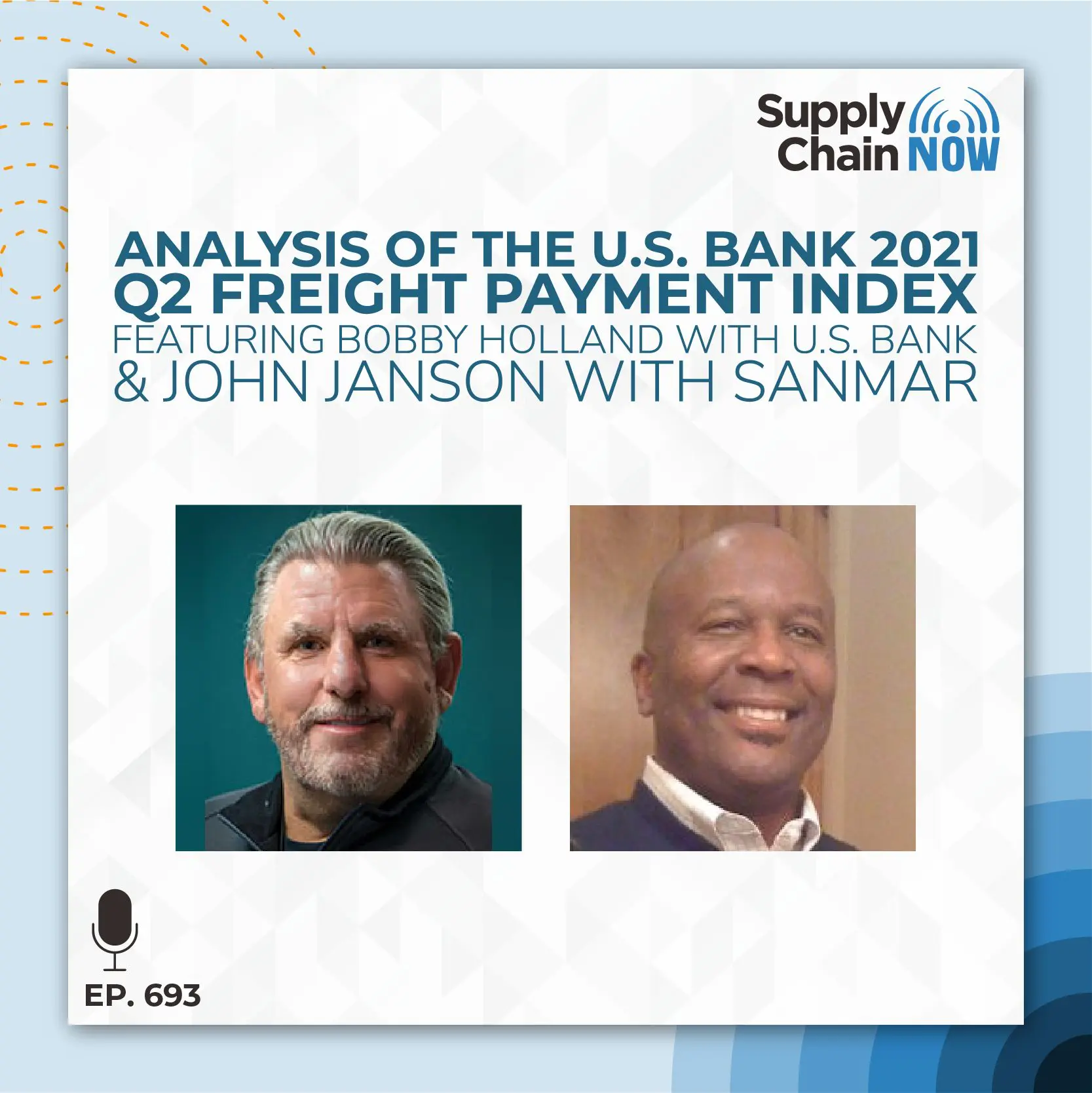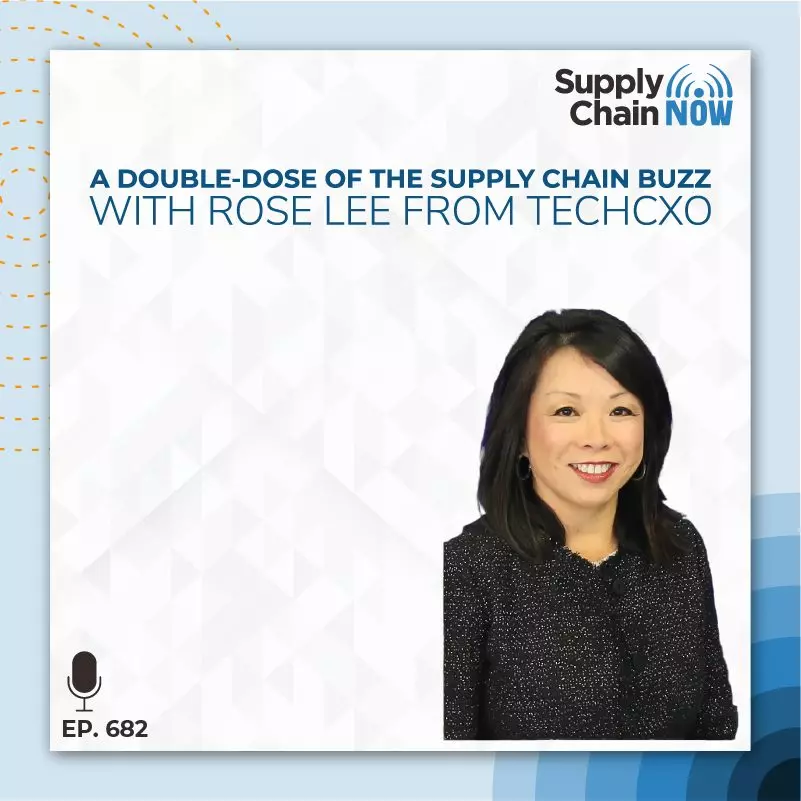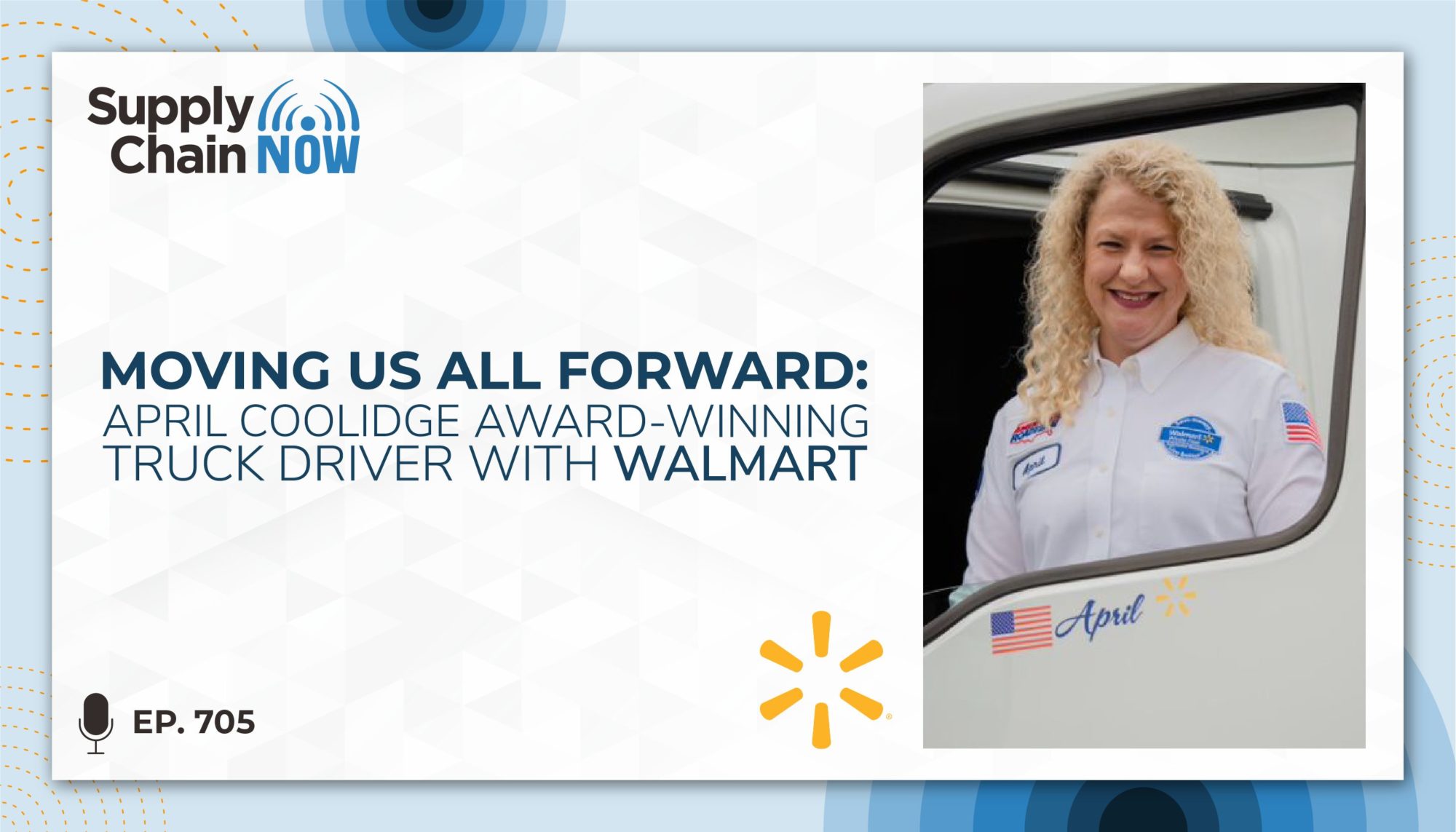
What I want to impress on people is the importance of the trucking industry. Without our industry, life as they know it would not exist. Everything that they put their hands on has been delivered by a truck. They need to realize the importance of this industry and the sacrifice that drivers make so that they can have all the things that make their life comfortable.
- April Coolidge, Professional Truck Driver, Walmart Corporation
Episode Summary
When we think about logistics and supply chain, the first things that come to mind may be tractors and trailers, warehouses, and automation. But what really makes the supply chain possible are people; drivers who spend much of their life on the road away from friends and family so the rest of us get what we need when we go to the store. Beyond being absolutely invaluable to companies and the economy as a whole, these drivers are in demand as shortages plague carriers of all types.
April Coolidge is a Professional Truck Driver with the Walmart Corporation. She recently received a special award – she was recognized by Walmart and PepsiCo as an Everyday Hero. She was also appointed to the American Trucking Associations’ 2019–20 America’s Road Team, being selected as 1 of 18 team members out of 3,600 qualified candidates.
In this conversation, Scott and Greg have the opportunity to talk to April and get a driver’s point of view on a number of supply chain topics:
• The number one thing companies can do to both retain their current drivers and recruit young new drivers to join their team
• What the drivers of passenger vehicles need to remember when they are sharing the road with a tractor trailer
• Some of the ‘courtesy signals’ that drivers of all vehicles can use to communicate and manage safe lane changes on congested highways
Episode Transcript
Intro/Outro (00:00:03):
Welcome to supply chain. Now the voice of global supply chain supply chain now focuses on the best in the business for our worldwide audience, the people, the technologies, the best practices, and today’s critical issues. The challenges and opportunities stay tuned to hear from those making global business happen right here on supply chain. Now,
Scott Luton (00:00:31):
Good afternoon, everybody. Scott Luton and Greg White with you right here on supply chain. Now welcome to today’s live stream, Greg.
Greg White (00:00:39):
I am doing very well. This is going to be fun. This is just going to be fun. We’ve been waiting forever. It seems like to do this and I’m not spilling the beans I’m I don’t want to get in trouble. So I’m going to let you tell everybody
Scott Luton (00:00:51):
Well, so as Greg is speaking to on today’s show, we’re excited to be joined by an award winning professional truck driver. And she’s going to share some more insights or her point of view, her expertise. And I bet she’s going to be sharing a few things, Greg that’s in the blind spot for all of us.
Greg White (00:01:06):
Yeah. And a few things that might not come as such incredible revelations. As we learned just before we went on air that’s right. A lot of those times I knew that was the case
Scott Luton (00:01:17):
Guilty as charged. Yeah. And what Greg is alluding to is we may have just asked our guest, uh, who is a trucking expert driving expert. What state has the worst drivers? So maybe we’ll touch on that as we get into the interview a little bit deeper, but Hey, stay tuned. Welcome in April Coolidge, a professional truck driver with Walmart. Um, Hey, really quick, Greg, we’re going to make a few announcements and then we’re going to say hello to a few folks.
Greg White (00:01:44):
You ready? Let’s do that. All right.
Scott Luton (00:01:47):
Uh, so first off we want to invite you to join us August 18th. We are gonna, uh, put our finger on the pulse of an organization that is cranking out and creating raving fans. So join us as we host [inaudible] Patel with Quip for this webinar free webinar on August 18th, the link to join is in the comments, Greg, this next event, big one coming up in September with the one and only Lora Cecere, we’re gearing up for this. We’re the exclusive virtual provider of the, uh, the digital version of the event. How excited are you for this September
Greg White (00:02:19):
Event? I’m totally stoked. I’ve never actually been invited to attend this before, because I was always on the vendor side. And Laura is so protective to make sure that this is practitioners who can share ideas with one another and get you get so much benefit out of it. And you know, so being a media partner is kind of the way we, I weaseled my way in. So I’m looking, I’m really looking forward to it. You know, you get nothing but truth from Laura and you get nothing but great education from hers.
Scott Luton (00:02:49):
Well said. So join Greg and I were going to be hosting all two and a half days on the digital side. We’ve got Kevin L. Jackson, Kelly Barner and Karin Bursa. Who’ll be joining us for the live coverage. And we only thing missing is you. So make sure you sign up at supply chain insights, global summit.com. Okay. And then finally we are gearing up our latest event in December where much like this conversation day, we’re going to be celebrating globally, all the contributions and achievements and the, and the breakthrough successes of the supply chain and procurement community with our 2021 supply chain and procurement awards, registration, open nominations, open sponsorships open you’ll check that out at supply chain, procurement awards.com. Okay. Greg, lots of stuff, cooking. But as you suggested, I am really excited. We’re really excited. Our team is excited to be featuring our guests here today. April Coolidge, a professional truck driver with Walmart. We’re going to bring her own momentarily, but first we’ve got to say,
Greg White (00:03:49):
We do need to say hello to some folks. Yes.
Scott Luton (00:03:52):
Start with clay and Amanda and Allie and Jayda and the whole gang behind the scenes helping to make production happen here at supply chain. Now, thanks for all that you
Greg White (00:04:01):
Do. Do you think people wonder what all of those people are doing? Maybe we have to share a little bit. Yeah. I mean, so some of them help us directly with the production. This is being viewed on five different social platforms. So they’re monitoring and also interacting with the audience on all of those platforms. They are the voice of the voice of supply chain, right? I mean, so, you know, it’s, it’s a really interactive experience, no matter what platform you’re on. And these are the people that you are connecting with.
Scott Luton (00:04:34):
Well said, I couldn’t have said it better myself and big thanks to the whole team. Yeah. Uh, now Kyle Garcia out there on the west coast. Portland, I believe I was cause last time we said to Seattle, but he’s in the Portland area. No mess that up. Come over Kyle. Great to have
Greg White (00:04:50):
You here on basketball teams. Remember
Scott Luton (00:04:53):
The legendary Gary Smith is back with us from New York city via LinkedIn. Great.
Greg White (00:04:58):
He is on these last few days, literally, literally where the rubber meets the road.
Scott Luton (00:05:06):
Love that Joseph tuned in via LinkedIn. Hey, tell us where you’re tuned in from Joseph. We’d love to, to find that out. Welcome Shelley in Colorado via LinkedIn. Shelley. I hope this finds you well. Great to have you here. Oh, James Malley with PAC curate with this field. LinkedIn. I want to say James is in. I think, I won’t say he’s like in the Boston area, Greg. Okay. I bet you bet. I bet you a diet Coke. Uh, we’ll see James refresh our memory, but as Kyle reminds us, Hey, Portland’s a great city, but Hey, Seattle is a great city as well. And then T squared who holds down the Fort force. They’re on YouTube. Great to see you back. He says, good Friday Eve folks. It’s lunchtime looking to get fed supply chain management nourishment. Great to have you back T squared. Okay. So welcome everybody. No, couldn’t get a few folks looking forward to having you all as part of the ride of today’s conversation.
Greg White (00:06:03):
I like that part of the ride
Scott Luton (00:06:06):
We tried. We try from time to time, Greg. Um, all right. So with no further ado, Greg, we ready to bring on our guest.
Greg White (00:06:13):
Okay. I think we’ve done enough to do so. Yes, let’s do that.
Scott Luton (00:06:18):
Well, hang on a sec. I owe you a diet Coke or regular Coke. He’s in Brooklyn, man. Brooklyn, Boston, you know, I’m kidding.
Greg White (00:06:25):
Okay. Yeah. No. Hey, I may be sending some people up there that you need to keep an eye on James. So we need to talk in the next few weeks.
Scott Luton (00:06:33):
Awesome. Well, Hey James, enjoyed your you and your comments as part of Greg’s last, a tequila, sunrise, take your shot. Shot episode. Always want to say, take your pitch, right?
Greg White (00:06:45):
Yeah. Take your shirt off. Take your shifts.
Scott Luton (00:06:48):
Yeah. Well I feel like I’m always communicating to the Atlanta Braves batters. Take that outside pitch. Take that pitch, but yeah. It’s take your time. Well,
Greg White (00:06:57):
Okay, so they they’ve been taking some pitches, obviously because they did win two in a row after setting major league record for win loss, win loss, win loss, win loss,
Scott Luton (00:07:08):
Right? Yes. Right. Uh, like 19 days back to back a winner one day losing next new major league record. And I’m surprised I have any here left.
Greg White (00:07:19):
So if any of you wonder whether yelling at the television does any good Scott can confirm that it does, it sometimes takes 19 or 20 days, but your team is listening.
Scott Luton (00:07:30):
That’s right. Eat your Wheaties and keep being on those TVs. Um, okay. So we’re really, if you can’t tell, we’re excited about today’s special guest here, uh, on the heels of an interview with CNBC and, and several other outlets. We’ve got our, uh, our guests here with us today on supply chain. Now April Coolidge, a professional truck driver with Walmart, as we’ve mentioned, and one of the exceptional supply chain professionals that’s helped us continue to move forward throughout this, this tough pandemic times. So let’s bring on April Coolidge. Hey, Hey, good afternoon, April coolers. How are you? How are you doing great.
April Coolidge (00:08:05):
Thanks for having me. It’s a pleasure to be here. Yeah.
Scott Luton (00:08:09):
If you can’t tell we’re a little bit excited, we had a wonderful time with you in the team. Pre-show and just tickled to be able to share your story with our global community here and ready to dive right in. So on that note April, before we get to the hard hitting expertise and some of those experiences, let’s get to know you a little bit better. So for starters, get got to tell us, where did you grow up? I
April Coolidge (00:08:32):
Grew up in billings Montana, so I’m a Montana girl. I grew up riding horses, skiing, you know, all the outdoor stuff. So it was, it was a great childhood, a great life in Montana. Oh,
Scott Luton (00:08:42):
Greg, she paints such a wonderful picture there. Um, let’s talk about one, you know, whenever we ask this question, I love to know, um, from a food and a culinary standpoint, what’s, you know, growing up in billings what’s what was one of your go tos, whether it’s a restaurant or just a dish or what was a big part of that?
April Coolidge (00:09:01):
Well, when we would go out on a special occasions, we would go to a restaurant it’s called a cattle company and it was just a great upscale steak house. And, and I guess being from Montana, that is probably my favorite food is meat and potatoes is what we have in Montana. So a good, extremely rare steak is right in my wheel house.
Greg White (00:09:22):
Extremely rare. I liked that.
April Coolidge (00:09:26):
And when I go to a restaurant, when I say extremely where, I mean, put it on the grill, flip it and then put it on my plate. Love
Scott Luton (00:09:33):
That, love that. Hey, let’s say low Ginny Froome is with us from Johannesburg, South Africa leader of say pigs, great to see a genie. You, you, you picked another great show to be on April is going to be a wonderful interview. A med is tuned in hot champions via LinkedIn greatly. Great to hear from you a med, tell us where you’re tuned in from as well as, uh, uh, edge and B um, as B perhaps I apologize, the Jimmy
Greg White (00:09:59):
In the states anyway,
Scott Luton (00:10:00):
Well, Hey, let us know how we get that right. And how we nail that and welcome via LinkedIn, listen to where you’re from. Okay. And by the way, April, I’m not sure who this is, but they’ve been to the cattle company and they echo your endorsement. So I love that. Okay. So let’s, um, kind of switching gears. Uh, so your father, so from what we, we piece about, uh, doing our homework about your career, uh, prior to being a, uh, truck driving professional, you were very successful in real estate. Um, but your father had a big impression and I think helped get you into trucking where, you know, you’ve been moving things, making it happen for about 10 years now, is that right?
April Coolidge (00:10:40):
It is Scott. Yes. My dad has been a role model for me my entire life, but in, you know, when I was in real estate in 2008, when the market crashed, you know, I just couldn’t sell a house to save my life. There was nothing happening whatsoever. So I had to think about what I wanted to do with my future. So I approached my dad and I said, Dan, I want to do what you’re doing. And he said, what’s that? I said, I want to go to truck driving school. I want to drive a big truck. And to be honest with you, Scott, he didn’t take me seriously. He just kind of laughed me off for a while because I just don’t think that he envisioned his baby girl, you know, out here, big world. But, you know, I was just persistent and, you know, I just kept bringing it up to himself, you know, after a while. And he really did see that, that I was serious about it. And he says, well, we’re going to send you to truck driving school. So that’s what I did. I went to truck driving school.
Scott Luton (00:11:35):
I love it. Okay. Before I turn it over to Greg here. Uh, so your father, is he still drive and how long did, did he drive? What, tell some more about him. He
April Coolidge (00:11:43):
Drove, oh gosh. Uh, I don’t know how many years that hero a long time, but he retired with 4.2 million safe miles under his belt. Wow. Some big shoes to feel when I got into trucking. So
Greg White (00:11:58):
Did he have his own company or do you drive for someone else or
April Coolidge (00:12:03):
He drove a sub for people out there. They might remember a company called consolidated. Freightways of course he started off at consolidated Freightways in Montana, and then they closed the hub that he drove out of and billings. So he had to pick some places where he could be transferred. So he picked Charlotte, North Carolina so that, you know, he didn’t have to drive and deal with, you know, the winter. So being such a close family, uh, you know, I sold my house in Montana. I had their one and only grandchild, which they weren’t going to leave that behind. So we just all came together and migrated to Charlotte in 1995.
Scott Luton (00:12:50):
That is, and there’s, I’m sure there’s so many more stories there. Uh, we’ll have to have you back to talk sports Hollywood and, uh, some of those 4.2 million safely driven miles. It’s a great story. So Greg, where are we going?
Greg White (00:13:03):
Yeah, so you’ve been driving since when
April Coolidge (00:13:07):
I went to truck driving school at the end of 2012, I chose a company run out of truck driving. So I researched all the driving companies out there. And I chose to affiliate myself at that time with a company based out of Arkansas is a USA truck, had a wonderful driving career with them. They were just such a wonderful company to drive for, but I knew upon graduating truck driving school that I always wanted to be a Walmart driver. That was just my goal in my driving career is that someday I wanted to wear that white shirt drive that big Walmart truck and be a Walmart driver. So I worked very, very hard to protect my driving career and you know, my standings in, uh, the trucking community, which opened a lot of doors for me. So I got it.
Scott Luton (00:14:00):
I got to tell you, Greg, in April and April may take taking the page out of your book. The only, uh, tractor trailer toy I had as a kid was a Walmart cab over. And it was a big, uh, is a gorgeous, shiny white truck. And that thing, I don’t know if I got quite got 4.2 million miles driven, but it was close. I think the wheels were falling off that thing when we were done growing up. But it’s really, it’s such a small world. You see a ton of Walmart vehicles on the roads. Uh,
Greg White (00:14:28):
But anyway, right, you’re giving away your age by talking about cab overs, Scott, which virtually don’t exist anymore. Right. And they sure don’t produce them anymore, but I remember those the big flat front trucks as a kid. Um, well, so interesting. And that’s pretty, that’s a pretty clear career direction. So you’ve landed at Walmart I’m you said, uh, that was, you said off screen 2018, right?
April Coolidge (00:14:58):
- The end of October, 2018 is when I joined the Walmart transportation team.
Greg White (00:15:04):
So I don’t know that EV I don’t know that everyone, or maybe even anyone knows what the day, a day in the life of a driver or a week is like, can you share that with us, at least your point of view of, you know, what driving is like over the course of a day or a week? Absolutely
April Coolidge (00:15:21):
Great. My week I drive, uh, I get the luxury of being at Walmart to be home two days a week. So I rode five days a week and I’m home two days a week. So I go to work. I am what they call my schedule is a Saturday out, which my work week begins on Saturday and it ends, I get home a Wednesday evening. So on Saturday, I’ll usually get up about four o’clock in the morning to get up and get ready. Cause I have a 40 minute commute from my home to my distribution center, which is located in Pageland South Carolina. So I get up at four o’clock in the morning, uh, take care of my kiddie before I leave. And, you know, just do the last minute things and, you know, get myself together and then, uh, commute to work. So I usually, when I get to work, we at Walmart, we slip seat, which means at the end of my work week, I have to clean all of my personal belongings out of the truck.
April Coolidge (00:16:21):
So on Saturday, I’ll get there and, you know, I’ll, I’ll set up my truck cause that’s my home for the week. So I’ll make my bed and put my coffee maker, you know, all the things that I need for myself during the week, which coffee is very important because you know, getting up, you know, sometimes very early in the day I gotta have coffee, but so in, and then, you know, once I get my truck set up, then, you know, I usually drive the Southeastern portion of the United States. So wherever Walmart sends me or however, my route, uh, leads me, you know, I could be in Tennessee, Florida, Alabama. So, uh, I drive 11 hours a day and I have 14 hours a day that I can complete my 11 hour driving time. So I drive 11 hours a day and I work 70 hours a week. So we’ll think that, you know, I don’t know if people really understand the time and, uh, you know, the amount of hours that we work, but I do work a 70 hour work week and I drive 11 hours a day. So it’s, it’s a, it’s a pretty grueling schedule, but I absolutely love what I do. And I’m just very passionate about driving and, and, uh, you know, just, uh, supporting the community as best as I can.
Greg White (00:17:40):
So are you delivering to the stores or are you transferring between distribution centers or some of each of that? I’m curious.
April Coolidge (00:17:48):
I predominantly to the stores, I work out of a grocery distribution center, so, um, deliver a lot of their groceries, uh, you know, their frozen, fresh meat produce, things like that. So, uh, you know, we deliver to the stores and I also delivered to Sam’s clubs. And then we will bring back, we will go to different suppliers and we will pick up product that we utilize, you know, we’ll, we will pick up, uh, loads and, and product and bring it back to the distribution centers so that we can disperse it out to the stores.
Greg White (00:18:24):
So that’s a pretty common practice among people among chains or distributors with their own, with their own fleet is to back haul from the vendors back to the distribution center.
April Coolidge (00:18:35):
That’s exactly what we call it back haul. So I’ll deliver it to my stores and then I’ll get a back haul to bring that back into, uh, maybe a consolidation point where, you know, they, they divided up and send it out to different distribution centers and, uh, you know, bring in loads directly to the, the, um, Walmart distribution centers themselves.
Greg White (00:18:56):
So just out of curiosity, you might leave, say Nashville with a certain set of product on the truck, go to this consolidation center, wind up with a whole different set of product on the truck and then go back to, um, to Carolina.
April Coolidge (00:19:13):
Right, right. Or wherever they, wherever they need that product located. So yeah. And sometimes I’ll, I’ll have multiple stops. We’re all just pick up partial loads of, of different, uh, supplies that we need and, and, you know, take it to, um, Sam’s club or, you know, a Walmart distribution center. Love it.
Scott Luton (00:19:33):
Hey, really quick, Greg, if I could interject for a second, but we’ve got some questions, Jenny. I agree. We agree with you such a critically important person in supply chain supply chains would not move. They wouldn’t happen without awesome people like April and so many other folks across the world that do what she does. Um, C uh, back to our question, we posed to a Jamba. She is from Nigeria. W welcome. Kayvon is back with us. Good morning, good afternoon. Possibly good night, everyone. And then James, you’re touching home, uh, an issue or a topic we’re going to touch on later in the conversation. So, uh, thanks for asking. And we’re going to get to that here momentarily. And Cheryl says, backhaul must be cost-effective. I think it’s what she meant to say there. So, you know, I think, I think the leading supply chains are able to really optimize, uh, the back and forth, including the back halls, of course, and really maximize every mile they’re getting out of, um, uh, these, these passages. So I’m glad that came up in April you’re you’re probably given some folks, uh, new, uh, parts, new, new, new components of their vocabulary based on what you do day in and day out. And we love that here. All right. Yeah.
Greg White (00:20:43):
And it’s funny because having been in retail and distribution a long time, I’m familiar with this backhaul deadheading, Bob tailing, those last two, being the things you want to avoid at all costs, even April, even when I’m driving down the road on a family trip or whatever, whenever I see a semi down the road with no trailer behind it, I’m just thinking, oh my gosh, that is just wasted money. So just
Scott Luton (00:21:10):
To connect the dots there, cause there might be some folks that may not know that term, but that is Bob tailing. Is that correct? April well,
April Coolidge (00:21:18):
Tailing is when it’s just the tractor with no trailer. That’s what they called bobtail. And then delegating is the truck and trailer, but the trailer is empty. There’s no freight in that trailer. So that’s what they call deadhead.
Greg White (00:21:32):
That’s what companies are trying to avoid big time, right? That is so costly because you still spend the fuel and the driver labor and all of that and all of the regulatory compliance and whatnot, but with absolutely no revenue or no value of goods in the trailers. So yeah, it hurts
Scott Luton (00:21:51):
Really quick. I met someone not too long ago, the CEO of a company that you all know, the, uh, the trailers they use to ship new cars on. Right. And there’s are, there’s a term for that. But, um, after they drop off the cars, this company was like a marketplace for figuring out how, what else they could pick up non vehicles on those same trailers. Very fascinating to eliminate those empty miles. So, um, love it. And by the way, I agree with Jenny. Jenny says, I love that you always find people who are so passionate about what they do. And April’s got that in droves. Clay says, deadhead is what I call my hippie uncle clay
Greg White (00:22:29):
About the same value clay doesn’t matter.
Scott Luton (00:22:34):
All right. So Greg
Greg White (00:22:35):
April, there has to be a ton of other stuff. I think you’ve exposed. And we’ve just talked about a few things that the average consumer or American or individual doesn’t know about trucking. So what else can you share with our audience that is an interesting learning around what you do every day or about truck driving or transportation in general?
April Coolidge (00:22:57):
Well, what I want to impress upon, uh, the community and people out there is for them to realize that, you know, the importance of our industry, of the trucking industry, because without our industry, the trucking industry and truck drivers out there life, as they know it would not exist because they have to realize that everything that they touch in their daily day to day routine has been on a truck from the get up to the time they go to bed. Everything that they put their hands on has been delivered by a truck. So, you know, they just need to realize the importance of this industry and the sacrifice that the drivers make so that they can have all the things that make their life comfortable.
Greg White (00:23:45):
I think that’s a really good point. I think also, and I’ll confess this. They should not get irritated when climbing a hill and a truck swings out into the left-hand lane to pass a slower truck, which I confess I may have thrown a profanity or two out there. Cause I’m thinking I could have blown right by both of you. But I understand. So I, I have a buddy who drove trucks in Korea and he said, you are the biggest thing on the road. If you wait for an opening, you will never get it. So you have to kind of create it, right. So
April Coolidge (00:24:16):
That’s exactly it. Sometimes you just have to take it and you know, something, my loads can weigh, you know, in excess of 45,000. But you know, I can pull about, you know, 46,000 pounds of freight, which makes my truck and trailer 80,000 pounds. So if this vehicle, you know, up just even not being nodded, the steepest incline, you know, it just takes some effort for that trick tractor. And so people will just be patient slow down a little bit, you know, I’ll get out of their way. It’s not that I’m purposely trying to, you know, slow them down. It’s that, you know, I have time constraints that, you know, they’re imposed upon me to deliver this freight. And so I’m just doing the best that I can to provide product for people, you know? So when they go to these stores, you know, they have what they need
Greg White (00:25:06):
And inertia is an important thing. You take your foot off the throttle on something that weighs 80,000 pounds going uphill. You lose momentum really, really quick. Right. Okay. I’ll be much more Zen about it in the future. Thank you April. So, um, well, and you know, we’re talking to the right person about learning about driving because you have been named a Walmart and a PepsiCo everyday hero. Right. So tell us a little bit about that process. As you said, you protected your driving, your driving career very carefully. And what does that recognition mean to the industry? And, and honestly, what does it mean to you?
April Coolidge (00:25:54):
Well, from the very beginning, when I affiliate myself with the USA truck, you know, like I have said previously that my goal was always to be a Walmart driver. So I held myself to the highest caliber, you know, the, I gave myself a ceiling standard for myself and so in doing so it opened the door. When I drove for USA truck, I was the inaugural member of the Arkansas road team out in Arkansas. So, uh, what we did there is, you know, we, we promote the trucking industry and, uh, something that we really focused on was to teach people out there, how to safely navigate the highways when they’re on the road with, with, uh, a semi truck and trailer, especially these young, just getting out of driving school, you know, going to driving school and in high school, you know, the new drivers, you know, just getting out there on the road, you know, just things to think about in the do’s and the don’ts when they’re out there so that they can be safe and get home safely.
April Coolidge (00:26:58):
And I can even get home to my family. But, you know, with that being said, you know, it did open a lot of doors for me. And, uh, three years ago I was nominated for the America’s road team with the American trucking association. So that was a very grueling process to make that team, but out of 3,600 candidates that was initially, uh, proposed to make this team, they chose a panel of 18. So out of that 3,600, I would have my way down to be on the America’s road team, which is just, was another goal that I set for myself. And then at that same time, the opportunity to drive for Walmart presented itself. So that was just a blessing for me because my dad suffered, I lost my mom about four years ago to stomach cancer. So she was my best friend and I talked to her every day.
April Coolidge (00:27:59):
So it was really tough to lose my mom. And then shortly after we lost my mom, my dad was diagnosed with dementia. So being that I was able to be home two days a week, you know, that allowed me to look after him. Cause, cause it was just me looking after the house, looking after my dad. So, uh, the opportunity to drive for Walmart was such a blessing because you know, it was a lot for me to be gone five days a week and then come home and cook and clean and take care of him and get him all set up. So I could go back out on the road. So over the years he wasn’t, he was a lot better back then. But as time went by, he really declined very quickly. And you know, this last couple months I had even decided that I was going to take a leave of absence to stay at home and care for him because his, uh, dementia declined to the point where he couldn’t take care of himself at all. And, and, uh, I’m sad to say that I did lose my dad. He did pass away on June 13th. So, um, I’d like to think that he’s up in heaven with my mom now looking down and the same at a girl,
Greg White (00:29:13):
I can guarantee you, yes, no doubt what
Scott Luton (00:29:17):
A huge legacy he’s left behind. And, and you’re doing big things and, and beyond helping your family, you’re, uh, you’re leading the awareness, um, that needs to take place, uh, that represents your profession and, and by extension global supply chain. And we all know the awareness gaps were closing during the pandemics when one of the silver linings here in the last 18 months. But I’m sorry. I’m very sorry for your father’s. Um, but I think it, in one of the things you mentioned, cause you mentioned sacrifice April. It’s not just our drivers that are sacrificed, so those families, right. And when those five days that you’re out doing what you gotta do, um, it’s, it’s a tremendous sacrifice, which is all the more reason we’ve got to be more empathetic and, and just, I think for so many consumers, they have to just better. We have to better understand, uh, with what you do day in and day out. So I want to share a couple of quick comments here from a lot of reaction to what you shared. Uh, Charles is back with us. Tillo Charles. He says, thank you for keeping the road safe for us. We all would echo that. Uh, Jenny’s talking about goosebumps and yes, Nicky Scott does. I would love for her to be hearing this. She’s a wonderful representative of, um, of global supply chain. She, uh, uh, Nicky Scott of the dude really Mo she had a dude really moment with this April. It was wonderful.
Greg White (00:30:32):
It was your own trucking company in Africa. That’s right.
Scott Luton (00:30:37):
Uh, I think this is co-write cozy. I think he’s back with us, uh, going back to appeal. He’ll no more road rage for Greg really
Greg White (00:30:45):
Rage. It was more like subdued, anger, but none the less inappropriate. So yeah.
Scott Luton (00:30:52):
William Shakespeare of supply chains with its Gregory. Great to have you back on LinkedIn from the Caribbean says hello, supply chain team, everyone else on this great platform, echoing April’s perspective. Hello, Rhonda. Great to have you back. You’re going to be in for a treat here with April and then, uh, let’s see here. Gary says that he echoes something. We talk about a lot here, right? Especially with the, as we lose your father in June and all of this, everything that goes into hitting a mark, like 4.2 million miles, that’s not a transactional thing. It’s a ton of problem solving and accident avoidance and, and being a smart business person. You name it. He says, just think of all the institutional knowledge we’re losing as over the road, truckers, baby boomers, and otherwise leave the workforce. And Jenny says he would be incredibly proud. We all echo that.
Scott Luton (00:31:39):
I mean, gosh, can you only imagine looking back to, as he, as he introduced you and helped you get into the industry, all the things you’ve done, you know, since entering in 2012. So I love this, um, w I could take these comments for next three hours and just hear everyone’s reaction, but April moving right along, I want to move to a, um, little, little different segment here, right? As we all know, and we’ll try and get into more comments here momentarily, but April, as we all know, um, organizations far and wide here in the states and everywhere else, they’re struggling to not just attract, um, drivers, but keep them, retain them, you know, create a fulfilling, um, position and career for them. Uh, so if you had the opportunity and you have it right here, you know, given this platform, if you were speaking to those organizations that were struggling, what are some best practices or some general observations you’d offer in terms of advice?
April Coolidge (00:32:31):
Well, Scott, we are experiencing a huge driver shortage in our industry, and it’s been that way for as long as I’ve been involved in the trucking industry. So what I would encourage and what is also going to be happening is because a lot of our drivers in the workforce now, you know, they’re getting to be at retirement level. So there’s going to be a lot of our drivers that are going to be retiring out of our industry. So something that we’ve really been thinking about and wondering what to do is how we can get some of our young people, you know, our younger people to think about the truck driving industry or the trucking industry in general, and what would encourage trucking companies to do to help retain their workforce is, you know, treat their driver, you know, like a person, not just a truck number or, you know, a driver number, you know, make that, you know, driver feel like they’re valued, that they’re appreciated.
April Coolidge (00:33:29):
And I think, you know, in all of my years, the number one reason that I see drivers leave a company is that they can never get them home on time. So their home time is just very important because we sacrifice a lot to be out here on the road. You know, we’re, we’re away from our families, our friends, you know, our life is subjected to being in that truck out on the highway for, you know, however long of a time that people choose to stay out. When I was at USA truck, I stayed out probably two and a half, three months at a time. So I only came home two or three times a year, but it was times, you know, just getting a driver home and respecting their home time, I think would be just, just basic square one to, you know, let that driver, you know, have their home time in to know that they can count on, you know, setting up time with family and friends and doing things. So I think, you know, respecting and drivers request for home time would be, I think just probably number one in importance for, to a driver. Wow.
Greg White (00:34:36):
That sounds so basic. It’s a little surprising that that’s the number one thing that comes to your mind. I would think that that would be, would be part of it. Um,
April Coolidge (00:34:46):
Yes. I talked to a lot of drivers and, you know, I’ll ask, well, why did you leave your company? And they said, well, because they could never get me home. One time I put in my home time request, you know, well in advance and they just never could meet their commitment to get me home. So, you know, that’s the number one thing that I hear from drivers, you know, when they leave a company is, you know, that they’re their own time that they couldn’t get them home.
Scott Luton (00:35:11):
So lots of comments here, like Jose’s, uh, now I know why April is award winning truck driver. Thank you dude, for doing what you do. Thank you for your professionalism, uh, from Steve Harrell via LinkedIn. Great. And see that, uh, Rhonda echoes all of that. Thank you for bringing your story here today. Respect your priorities and voice for truckers health and wellness is so important. Um, so follow-up question April for you. We talk a lot about kind of the TX, a trucker experience and this era of all these different things. Yeah. Um, and you know, there’s all kinds of what I liked. Some of the awareness that social media has created to help fill in the gaps of the awareness. And, uh, we’ve seen a variety of different stories and whatnot. Is it, you know, when you, when you arrive at a facility here in recent years, has it gotten better in terms of, of, of, uh, how they’re treating truckers? Is it about the same? Has it gotten worse? What, what’s your observations there?
April Coolidge (00:36:06):
I think that it’s getting better. Uh, you know, we’re, they’re, they’re respecting us and they know that they, that we play an important part in, you know, moving their goods and their products, you know, from their facility to, uh, you know, the retailers and things that are needing those, but a challenge that we had, you know, over the past couple of years, you know, with the COVID, you know, it was just really tough at these different facilities. And I’m not talking about Walmart, I’m just talking about shippers and receivers because, you know, you couldn’t go into their warehouses, you couldn’t use their restrooms. So, you know, it was very strict as far as being able to access these different places and, you know, over and above that, you know, just being able to get a meal out on the road was just very tough. So, you know, we just all had to work together to, to, to overcome this pandemic and, you know, and we’re coming out of it, even though that I do see that we’re having spikes in different areas, but, you know, a shipper and certain receivers are starting to, you know, lessen their restrictions and, you know, be more open to us using their facilities that in working with them.
April Coolidge (00:37:18):
I
Scott Luton (00:37:18):
Appreciate you sharing that. I’m going to go back. Uh, so when we started talking back, how earlier, um, that generated a ton of discussion and by the way, Cheryl must be in the transportation industry cause she’s, she is, uh, sharing some great POV out there. She says, congrats trucks are the most flexible mode of transportation accounts for approximately 80%, uh, transportation expenditures by us firms, preferred mode for organizations operating under the, just in Tom systems. Cheryl, thank you for sharing, man. It’s wonderful. I want to go back though. Greg Allie on our team had a great question about these backhauls uh, so kind of moving sometimes we’ll go back in time, April [inaudible] stick with us here. She says, how often are your back halls dedicated or how often do you reach out to brokerages or, or other, uh, resources to arrange your back hauls any commentary there?
April Coolidge (00:38:13):
I personally am not involved in that part because we have management. We have divisions within our company and not only Walmart, but all companies have that, where they set up appointments and they work with these, uh, manufacturers to, you know, move their product. So, um, you know, I’m not involved in the scheduling of that, but you know, I do, I do pick up a lot. I make it happen.
Greg White (00:38:40):
Yeah. And that’s a really good question because that’s really a more strategic decision to whether you just back haul your own vendors or you just back haul what’s whatever’s available out there. Um, in, in Rocky Mount, North Carolina is MBM, uh, distributors, uh, April a company that we worked with a long time, literally a trucking company, well, uh, a food distributor and trucking company that started in the backyard of the founder’s house. Wow. Um, and then, and it still is in the backyard of the founder’s house, except it’s like a three story office building and warehouse and the HOA had a hell of a backyard, let me, um, but you know, that’s, they chose to only back haul their vendors, but with other companies with their own fleets, they, you know, they might go to the brokerage market or they might, you know, they might have a, uh, internal brokerage that handles that for themselves. So it can, there are a lot of ways that it can go. Uh, and it really just depends on how, how far a field your trucks get and how important it is for you to optimize every single mile to the maximum using all 53 feet.
Scott Luton (00:39:54):
Right. Excellent point. I appreciate that background and Allie, great question. I love that. A lot of great questions and comments here. Um, all right. So, uh, before we switch gears and, and kind of figure, you know, find out who else, um, that you want to maybe thank for getting you in this position here, obviously your father and your family played a big role, but April, is there anything else that, um, you think would be really helpful for folks to just know about the trucking profession, the industry or your experiences?
April Coolidge (00:40:24):
Well, like I said earlier, I just, you know, would like to impress and just let people realize that without our industry, you know, they just wouldn’t have the goods, you know, food, clothing, you know, anything that they have in their day-to-day life is dependent upon our industry. So I just would like to impress upon, you know, the importance of the trucking industry as a whole, you know, and the drivers, you know, to get this product to the shelves for the people, because just like, you know, another person commented, you know, trucks are the most flexible mode of transportation because you can’t fly an airplane into a, into a distribution center. You know, we don’t have rail track railroads, you know, that go to this. So, you know, that freight that comes into these different modes, you know, ships, planes, trains is transported by a truck. So just know the importance of, of what we do and the sacrifices that we make, you know, so that people can enjoy their lives and have the things that they need.
Scott Luton (00:41:27):
Well said that that’s the, um, that’s the biggest, uh, point made I think in today’s conversation, you know? So, uh, I appreciate you coming on and, and sharing that message. I gotta ask you, this is going to be a stupid question, but it just dawned on me. It’s about time
Speaker 5 (00:41:44):
As a kid, I loved,
Scott Luton (00:41:46):
You know, getting truck drivers to, to lay on their air horn as we’re driving, as my parents were driving down the road and I was in the back. I’m not sure if I’ve taught that to my kids. I’m probably a bad dad because I hadn’t. Does that still happen? You still see kids that to ask you for some of the air horn.
April Coolidge (00:42:02):
I do. And to be honest with you, that just lights up my day. That just thrills me when, when I have a young kid that in the back and does the little air pump, because, you know, I’ll give him a little fancy, you know, pull out of my more, but that’s just, you know, I really love to see that. And, and, you know, not only, not only do I love to see that when little kids do that, but you know, a lot of times when I’m on the highway, I’ll have, uh, people that will lean over in their truck and they’ll give me the thumbs up, you know, because I’m out here on the road. And I don’t know if, if that’s just because I’m a trucker out here or I’m a woman driving that truck out here on the road. I think it might be a little combination.
Greg White (00:42:39):
Yeah, probably both. I mean, it’s, you’re a rare sight on the roadway. I right. And, um, I think people really appreciate that. You know, they appreciate what you’re doing. That you’re kind of breaking barriers to do it. I have to, I have to amend Scott’s question. How does it make you feel when an adult does it? Because sometimes I do that. So is it not as fun as when a kid does it? Cause I, I still do it. I love it. You know, another thing I learned as a kid was, you know, the light flashing thing when, when you’re passing or when they’re passing. Right. Um, just so our audience knows when you pass a semi, you should always flash your lights before you go out around them. And you should always flash your tail lights, which takes one hand off the wheel, admittedly, but flash your tail lights. And they’ll let you know that you are clear of them in the front. So it’s safe for you to get it back over into their lanes. So do you still see, uh, everyday drivers? I know your fellow drivers do that pretty religiously, but do you still see just regular automobiles do that
April Coolidge (00:43:49):
On occasion? I will. And just yesterday I didn’t have, uh, it was, uh, an SUV, you know, and he gave me the flash, the lights just let me know it was safe to come back over and he asked me and I let him go. And he flashed his brake lights to thank me for, for letting him back over. So I do on occasion, see, uh, passenger cars do that. And I just know that it’s somebody who drives a truck or has a family member in the trucking industry. Otherwise, you know, people really don’t know what that means, but, um, you know, that is how, because you know, our trucks are very long. So you have to have that peripheral vision to know that back there, that 53 foot trailer, you have enough room, you know, to, to navigate back over in, into the lane after you pass a vehicle. So that’s what we, as drivers will do for each other is we’ll flash our lights to let them know that, you know, they’re, they’re clear and it’s safe for them to come back over into the, into the, uh, right lane into the driving lane.
Greg White (00:44:50):
Yeah. And I think that sign that’s on so many trailers. If you can’t see my mirrors, I can’t see you. I hope people are reading that and recognizing that. And even so I think even when you’re beside a truck that you’ve only got that one little convex mirror that helps you see a vehicle that’s pro that’s about seven feet below the level you’re driving at, right. And somewhere behind you. So it’s hard to gauge. I mean, I’ve, I’ve sat in cabs and, and tried to gauge it sitting still. And it’s really hard to gauge exactly where that vehicle is.
April Coolidge (00:45:24):
Yep. And you know, that’s one, that’s probably the thing that excites me the most about being affiliated, you know, first with the Arkansas road team and now with the America’s road team, because we have a program it’s called share the road. And so what we do is we go to these high schools and we take our truck and trailer and we take cars and we’ll put them in our blind spots. And we talk about these different things about being safe. And, you know, that’s what you just said, Greg, about. If you can’t see the driver’s face in that mirror, then we can’t see you. You know, a lot of people think that because we’re so big and we set up so high and we have, you know, our big windows that gives us an opportunity to see so much going around, you know, happening around us.
April Coolidge (00:46:07):
But that is that couldn’t be farther from the truth. Because the thing that I enjoy the most, when I go and do these, share the road, things is we’ll put cars in our blind spots and there’ll be a car right out my driver’s side window that, you know, I could run down, it’d be there. But to have these teachers and young people get up in the canvas truck, because the only mirror that is required by the DLT is the long rectangular mirror that we have. Right. That’s the only mirror that is required by the department of transportation to have on these trucks. Right. So we’ll cover up all of our other mirrors and we’ll ask these people when they get up on our truck, can you see that car? That’s just sitting right there next to us. And they’re just amazed that they can’t see that.
April Coolidge (00:46:53):
So, you know, that is the thing that I really enjoy the most about being involved, you know, with the America’s road team, is that the opportunity that I have to go out and teach the community about different things that they need to know about a tractor trailer and what they can do to be safe out on the highway to navigate around us, because there’s a lot of trucks out there on the highway. So if they know what it takes for us to be safe on the highway, that’s just getting them safer and our highway safer,
Scott Luton (00:47:24):
Hey, uh, Gary is kindred spirits here. He says, we used to get truckers, a honk their horns. When I was growing up in the sixties, I did it once when driving with my dad and it scared the
Speaker 5 (00:47:34):
Crap out, your
Scott Luton (00:47:36):
Driver’s got to know you’re riding with it, what you’re doing. So thanks for sharing Gary. Hey, um, uh, if you could touch on one final thing and then we’ll, we’ll, we’ll start to wrap here. You know, I know that here in the Atlanta area, the powers that be have been for the last couple of years, uh, conducting a study to help alleviate some of the parking issues that that truck drivers have when, when navigating through, uh, the Metro Atlanta area, uh, just how hard it’s been. It is to find a nice, safe, well lit place. Um, and, and when the state and the local authorities are trying to figure out how they can help provide solutions, especially given all the traffic that comes through here, which you may or may not have alluded to, uh, appreciate it, but April more seriously, speak to, you know, parking in general. I mean, how, how challenging is that, uh, when you’re trying to get a little bit of rest, you know, get a bite to eat, you know, speak to that a bit, if you would,
April Coolidge (00:48:26):
It’s very challenging for us drivers out here on the road. And that’s been something that, you know, I’ve thought about from the very beginning of getting involved in, in the trucking industry, because, you know, that’s our home when we’re out here on the road. So we need to find a safe place to park and to be able to go in and get a meal and to take a shower. So we are at a big disadvantage because, you know, we’re at a shortage now with trucks. So just think what it would be like if we did hit the capacity that we need in the industry. Right. Kind of impact that would make on the parking situation. And I think, you know, there’s only so much land out there to acquire, to put these truck stops and in different, uh, places available to us. But, um, you know, that is a huge challenge.
April Coolidge (00:49:17):
And that’s why you’ll see a lot of drivers, you know, when they shut down. And I see it a lot, you know, through the Atlanta area, cause it’s really tough. There’s, there’s not a lot of places to park in the Atlanta area and you know, the truck stops, you know, it might be questionable as far as how safe are those areas, you know, for us, you know, because, you know, they don’t have a lot of security, you know, a lot of kinds of patrols the parking lot. So, um, you know, that’s why you’ll see a lot of drivers, you know, there’ll be parking on the shoulders of the road and the on and off ramps, because so limited on, you know, availability of us to find a place to park. And, you know, drivers are finding that there, they have to shut down earlier in the day to even be able to find a parking space, because if you drive, you know, say, you know, past five o’clock in the afternoon, your chances of finding a parking spot at a truck stop are few or even non-existent in that time. Yeah.
Scott Luton (00:50:16):
I think a couple of years ago, according to research chair put in, I think that the truck drivers, they were surveying, we’re talking hundreds, if not thousands 90 minutes a day on average is, is the time that that took them to find a suitable parking. Um, so, so folks, if you’re, whether you’re overseas or whether you’re here in the states, uh, and maybe your, a local authority isn’t as savvy, um, as the folks in Atlanta trying to, uh, proactively or reactively what most importantly to try and to address these challenges, Hey, uh, another awareness opportunity here. We gotta, we gotta take care of our truck driving professionals and April huge. Thanks for you. What, you know, what you’ve shared here today. So with all that said, uh, you know, beyond your father who played a pivotal role, go ahead. Great.
Greg White (00:50:59):
I have one more question I have to ask. I have to ask this, you drive all over the Southeast, right? You’ve already addressed some of the parking issues. We’ve talked a little bit about your fellow drivers, who you share the roadway with. Who would you identify as the worst community or state or whatever drivers that you face on a day to day basis? Well,
April Coolidge (00:51:23):
Greg, I hate to, uh, pinpoint, you know, a city or an area, but if I had to give you an honest answer, I would have to say of all the places that I’ve traveled and I’ve traveled all over the United States. I know I only traveled in the Southeastern part of the country now, but I’ve traveled the whole United States. And by far hands down, no competition, the worst drivers that I have ever experienced is in Atlanta, Georgia. Thank you.
Speaker 5 (00:51:56):
Thank you so much. I feel so vindicated for you to stay well.
Scott Luton (00:52:06):
They love us. They really love us, but Greg, I would say April’s right. April is
Greg White (00:52:12):
Volume. I mean, if you’re not going 80 miles an hour in Atlanta, you’re going to get run over and, and it, and if you don’t get run over, there are alternative punishments because of where we are. So, I mean, it is, um, I I’ve driven all over the country as well, not as semi, but I mean places like Chicago and New York and Los Angeles, which are the ones even still, I would have expected to come towards the top of your list. But unquestionably Atlanta is, uh, you know, that’s a indictment, damning indictment of, of our driving culture. Well, if I’m a bit of a studier of driving cultures to April, I mean, you know, there are certain things that only happen in certain cities, like, you know, the excessive speeding that happens here in Atlanta at the refusal to signal, to change lanes, which happens in Chicago a lot because people in Chicago will speed up to block you off. If you’re trying to change lanes and you signal, you they’ll do that with cars, not even semis. So,
April Coolidge (00:53:12):
Right. And you know, I think another challenge that Atlanta has is because there’s so many roadways that come into that city and it’s just kind of like a hub or a center location, you know, to get on 85, 20, 75. And so, you know, there’s so much traffic and so many bottlenecks to get around to that city. I’ve easily taken two hours or more just to get 85 coming into Atlanta to 85 coming out of Atlanta. So it’s just unbelievable, the amount of people in the amount of traffic that’s in Atlanta, but something that I see so much in that city and I, and I can’t for the life of me understand how and why they do it because not in a million years would I ever even think about is they’ll stay in the hammer lane and they’ll cruise that fast lane. And then there are exit will come up and they make up traffic all at once just to get over there. And it’s just, oh, I just cringe when I see that, because what a dangerous situation that they’re putting themselves.
Scott Luton (00:54:19):
So we got to love on our truck. Drivers respect them when they’re out on the roads, make sure you’re, you’re, you’re pulling for the air horn, especially if you drive past or drive by, uh, April, um, and be aware, be aware of the sacrifices are making, be aware of, uh, some of the issues and challenges they face. Uh, but also most importantly, perhaps be aware that they are the backbone of global supply chain. So it, if the truckers, um, you know, truck fleets came to a halt, everything else would come to a halt. So April really appreciate and admire what you do. But Hey, um, really quick as we start to wrap up, I want to ask you, you know, who else you would like to thank, and then we’ll make sure folks on the, how to connect with you. Who else beyond the father, your father, would you like to, um, you know, give a shout out to, and thanks for the help to get you where you are.
April Coolidge (00:55:05):
I really owe a lot of my, uh, of who I am and how I’ve become, you know, to this point in my life, to my parents, because my parents always raised me, not as a girl, but that if there’s anything in life that I ever wanted to accomplish, whatever it is, I can just set my goals and I can accomplish that. So it, it was never, you know, stereotypical Europe girl, you gotta go in this direction. They raised me with, uh, the beliefs that whatever that I want to accomplish in my life, I can accomplish that. So I owe a lot just about everything of who I am to my parents for bringing me up that way. But I had a lot of great mentors in my driving career, you know, drivers that, that were with me on the Arkansas road team. And that I met, you know, at my driving companies at USA, you know, people that I looked up to and admired. And so, you know, it’s, it’s those different individuals that made me realize what was possible for me in the driving industry. Not only just getting into Walmart, but I’m a heavy competitor in truck driving championships. My goal someday is to be grand champion of the national truck driving championship. So having a lot, these drivers who have accomplished that just gives me a higher level of the shoot for in, in something that, that, you know, I can strive to accomplish someday. Wow.
Scott Luton (00:56:33):
I love that. Uh, those are called rodeo. It’s currently a proteome. Yeah. All right. Well,
Greg White (00:56:38):
Um, perfect for somebody from Montana, she’s already got an advantage.
Scott Luton (00:56:45):
Well, April, and it’s such a pleasure to connect with you. Um, we, our whole team on behalf of our whole team, we admire what you do. We appreciate what you do. We, we wish I had w we had hours on end. Uh, they get to learn a lot more, uh, there’s so many other issues and challenges that are, um, uh, shaping the not only global supply chain, but certainly the trucking professional. We’ll have to have you back and we’ll dive a little deeper, but big thanks. How can folks connect with you April?
April Coolidge (00:57:09):
They can connect with me. I’m on social media, I’m on Facebook, so they can just type in my name, April coolish. And I do have a Twitter account, and I’m not that first I drive a truck, so I’m not, you know, I’ve stepped away from the tech after getting out of real estate. I’ve really tech stepped away from the technology. And so I don’t know how, how they can go search for me on Twitter, but I am I’m on Twitter and I’m on Facebook. And I do get an email that if somebody sends me a message or a friends request or something on Facebook, it will certainly come to me. Cause you know, I worked so much that, uh, I don’t always have time to, to look at those different things because at the end of my day, when I’m done driving my 11 working my 14 hours, I go to bed. So, but if they do want to connect with me, I do, I am on Facebook, April Coolidge, and I am on Twitter, April Coolidge.
Scott Luton (00:58:05):
Well, you are an absolute delight to interview in robo elbows with there’s a, there’s a passion about what you do and enthusiasm, uh, that is just contagious. So huge. Thanks April Coolidge and award-winning truck driver recently named Walmart and PepsiCo every day hero. Thanks so much. Thank you. Thank you, man. I echo and I’m sure you do too. The whole team, Rhonda and Jenny both were speaking about just, um, you know, what April brings to the table, Tony. I think that’s a wonderful question. We’ll have to bring her back, uh, to find out. He says via Facebook, how do you become a grand champion trucking driver? We’ll have to, as if any
Greg White (00:58:48):
Of us need another YouTube distraction, there are channels that focus on that. And it is truly impressive. What some of these drivers can do tight spaces. I mean, it is. It’s unbelievable. Yeah.
Scott Luton (00:59:03):
Agreed. I want to go back one final comment here. Cause I, I wanna, uh, Rhonda had shared some things about her husband. We were talking about the other day. She says my husband’s considering getting a CDL and driving locally with a logistics company. He likes working solo and a super safety conscious. We’ve been talking about the potential disruptions to our personal lives, but he’s got about seven years before retirement. So it might be a fit for him. Rhonda says, he’s looking at a distribution center in forklift positions right now. And they asked him about his willingness to get his CDL. So, uh, some conversion conversations going on, he’s open to the idea. We’ll see, respect she says is important. Yeah. So excellent point there, Rhonda. And we’ll see if we can’t maybe a bit April could share shed a lot of light on maybe some of the decisions and, um, uh, choices that y’all are considering.
Greg White (00:59:51):
I think if you’re thinking about getting into trucking right now, you probably have a lot of leverage in terms of saying, I want to do this and I don’t want to do that. So, you know, if you need to be home like April two days a week or whatever, I bet there’s an opportunity for you to do that
Scott Luton (01:00:10):
Greed. And one more, uh, I wish I had said this before April departed, but Rhonda says, go get them April. No doubt. You’re going to hit your pro your goals. Thank you for your service and keep America moving. Excellent point. Okay. That unfortunately, uh, Greg is going to bring this conversation to a close is April was all that. And then some of what we thought she might.
Greg White (01:00:35):
Yeah, yeah, no doubt. I mean, I think a couple things that, that stand out there is her recognition of the importance and her advocacy for the importance of what drivers do. And I think another, you know, that strikes home with me and I’m sure my wife is that the way that she was raised to believe that she can do anything. And I think it’s important. It’s important. How for any young parents out there, it’s important, how you phrase that it’s not, you can do anything a man can do it’s you can do anything. You need not qualify and you need not make males or, you know, whatever other categorization, a qualifier for that, you can do anything. And if you just treat it, you just treat someone, uh, as this is what your potential could make you live up to. That’s sufficient. You don’t have to compare them to anyone else. And I think that’s something we have actively done as parents. And it’s built some pretty strong young ladies in our family. Yes. Early in hers.
Scott Luton (01:01:38):
Absolutely. And, uh, that’s a great learn. That’s a great point. A really important point that April brought to the table. Uh, so if you’re listening, Brantley, Gracie and Ben, whatever you want to do, that’s it. So folks, thanks for all the great comments. And I know we couldn’t get to all the comments and questions. What an outstanding conversation, April Coolidge is a dynamo big thanks to Jayda and Amanda and Allie and clay back behind the scenes for helping us with the production. Big, thanks to Matt and Anna also behind the scenes helping to facilitate the interview. Uh, but folks, most importantly, you heard a bunch of good stuff from April here today. I appreciate Greg’s key takeaways. A do good. Give forward. Be the change that’s needed to be just like April Coolidge. And on that note, we’ll see you next time right here at supply chain. Thanks everybody.
Intro/Outro (01:02:29):
Thanks for being a part of our supply chain. Now community check out all of our programming@supplychainnow.com and make sure you subscribe to supply chain. Now anywhere you listen to podcasts and follow us on Facebook, LinkedIn, Twitter, and Instagram. See you next time on supply chain. Now.
Featured Guests
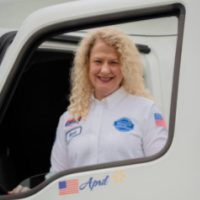
April Coolidge, After a successful career in real estate, April decided to follow in her father’s footsteps and go to trucking school. To date, she has more than one million safe miles, and she’s proud to represent Walmart as a trucker. April also takes pride in being a woman in trucking and sees herself as an example of how women can thrive in the industry. She often visits schools and job fairs to talk to young people about careers in trucking because of how rewarding the industry can be and how essential it is for the U.S economy. In 2021, April was named a Walmart Every Day Hero for being a positive force in her community during challenging times.
